


















Our annual profiles of 25 People to Watch highlight the executives who will have the greatest influence on an industry which, despite gloomy predictions of a possible economic recession, has generated optimism for the coming year with Covid in the rearview mirror and full visitation restored in most jurisdictions.
ByDave Bontempo, Alan Campbell, Roger Gros, Frank Legato, Jess Marquez, Marjorie Preston, Patrick Roberts, and Bill Sokolic
The phenomenon of slot influencers has created a new marketing arm for operators and manufacturers, as players learn new games from the social media stars.

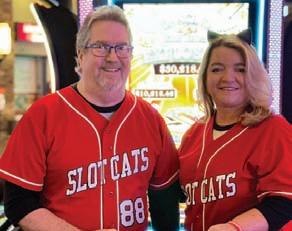 By Frank Legato
By Frank Legato
Artificial intelligence technology is helping casino marketers respond to customer loyalty through alerts based on each player’s historical spending.
By Jess MarquezThere's a push to increase problem gambling research from various sources, as there is no federal funding available in this area.
By Marjorie Preston
Business intelligence software is helping hotel casino properties maximize revenue on the hospitality side.
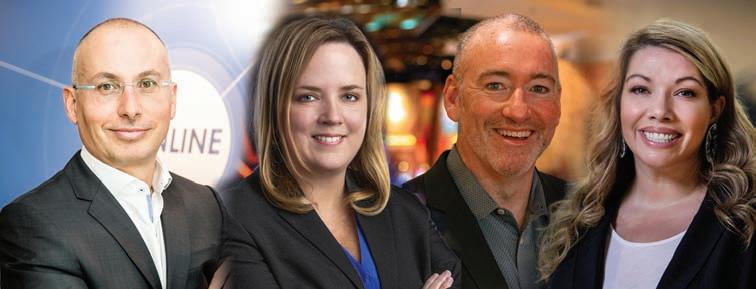
 By Dave Bontempo
By Dave Bontempo
When President Bill Clinton proposed in 1994 to tax the profits from casinos and other gambling establishments 4 percent to pay for his welfare overhaul, the industry responded by forming the American Gaming Association. Just the thought of the federal government being involved in the gaming business was enough to spark that action, even though the proposal barely made it to become a bill.
But that wasn’t the last incursion by the federal government into gaming. Just a couple of years later, Rep. Frank Wolfe of Virginia proposed a full study of all facets of gaming being conducted in the U.S. and the National Gambling Impact Study Commission was formed.
Because the first leader of the AGA was Frank Fahrenkopf, a Reno attorney who has been chief of staff for Senator Paul Laxalt and later was chairman of the Republican Party under President Ronald Reagan, wielding wide influence in Washington because of his respectful diplomatic approach to all issues, the industry was prepared to make its case. Fahrenkopf was able to get three pro-gaming panelists on the commission, while there were also three antigaming critics, along with three semi-neutral members.
After two years of holding hearings in various cities around the country, including Las Vegas and Atlantic City, the NGISC released a report that verified most of the positive impacts of gaming. The first national survey of problem gamblers was completed and revealed that only around 1 percent of people exposed to gambling could be classified as compulsive gamblers.
Fahrenkopf told me numerous times that his one goal with the NGISC was to prevent any federal oversight over gambling, claiming correctly that gambling is a states-rights issue and should be decided at that level. The findings of the NGISC supported that point, and for his 17 years at the helm of the AGA, Fahrenkopf was able to keep the federal government at bay, as have his successors, Geoff Freeman and Bill Miller.
Last month, the AGA came out with an excellent report on illegal gambling, describing its
scope, the various elements, and most importantly its cost to the American people. One of the main findings of the NGISC was that legal regulated gaming was far better than the illegal variety, which usually involved organized crime, political corruption and felonies far more serious than simply placing an illegal bet.
So the AGA and The Innovation Group, which produced this groundbreaking study, should be applauded for their efforts to bring this to light.
I have one concern, however, and that is in the vague field of unintended consequences.
In the study, the AGA urges action by state and federal authorities to crack down on these illegal activities. In the past year, the AGA has penned a letter to the U.S. Attorney General asking him to take action against illegal, offshore sportsbooks.
All of this makes a lot of sense, but what happens if it spins out of control? For example, what if some well-meaning congressman decides maybe we should draw a line between what is legal gambling and what is illegal gambling at the federal level? Now some states have legal gambling activities that are considered illegal in other states.
Yes, that’s unlikely to happen, but there could something small and seemingly inconsequential that would be a foot in the door. And those of us in the gaming industry understand that strategy better than anyone, since that’s the way most gambling expansion has been handled. Lots of states that now host a major gaming industry started off small—sometimes as small as electronic pull-tabs.
So once again I commend the AGA for issuing such an important study with up-to-date information on illegal gambling. Hopefully it will lead to a dismantling of those “skill” games, a blocking of illegal online casinos from offshore, and an awareness of the public about what is legal and what is illegal, something many bettors don’t understand.
But please pay attention to how this is implemented and protect the legal industry from any intrusive intervention at the federal level. Keep the camel’s nose out of the tent.
Roger Gros, Publisher | rgros@ggbmagazine.com twitter: @GlobalGamingBiz

Frank Legato, Editor | flegato@ggbmagazine.com twitter: @FranklySpeakn
Jess Marquez, Managing Editor jmarquez@ggbmagazine.com
Monica Cooley, Art Director mcooley@ggbmagazine.com
Terri Brady, Sales & Marketing Director tbrady@ggbmagazine.com
Becky Kingman-Gros, Chief Operating Officer bkingros@ggbmagazine.com
Lisa Johnson, Communications Advisor lisa@lisajohnsoncommunications.com twitter: @LisaJohnsonPR
Alex Costello | Frank Fantini
Dave Bontempo twitter: @bontempomedia
Alan Campbell | Marie Casias | Jack Goodin
Marjorie Preston | Patrick Roberts
Bill Sokolic twitter: @downbeachfilm
Rino Armeni, President, Armeni Enterprises
• Mark A. Birtha, Senior Vice President & General Manager, Hard Rock International
•
Julie Brinkerhoff-Jacobs, President, Lifescapes International
• Nicholas Casiello Jr., Shareholder, Fox Rothschild
•
Jeffrey Compton, Publisher, CDC E-Reports twitter: @CDCNewswire
•
Dean Macomber, President, Macomber International, Inc.
• Stephen Martino, Vice President & Chief Compliance Officer, MGM Resorts International, twitter: @stephenmartino
• Jim Rafferty, President, Rafferty & Associates
• Thomas Reilly, Vice President Systems Sales, Scientific Games
•
Michael Soll, President, The Innovation Group
• Katherine Spilde, Executive Director, Sycuan Gaming Institute, San Diego State University, twitter: @kspilde
•
Ernie Stevens, Jr., Chairman, National Indian Gaming Association twitter: @NIGA1985
•
Roy Student, President, Applied Management Strategies
• David D. Waddell, Partner Regulatory Management Counselors PC

Casino Connection International LLC. 1000 Nevada Way • Suite 204 • Boulder City, NV 89005
702-248-1565 • 702-248-1567 (fax) www.ggbmagazine.com
The views and opinions expressed by the writers and columnists of GLOBAL GAMING BUSINESS are not necessarily the views of the publisher or editor.
Copyright 2023 Global Gaming Business LLC. Boulder City, NV 89005
GLOBAL GAMING BUSINESS is published monthly by Casino Connection International, LLC. Printed in Nevada, USA.
Postmaster: Send Change of Address forms to: 1000 Nevada Way, Suite 204, Boulder City, NV 89005

What do you get when two of the country’s best gaming-focused ad agencies join forces? A new firm dedicated to bringing true marketing innovation to gaming and resort properties from coast to coast.
Say hello at GoodGiant.com
 Chicago | Mobile | Reno | Tulsa
Chicago | Mobile | Reno | Tulsa
The annual publication of the U.K. Gambling Commission, “Young People and Gambling,” is always a challenge to produce. In the words of the report itself, “Gambling is a tricky subject to research, especially among 11- to 16-year-olds whose understanding of what is and isn’t gambling, and experience of gambling, varies widely,” adding, “We also cover some sensitive topics in the survey, including questions which are used to identify young people who may be experiencing difficulties with their gambling.”
The research was conducted in schools, with pupils completing online self-completion surveys in class. The study collected data from a sample of 2,559 11- to 16-year-olds attending academies and maintained schools in England, Scotland and Wales. The surveys were completed between March and July 2022.
Despite the commission’s reservations, there were quite a few interesting results in the report. The headline was that 31 percent of those surveyed reported gambling on something in the previous 12 months in a variety of different manners (see chart at right).
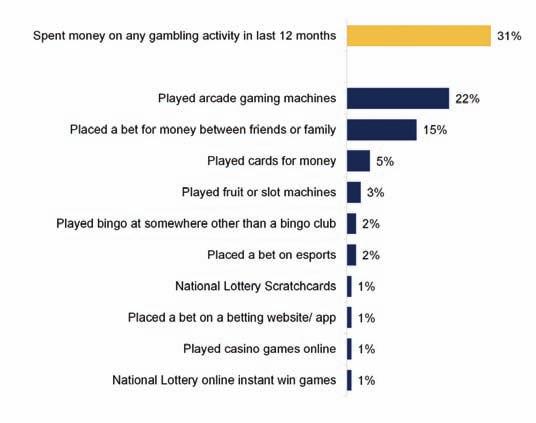
But there was also substantial reports of playing in a legal setting where there was no age restrictions, including:
• playing arcade gaming machines such as penny pusher or claw grab machines (22 percent);
• placing a bet for money between friends or family (15 percent); and, • playing cards with friends or family for money (5 percent).
The recently completed World Cup was held in Qatar, the smallest country ever to host the event. But that didn’t stop thousands of fans from convening at the stadiums built in Qatar just for the World Cup. Fans in some of the most soccercrazed (or football-crazed) countries were disappointed as their countries lost in the first round. Italy, home of some of the most notorious fans, didn’t even qualify, and fans in Germany, Spain, Mexico, and even mighty Brazil went home disappointed. But when considering the rabidness of the fans around the world, it’s surprising how few people are even fans of the sport. Portugal tops the list at 35 percent and the usual suspects of Spain, Germany and the U.K. hover around 30 percent. And Brazil, noted for soccer fanatics, comes in at barely over 20 percent. Not surprisingly, the U.S. has the least soccer fans at 8 percent. And the fans who actually played the sport within the previous 12 months mostly is represented by single digits. The chart at right is courtesy of YouGov and Nicole Piker, the head of global gaming and U.S. sports for the company.

Young People’s Active Involvement In Gambling – Top 10 Gambling Activities Young People Spent Their Own Money On


Mike Bean was named CEO of Desert Diamond Casinos & Entertainment in April 2021. Desert Diamond is the casino arm of the Tohono O’odham Gaming Enterprise, which operates four casinos in Arizona. He has extensive experience in gaming working for Mohegan Sun, Foxwoods and Harrah’s Entertainment, and was most recently the CEO of the Saginaw Chippewa Gaming Enterprises in Michigan. Bean recently was responsible for the opening of the Desert Diamond West Valley Casino in Glendale. He spoke with GGB Publisher Roger Gros at G2E in October. To hear and view a full version of the GGB Podcast, visit GGBMagazine.com.

GGB: You just replaced your temporary casino in the West Valley with the permanent Desert Diamond. What’s special about this facility?
Mike Bean: It’s a nice new product in a great location. Over the past year we’ve spent a lot of time partnering with what’s referred to as the Westgate Entertainment Center. It has State Farm Stadium where the NFL Cardinals play. We recently became the naming partner for the arena nearby, so that is now Desert Diamond Arena. And within the Westgate Entertainment District, there are lots of shopping outlets, bars and restaurants. We are part of that area and it’s really nice to have that full entertainment zone next to our casino.
Give us some background of Desert Diamond Casinos. We have four casinos. We have two in the Tucson market, one in Tucson itself, another one that is about 10 miles to the south, Sahuarita. And then we have the West Valley Casino, which is in Glendale, really basically adjacent to and practically part of Phoenix. And then we have a smaller casino in a town called Ajo, which is in the southwestern part of the state. We also have an opportunity to build a fifth casino as a result of the more recent compact renewals in Arizona. And the nation has acquired land to do that, and that land is pending being taken into trust. And while that’s occurring, we are planning for the ground-up build for that operation.
Tell us what you found when you arrived at Desert Diamond. Was there a lot of work that could be done?
It’s a well-run company and I’m fortunate to be part of it. When I got there we were still getting out of Covid. So the change that the team and I focused on was really doing our best to be responsible, but get ourselves back to what we call normal operations. And this past year was the first year since Covid where we are having a true benchmark for our business, even though planning and budgeting were difficult. So that’s where a lot of the focus has been. Because it’s such a well-run company, my focus will be on some refinement of the operations, but really on the growth. We ultimately hope to grow that Glendale property. It does not have a hotel, so we plan to add a hotel, a spa, convention space, entertainment, and more bars and restaurants. We want to make it more of a regional destination.
Obviously, the Phoenix market is the largest market in the state. I was in the temporary casino soon after it opened and it was packed. Now that the permanent is open you must be really busy. Yes, we are. It’s such a beautiful casino, with tremendous amenities. We have more slots and tables. And that location is great—easy on, easy off. I’m a big believer in having great access, especially in such an incredibly dense population, but it’s not dead center in the middle of it where it’s difficult to get in and out. Things there are going very well.
We know the Phoenix area casinos are very local casinos. Most of your business must be very close by.
That’s very accurate. As a matter of fact, in our database, 90 percent of our business is within a 15-minute drive time. And that’s great. That also says to us that because we’re in the early phase of our life cycle, we see opportunity in getting more market penetration as awareness grows.
Micheál Martin, prime minister of Ireland, upon the publishing of the new Gambling Regulation Bill for his country
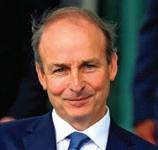
February 7-9: ICE London, ExCeL, London, U.K. Produced by Clarion Gaming. For more information, visit ICELondon.UK.com.
February 28-March 1: Casino & Esports Conference, Alexis Park Hotel, Las Vegas. Produced by Gameacon Events. For more information, visit casinoesportconf.com.
March 7-8: iGaming Next: New York, The Convene-Midtown Manhattan, New York City. Produced by iGaming Next. For more information, visit iGamingNext.com.
March 27-30: Indian Gaming 2023, San Diego Convention Center, San Diego, California. Produced by the Indian Gaming Association. For more information, visit IndianGamingTradeshow.com.
March 29-30: Prague Gaming & Tech Summit ’23, Vienna House Andel’s Prague, Prague, Czech Republic. Produced by Hipther. For more information, visit Hipther.com.
April 19-20: SAGSE LATAM 2023, Buenos Aires Hilton, Buenos Aires, Argentina. Produced by Mongraphie. For more information, visit SAGSELATAM.com.
May 9-11: SBC Summit North America, Meadowlands Exposition Center, East Rutherford, New Jersey. Produced by SBC. For more information, visit SBCEvents.com.
May 24-25: CasinoBeats Summit (CBS), InterContinental in St Julian’s, Malta. Produced by SBC. For more information, visit SBCEvents.com.
May 25-27: Gambling Brasil, Frei Caneca Convention Center, Sao Paulo, Brazil. Produced by Afiliados Brasil. For more information, visit GamblingBrasil.com.
“This long-awaited and much-needed bill takes a responsible approach to balancing the freedom to gamble with the safeguards to protect people from falling prey to addiction. This bill provides a clearer framework for operators and for consumers.”



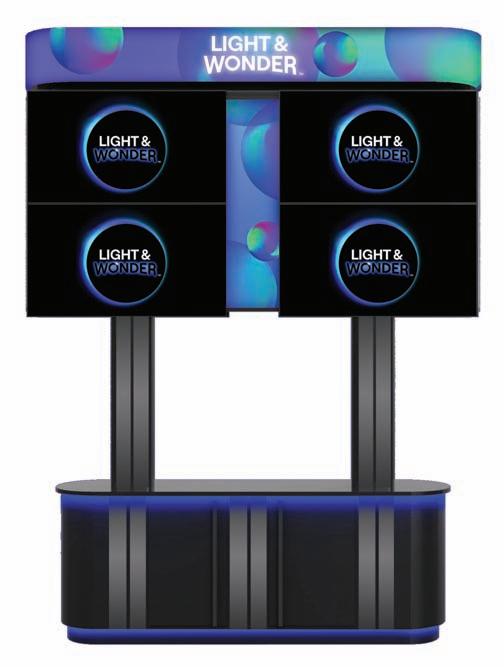

 By Alex Costello
By Alex Costello
From corner bookies to backroom gambling halls, illegal gambling is nothing new in America. The federal ban on sports betting from 1992 to 2018 only grew this black market, as has the proliferation of unlicensed, unregulated gaming machines in recent years.
Now, we know just how pervasive a problem illegal gambling is. New research from the American Gaming Association (AGA) shows that Americans gamble an estimated $511 billion illegally each year. This costs states $13.3 billion in tax revenue annually. It also costs the legal gaming industry $44.2 billion in annual revenue, or nearly half of the $92 billion in combined commercial and tribal revenue in 2021.
block web domains and payments to offshore operators, and launch investigations into capital holdings offshore operators may have within the department’s jurisdiction.

Federal policymakers can also act against offshore operators by eliminating the federal sports betting excise tax—originally enacted to catch mob-run gambling operations for tax evasion—which takes a cut off the top of every bet placed with a legal U.S. sportsbook. The tax drives up betting prices in the legal market, punishing regulated operators and giving an advantage to operators that skirt the law.
Thankfully, there is progress being made in federal efforts to crack down on the illegal market, including by the FBI, which is increasing scrutiny on
If you didn’t know any better—and many consumers don’t—these gambling operations would appear legal. However, when betting with an illegal operator, a customer has no legal recourse if they are not paid, nor will they find any responsible gaming resources if they are at risk of problem gambling. Operators of illegal sportsbooks, online casinos and unregulated machines also don’t pay a dime in taxes.
This is a far cry from the legal gaming industry, which invests millions of dollars in responsible gaming tools and research and in 2021 contributed $11.7 billion in taxes to state and local governments.
Why, then, do we allow illegal gambling operators to continue to thrive when policymakers and law enforcement have the power to crack down on these bad actors?
While offshore operators exist outside of U.S. law, the Department of Justice has the tools to make business more difficult for them. It can make indictments to spotlight these sites as illegal,
offshore operators and working to educate the public on the dangers of betting with these sites.
On a local level, we’re seeing strides made in stateslike Michigan, South Carolina and others to investigate and prosecute operators of illegal gambling machines. States like Virginia are enacting laws to formally ban these “gray market” machines, and the AGA is hopeful more states will follow this example.
But much more can be done on these fronts.
From elected representatives and law enforcement to the legal gaming industry itself, we all have a vested interest in protecting consumers and our communities by eradicating illegal gambling. Together, we can provide Americans with a safer gaming market and recoup billions in critical tax revenue, and the AGA is committed to leading this fight in the coming year and beyond.
Let’s go all in—and make illegal operators fold.
Join the fight against illegal gambling at StopIllegalGambling.com.


Alex Costello is vice president, government relations for the American Gaming Association.



Perhaps no annual investor forecast in recent memory has been as dominated by the overall economic outlook as it is today.
The questions of whether there will be a recession, how long and deep it would be and the depth and length of the inflationary cycle are of continuous debate.
However, consensus seems to be forming that an economic contraction of some degree is coming in 2023. That raises the question of how a recession would affect gaming investments. A deep recession will slam the industry. It is consumer discretionary, after all.
However, if a recession is shallow, or if the economy manages a soft landing, gaming can cope and maybe even thrive, at least relative to the overall market. Even in a severe recession, innovative companies will blossom. There are always winners.
Finally, it should be noted that gaming companies are on much firmer ground than in the last major downturn. Margins are up and debt is down.
Here is our look into 2023:
• Economy. There will be a slowdown or recession. The signs are there. They aren’t yet in gaming revenue or visitor statistics, and certainly not in the bullish commentary of CEOs, but they are there.

Covid relief money has long been paid out and mostly spent. Credit card debt is rising rapidly and at some point must stop.
Anecdotal reports also belie the outward CEO bullishness. Casino executives admit to a softening among lower-tier customers. Some supplier executives quietly say that casino companies are turning cautious on capital spending plans.
• Las Vegas Strip (CZR, WYNN). The conventional view is that regional casinos will outperform Las Vegas in a recession. That might not happen in 2023.
Las Vegas will benefit from powerful positive forces that should offset otherwise soft consumer spending. The major events calendar will be the city’s strongest ever. International travel is rebounding as Covid restrictions have eased. Convention business, recovering in 2021 and 2022, should fully resume in 2023, helping offset any recession-dampened corporate travel budgets.
Given its modest valuation and management’s history of execution, we think Caesars is best positioned to grow its stock price, followed by Wynn Resorts.
• Las Vegas locals and Downtown (GDEN, RRR). As goes the Strip, so goes the locals market, further fed by population growth.
Our favorite based on low valuations, the solidity of its business and the quality of its leadership remains Golden Entertainment. The stock has been trying for impatient investors in the past year, but it remains an extraordinary combination of value and growth.
Speaking of the long term, Red Rock Resorts has a simple and powerful growth strategy and a history of operational excellence.
• Regional markets (CHDN, BYD, MCRI, PENN, FLL) will be more economically sensitive than Las Vegas, but, as in past recessions, will muddle through as gaming has its eternal allure and casinos know how to offer affordable entertainment.
The regional sector is populated by some of the industry’s best companies. Churchill Downs owns its growth story as it incrementally adds capacity every year. Boyd Gaming might be the best-balanced operator. Monarch Casino might be the best run. Penn Entertainment might be the most visionary, leading the way from sports betting to cashless gaming.
But if you are looking for a home run, it is Full House Resorts. From the opening of its temporary casino in Waukegan, Illinois to the debut of Chamonix, Cripple Creek, Colorado’s first resort-quality casino, the company is about to undergo a transformation that will grow its EBITDA several fold.
• Macau (LVS). As many readers know, I recently abandoned my long-time bearishness on Macau as travel, thus gaming, will return to more normal levels as Covid restrictions drop. Also, as hostile to gaming as the Chinese government is, it doesn’t want the Macau economy to collapse.
However, the recent spike in Macau casino stocks suggests investors may be ignoring the political realities of the national government’s policies and diving back in as though the all-clear has been sounded.
Here’s our take: Business will bound back strongly but will never return to peak levels, no less grow fabulously beyond them as was once widely believed.
Macau gamers are a trading opportunity, not a
By Frank Fantinilong-term investment.
Obviously, the U.S.-listed company with the most to gain or lose is Las Vegas Sands, which very much needs to diversify geographically.
• OSB/iGaming (FLTR, DKNG, MGM, ENT, CZR, PENN, SRAD, GENI, CTM, BETCO). The frenetic growth in sports betting and iGaming is ending. There will still be new jurisdictions and companies will still develop markets, but crazy-fast growth is past.
The slowing of revenue growth might actually be welcomed by investors as companies will be forced to focus on profitability.
• Suppliers (IGT, LNW, ALL.AX, AGI.AX, AGS, INSE, EVRI). Gaming technology companies have gotten their houses in order in recent years, whether through divestment such as Light & Wonder or internal reorganization such as IGT. They also have gotten debt under control.
Looking forward, we expect IGT and Light & Wonder to benefit from their new focus, and for Aristocrat to continue its remarkable success.
Investors looking for home runs in 2023 might turn to small fry, such as AGS and Inspired Entertainment. AGS has gotten its house in order and has a super cheap valuation. The stock could rise nicely simply by achieving industry valuations.
Inspired has a growth engine in industry-leading virtual sports that can capitalize on the explosion in sports betting, iGaming and eTables.
Finally, Everi is riding its own waves—an evergrowing games product line and cashless gaming. Cashless is a product that can grow in a recession as casinos see it both aiding revenue generation and cutting costs.
• REITs (GLPI, VICI). If Ben Franklin were alive today, he would add gaming REITs to death and taxes as the certainties of this world.
In a time when the economy might head south, Gaming and Leisure Properties and VICI Properties offer security and substantial dividends. If their tenants paid rents when casinos were shut down by Covid, rest assured they will pay them during a recession.
Indeed, a recession could even benefit them if companies decide to sell their real estate to get through troubled times.
Frank Fantini is principal at Fantini Advisors, investors and consultants with a focus on gaming.


Gold Member Profile AGS playags.com
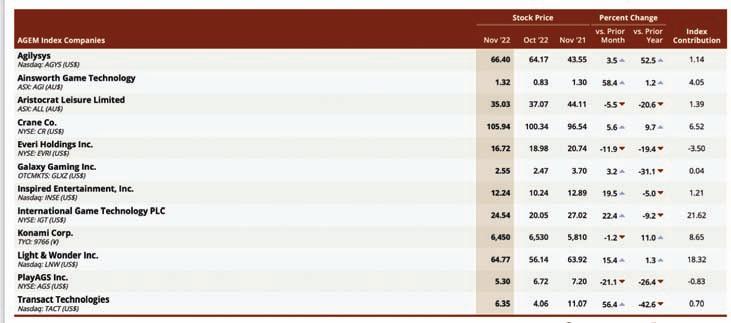
AGS is a leading global all-inclusive gaming supplier. Powered by high-performing Class II and Class III slot products, an expansive table products portfolio, real-money gaming platforms and content, highly rated social casino solutions for operators and players, and best-in-class service, AGS offers an unmatched value proposition for its casino partners.
Bronze Member Profile DR Gaming Technology drgt.com
DR Gaming Technology (DRGT) is the world’s fastest growing independent global supplier of integrated, scalable casino management and jackpot system solutions. Using the latest technology, the advanced systems operate without a server, which significantly simplifies system installation and implementation and provides gaming operators with total control over their entire estate.
Associate Member Profile CentralAMS centralams.com
CentralAMS, formerly CAMS Central Account Management System, is bridging the gap between online and on premise operations. Specializing in compliance software, payments, KYC/AML, biometrics and ID validation, they create customized solutions to meet each gaming jurisdiction’s requirements.
AGEM is an international trade association representing manufacturers of electronic gaming devices, systems, lotteries and components for the gaming industry. The association works to further the interests of gaming equipment manufacturers throughout the world. Through political action, trade show partnerships, information dissemination and good corporate citizenship, the members of AGEM work together to create benefits for every company within the organization. Together, AGEM and its member organizations have assisted regulatory commissions and participated in the legislative process to solve problems and create a positive business environment.

• The December monthly meeting was held on December 13 and had a full agenda with AGEM hosting two in-person presentations/discussions. The first consisted of Nevada Gaming Control Board (GCB) representatives, including Chair Brittnie Watkins, Technology Division Chief Jim Barbee and Technology Division Deputy Chief Jeremy Eberwein with board member Philip Katsaros calling in. Barbee gave an overview of recent activity that affected AGEM members, namely updates to gaming device technical standards which are currently going through internal review processes at the board. The group also reiterated that the GCB wishes to communicate more closely with AGEM and AGEM members in the supplier sector to understand the “next big thing” and innovation being brought into the gaming market. The discussion was lively and engaged, with AGEM and GCB representatives noting a desire to gather in person more frequently to discuss a whole range of topics that will benefit the industry and its ongoing working relationships.
• Also presenting at the December meeting was Executive Director Stephanie Goodman of the Dr. Robert Hunter Problem Gambling Center (PGC). She started off by thanking AGEM for its continued support which helps the center to carry on its much-needed work, noting that AGEM’s support this year helped recruit and retain staff for the center, which struggles to compete with the private sector. She also spoke about some of the more recent initiatives that have allowed outpatient treatment since the pandemic. These programs have been highly effective for patients that attend at least twice a week and once through the program; they have a relapse prevention success rate of 92 percent. Goodman also noted that the center is currently working on a video which can be provided to industry operators and suppliers to show in their venues so important messages about where to find help can reach a wider audience.
• AGEM Executive Director Daron Dorsey along with AGEM Director of Responsible Gaming Connie Jones recently attended and sat on panels at the National Conference of Legislators from Gaming States (NCLGS) Winter Meeting held at Resorts World Las Vegas. AGEM was one of the sponsors of this important event, in which portions of the agenda focused on the ongoing problem of illegal and unregulated gaming within the United States and the derogatory impacts these games continue to inflict on both the public and industry stakeholders. The event also highlighted responsible gaming initiatives and gathered input from multiple, knowledgeable stakeholders across a range of disciplines related to responsible and problem gaming sessions. NCLGS reports its draft resolution on responsible gaming is close to completion, as well, and the event provided a final opportunity to incorporate feedback from those in attendance on a blueprint that can assist legislators across the U.S. to consider and adopt best practices in this important discipline. A final vote on the resolution will come before the NCLGS membership in summer 2023.
• The AGEM McMonigle Cup Golf Tournament took place at Bear’s Best Las Vegas on December 6. The event was a great success attended by 20 two-person AGEM member teams. Congratulations go to the winners of this year’s event, Rick Lopez and Matt Carrier, representing Associate member company eConnect Inc.
The AGEM Index increased by 59.31 points in November 2022 to 905.95, a 7 percent improvement from the prior month. Compared to one year ago, the index was down 54.24 points, or 5.6 percent. During the latest month, eight of the 12 AGEM Index companies reported stock price increases, resulting in 10 positive contributions to the AGEM Index and two negative contributions. The largest positive contribution to the monthly index was sourced to International Game Technology PLC (NYSE: IGT), whose 22.4 percent increase in stock price led to a 21.62-point gain to the index. Meanwhile, Light & Wonder Inc. (Nasdaq: LNW) observed a 15.4 percent increase in stock price and an 18.32-point increase to the index. The largest negative contribution to the index was sourced to Everi Holdings Inc. (NYSE: EVRI), whose 11.9 percent decrease in stock price resulted in a 3.5-point loss for the AGEM Index. All three major U.S. stock indices saw month-over-month increases in November 2022, marking the second consecutive month of across-theboard increases. The Dow Jones Industrial Average increased by 5.7 percent from October, while the S&P 500 grew by 5.4 percent. Meanwhile, the NASDAQ rose 4.4 percent over the month.








Something remarkable happened last July at the Plaza Hotel and Casino in Downtown Las Vegas. It was a confluence of three forces in today’s slot machine market—an operator, a slot manufacturer, and the newest phenomenon in the slot market: the “slot influencer.”
The occasion was the launch by slot-maker Gaming Arts of its new game “Brian Christopher’s Pop’N Pays More,” hosted by YouTuber Brian Christopher, one of the earliest and most successful practitioners of a new art in the slot world, that of the slot influencer. This growing group of slot players has achieved success—often big-money success—by live-streaming videos of themselves playing slot machines to YouTube, Facebook and other socialmedia outlets, and to their own websites.
The influencers have become internet stars. Hundreds of thousands of followers tune in for millions of views every week of videos made by these new celebrities, who enthusiastically narrate their own slot play, cheering on wins, making catchphrase comments on near-misses, and guiding viewers through the game. Followers flock to special events to see them play in person on cruises, casino floor tournaments and more.
The practice has exploded. Manufacturers are now using influencers as an integral marketing channel. It’s free advertising on social media that not only describes a game but shows it being played for money. Players can see how a game works, how the bonuses play out, how winning big is possible, and how players react to those wins.
Slot operators, as hesitant as they were at first to allow anyone to record a video on the casino floor, now see the marketing value as well. In fact, Christopher’s event launching the Gaming Arts slot took place at the Plaza’s new “Brian Christopher Slots” area, a special section of the slot floor stocked with dozens of Christopher’s hand-picked favorite games.
Lisa Melmed, marketing manager at the Plaza, says influencers like Christopher bring loyal players to the slot floor.
“I think it brings in a wider audience, because when you follow an influencer, you consider them your friend and you trust their opinion,” Melmed says. “So, it’s much more persuasive to see someone playing a slot machine and saying how much fun they’re having.”
BY FRANK LEGATO“Influencing is another type of media form,” comments Erica Kosemund, senior director, gaming brand & partnerships for the Choctaw Nation of Oklahoma. “We view it as a time that people can connect with an audience that we may not have access to. We are one of the largest casinos in the country, but we’re located in southeastern Oklahoma. One the main benefits we get (from influencers) is not only the casino floor experience—we have an incredible casino floor of over a 7,400 games in our flagship property—but the experience and the amenities of a luxury resort that people may not have been aware of, closer to where they are.”
“Social influencers have been a way for our casinos to connect with and engage new customers for several years now,” says Jennifer Weissman, senior vice president and chief marketing officer for Penn Entertainment. “Our customers are highly engaged with social media and often with influencers. Connecting our guests with influencers they are engaged with has been a great way to create a unique and memorable experience. Several gaming influencers have quite a following, and we often see new customers visit our casinos for the first time to meet the influencer in person.”
Many of the top slot influencers will tell you they never expected to do this for a living. Most, like Christopher, began taking cellphone videos of games they were playing mainly for their own use.
“I didn’t have any plans of becoming an influencer or making this a job,” says Christopher. “I literally just recorded some videos of my play and posted them for fun to YouTube without any expectation of uploading another video ever again. And only because those videos were so successful did I decide to post a few more, and they just kept doing well, so I stuck with it.”
That was in 2016. By this year, videos on Christopher’s BC Slots website and YouTube channel surpassed 302 million views and 528,000 followers, adding 5 million views each week.



As his fan base grew, Christopher became known to bring crowds to casinos, adding live viewers to the thousands online. The introduction of the


Operators and manufacturers alike discover the value of working with the new breed of slot influencers
Brian Christopher Slots area at the Plaza was followed quickly by Gaming Arts’ partnership with him to create his signature slot game, which features an avatar of Christopher hosting the game, and reacting to game events as he would if he were live-streaming.
“We started working with Brian in 2019, and we built a partnership with him,” says the Plaza’s Melmed. “He’s really great to work with, and his slot machine space is really popular. It’s always busy.”
According to Melmed, Plaza CEO Jonathan Jossel had Christopher as a guest on the casino’s “Corner of Main Street” podcast, and asked him, “What is your dream?” Christopher said it was to have his own slot section and his own machine. Both were launched at the Plaza. This year, it was expanded, and at Christopher’s request, was made a smoke-free area.
Christopher says the new BC Slots policy is to only stream from smoke-free casinos.
“We work with tons of casinos,” Christopher says. “Every week, we’re in a different one.” That includes casinos in California, Las Vegas, Oklahoma, Minnesota and other markets. He stages tournaments, takes fans on Carnival cruise events, and stages a variety of other special events—all surrounding his livestreaming a variety of slot games.
As his following has grown, Christopher has cashed in on his unplanned popularity, to the point where he has expanded the range of games he streams to include high-end slot sessions involving tens of thousands of dollars, as well as a good selection of streams involving more common bankrolls in the hundreds.
“I try and show a good marriage between the two—I want to show smaller bets and larger ones,” Christopher says. “They each hit a different audience. People want to relate to the players, so lower bets are better for that. And it also attracts a newer audience and a larger audience when you do those bigger bets.
“My biggest worry for slot channels—because there are hundreds, if not thousands right now—is that they are trying to break into this, and I 100 percent welcome them all, but they’re jumping into it expecting to make a fortune, and they will figure out very quickly that there’s not enough money in it to cover all your losses, and your expenses. That’s why these partnerships are needed—they help keep us afloat.”
For sure, the numbers of slot influencers are swelling. Melmed at the Plaza says she works with between 20 and 30 influencers at any one time. Kosemund at Choctaw places the number of influencers she works with at “well over 75,” including not only slot influencers, but influencers with blogs on lifestyle, food & beverage and other non-gaming amenities.
“We’ve definitely made a concentrated effort to build that up over time,” she says. “As the influencing marketing channels change and evolve, we’re continuing to grow and learn with them.”
Weissman at Penn also works with influencers in both gaming and nongaming areas. “Gaming and lifestyle influencers regularly visit our casinos, dine in our restaurants, stay in our hotels and experience the entertainment we offer,” she says. “We work with a number of lifestyle and gaming influencers. Some have national following, others have more local followers.”
On the slot floor, the number of influencers is still on the rise, not only with the few that travel around the country, but with influencers in each of the casino markets finding a niche in their local casinos.
One of those more localized influencers is Jackpot Beauties, created by a husband-and-wife team in the Tampa, Florida area. Influencer Ariana (she asked her last name be withheld for privacy reasons) says her husband discovered slot channels like BC Slots, and after the couple investigated the phenomenon, they were fascinated.
“I came to find out that, oh, wow, there is an entire community of people that watch other people play slots,” she says. The couple decided to launch their own channel. Despite early opposition, Jackpot Beauties gained a foothold in the Florida Seminole Hard Rock casinos.

“My home casino is (Hard Rock) Tampa,” Ariana says. “We wanted to get authorization to film because we would be frequenting that casino the most. At the time, they were only allowing a few people to do it.”
Early on, the business at Jackpot Beauties was interrupted by the Covid pandemic, but by the time the casinos reopened, officials at Hard Rock and other casinos were much more receptive to social media marketing using influencers. “They did a lot of research on their end,” Ariana says. “They would
take a look at what kind of videos we were posting, and the context of the videos. We obviously met their standards, and were able to have the authorization to film.”
Jackpot Beauties went on to become a full-time job for the Tampa couple, who branched out to the Hollywood, Florida Seminole Hard Rock property, and then expanded to Foxwoods in Connecticut, and west to Nevada. The channel just hit 27,000 followers on YouTube and 17,000 on Facebook, with TikTok numbers climbing fast.
In Las Vegas, Jackpot Beauties records video at the Cosmopolitan and Venetian on the Strip, as well as the Plaza Downtown. Ariana says the channel has done events at Hard Rock to launch new games from various manufacturers. “We were able to create some relationships and have a contact person with the manufacturers, when they have new games that are coming out. We’re able to feature those games firsthand on the channel.”
Another up-and-coming slot influencer operation is The Slot Cats, started by husband-and-wife team Fred and Heidi Clemons.
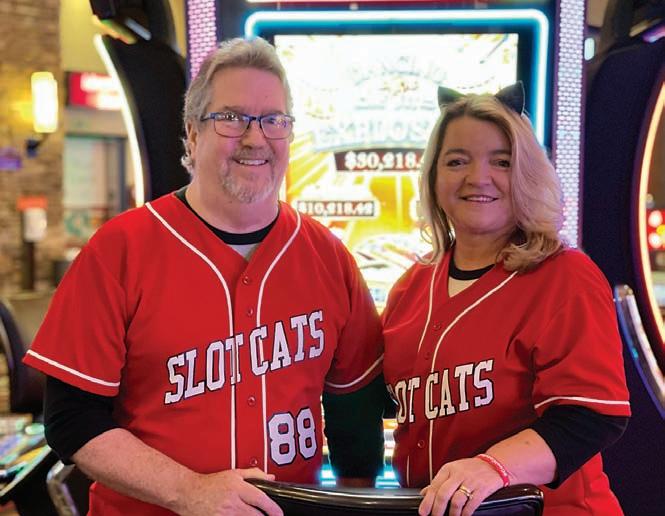
“We just started this as a hobby, and didn’t really think that being an influencer was a thing,” says Heidi Clemons, an accountant who, like so many others, became aware of the influencer phenomenon as it grew.
The couple began looking at slot videos on YouTube around four years ago, according to Clemons. “We thought, oh, why don’t we just do that?” she recalls. “We started it as a hobby, but it’s turned into something full-time, for sure.”
Clemons says Slot Cats has around 18,000 subscribers. “We’re not like the big high-limit-type slot channels,” she says. “We pretty much bet like what an average person would do. A lot of people can really relate to that, and like watching it. We have a very loyal following that supports our channel.”
The Slot Cats are one of the few influencers that post regular videos of live bingo. “We live-stream every week from Resorts World,” Clemons says. “One of the things we did during Covid when the casinos were closed was to host virtual bingo every Saturday night. I emailed bingo cards to members of our Cat Club, and we would Zoom bingo.” That has continued with regular videos from Resorts World, the Plaza and other casinos.
The Slot Cats began in Southern California, but the couple has since moved to Las Vegas, where they have built partnerships with several slot manufacturers to stream as they launch new games. “We’ve done a lot of world premieres for Light & Wonder,” Clemons says. “We’ve done live streams with AGS, Everi, Incredible Technologies and others.”

Slot manufacturers, in fact, have incorporated influencers as an important marketing channel for new games. Mike Trask, vice president of product marketing and communications at Ainsworth Game Technologies, comments that
his company provides several influencers free passes to Global Gaming Expo, and has even brought them to the Ainsworth showroom, as well as utilizing them for events to launch new games.
“They’ve found a very cool niche,” Trask says. “A lot of them have very devoted audiences. It’s definitely become part of the industry. Today, when we put a game out—even without contacting influencers—it’s usually a matter of days before videos of the game show up online. Our game developers are watching YouTube videos all day of games. They set up an alert and they look for their game, to immediately see what people think in real time.”
Randi Topham, vice president of global marketing and communications for Light & Wonder, says her company also uses influencers frequently to launch new games.
“In 2019, I was fortunate enough to have a member of my team who really took ownership of this,” Topham says. “She was great at curating content on Facebook and Instagram for the influencers, and she built up a relationship with them. And so through her work, I really was able to see the benefit of what this group of people can do for you from a marketing perspective.
“You get a lot of eyeballs on your game in a short amount of time. Our game designers love this community. They follow influencers themselves. Certainly, they love to see the reaction to their own games, but I think also from competitor games as well.”
Trask, Topham and other slot manufacturing officials now see influencers as an essential part of their marketing. Operators regularly utilize them for game launches, tournaments and other special events.
“I think the influencer phenomenon is in a growth phase,” says Choctaw’s Kosemund. “I think you are seeing some evolution. You’re seeing people staging meet-and-greets and slot tournaments. They are making their own slot machines. People who are serious about it are doing a lot to evolve to a total marketing program.”
“Influencers will continue to play an important role in marketing efforts,” says Penn’s Weissman. “Influencers are able to create a unique two-way dialogue with customers. This allows a casino to learn about the needs and desires of customers in a way that other forms of advertising don’t.”
“It’s been a very successful and great addition to our marketing strategy,” says Melmed at the Plaza. “I think it’s here to stay.”
“We pretty much bet like what an average person would do. A lot people can really relate to that, and like watching it. We have a very loyal following that supports our channel.”
—Heidi Clemons, The Slot CatsThe Slot Cats, husband-and-wife team Fred and Heidi Clemons, are one of the few influencers that post regular videos of live bingo
Amp up your gameplay in this spinoff of the player-favorite Big and Bad™. This new brand extension, Big and Bad Bolt™, entertains with a three-level progressive, scatter pays, free games, and the Bolt Bonus Feature. The more lightning bolts in the sky, the bigger the rewards. It’s electrifying! Contact your Eclipse Representative today!



For GGB’s 21st annual People to Watch issue, we’ve continued our practice of mixing the high-profile leaders in the industry with those down in the trenches doing the things that make those leaders look good. And these high-profile leaders will tell you that they can’t do anything without the people who put in the time and effort using their imagination and their experience to put together a solid program.
The leaders, especially those who rose up through the ranks, truly believe that without their support staff, things would fall apart quickly. They also realize that those with that imagination and drive will become the future of this industry sooner than they realize.
In this year’s list we’ve got a good selection from all disci-





plines in gaming, because GGB’s Editorial Advisory Board recognizes that a healthy industry needs to have extraordinary people at every level. Whether it’s regulators, tribal leaders, suppliers—both online and landbased—folks who run the operations, responsible gaming advocates or others, all elements of the industry have to work hand in hand, and by honoring people from all these fields, we can encourage that to continue.
Most encouraging in this year’s list is the diversity of the honorees. Women and minorities are truly breaking through in gaming, and their contributions are not only being recognized, but they have become leaders in their fields.
So congratulations to all the honorees in GGB’s 25 People to Watch. You have achieved so much so far, and we’re anxious to “watch” you achieve much more in 2023 and the years to come!

Shimon Akad• Chief Operating Officer, Playtech
Rachel Barber • Senior Vice President and Chief Technology Officer,IGT
Anne Marie Caulfield • Chief Executive, The Gambling Regulatory Authority of Ireland
Dawn Clayton • General Manager, Thunder Valley
Louise Cornelius • General Manager, Oneida Casino Wisconsin
Allie Evangelista • President, Hard Rock Bristol
Ken Golar • Vice President, Finance, Grand Casino Mille Lacs & Hinckley
Stephanie Goodman • Executive Director, Dr. Robert Hunter International Problem Gambling Center
Ronald Gordon • Vice President, Casino Operations, The Cosmopolitan of Las Vegas
Brian Green • Assistant General Manager, Graton Casino
Adam Greenblatt • Chief Executive Officer, BetMGM
Earle Hall • Chief Executive Officer, Axes.AI
Adriano Ho • Director, Macau Gaming Inspection and Coordination Bureau (DICJ)
David Horn• Vice President and General Manager, Durango Casino and Resort
Amy Howe • Chief Executive Officer, FanDuel Sportsbook
Siobhan Lane • Chief Executive Officer, Gaming, Light & Wonder
Kevin Lowry • Assistant General Manager, Mohegan Sun
Joe Lupo • President, The Mirage/Hard Rock Las Vegas
Justin Moore • General Manager, Rivers Casino Philadelphia
Kelly Myers • Manager of Client Solutions, Gaming Laboratories International

Kevin Nephew • President & Chief Executive Officer, Seneca Gaming Corporation
Luiz Inácio Lula da Silva • President, Brazil
Randy Taylor • President and Chief Executive Officer, Everi Holdings
Erwin van Lambaar • Chief Executive Officer, Casinos Austria AG
Stacey Zeleznik • Senior Vice President and Chief People & Culture Officer, Aristocrat Gaming
’s
Shimon Akad has been a top executive at Playtech, the world’s leading provider of online gaming content, for 11 years, including a one-year stint as CEO before he settled into his current position as chief operating officer in 2015.
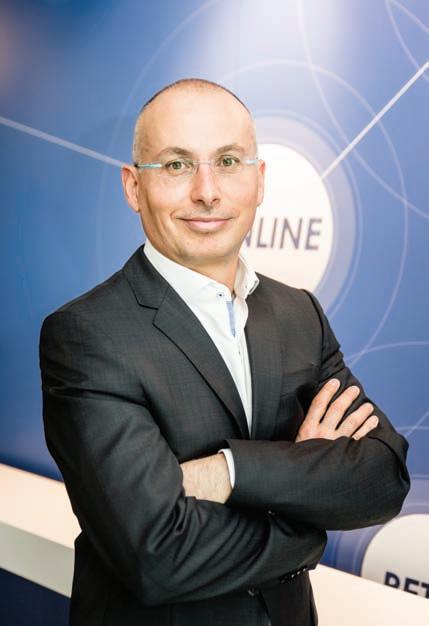
Akad has overseen what arguably has been the most critical period in the company’s 23year history, as Playtech has moved into North America, and specifically the U.S., where the nascent online gaming industry has given Playtech its fastest-growing new market.
“There are a lot of very good markets out there, but the U.S. as a whole is becoming, and will become, one of the biggest markets—if not the biggest market,” Akad says, noting that the three states in which Playtech iGaming content is live—New Jersey, Pennsylvania and Michigan—each generate gaming revenue of about $1.5 billion annually. “Put together, it’s a very big number if you compare it to some of the other markets,” he says.
Playtech has more than 100 local employees in the U.S., headquartered in New York. Moreover, the company has taken the first step in establishing a long-term presence in the market by launching its first live-gaming studio in Michigan.
“Our live studio in Michigan is fantastic,” Akad says. “It’s absolutely amazing. We’ve launched something that we invite anyone and everyone to go look at; I guarantee you that you will be impressed.”
In fact, Playtech plans to open a studio for each new U.S. market in which it goes live.
“We’re implementing the same concept studio in New Jersey, and our plan is to do exactly the same in Pennsylvania for 2023,” says Akad. “We’ve put a lot of investment into our live product. Live product as a whole is a leading product in our industry, and is doing amazingly well.”
He adds that the localized studios, staffed by local dealers, engineers and other talent, will combine with the professionals at the New York headquarters to create new products adapted specifically to each market.
“You need to adapt to each and every market,” he says. “The local players and local markets each have been given their own kind of taste and flavor by the local players, and we definitely adapt the products to it. This is the reason we recruit local people to run the local business, to make sure that the product and technology and service—anything we do there—is adapted to the U.S.”
Meanwhile, Playtech continues to increase its U.S. footprint, and establish
its brand in the U.S., where the company is not the household name it is in Europe.

“Sometimes these things take time, but they evolve eventually,” Akad says. “You persist in investment, you persist in how you run the business. You make sure you deliver the best-quality products, the best-quality service. You listen to the needs of your operators, and you work with them. Then, you gradually see the brand and everything around it evolving.”
He says a priority for 2023 will be to continue investing in local talent in the U.S. “We will continue to invest in bringing more and more local talent, more distribution and more business. We will introduce a whole portfolio of products to the U.S.”
Of course, Akad says there are still uncertainties in how the business will play out in 2023, due to increasing inflation and talk of an impending recession. “But the online gaming industry—and the overall industry we are in—will continue to evolve and get better. Overall, we are in the right project in the right place.”
Among the company’s strongest benefits going forward, according to Akad, is a move away from what he calls “the old rigid business rules” under which Playtech operated when he took over as COO in 2015.
“We’ve changed to much more flexible and smart business rules that will eventually allow us to do business with almost anyone in the market—not only the big operators we served before 2015,” he says. “That kind of a partner-oriented approach has put us in a place where we can work with the largest or with the smallest.”
He adds that as sports betting continues to spread, it will be a catalyst for further expansion in the online gaming industry in the U.S. And Playtech is following that progress closely.
“As long as the regulatory landscape will stay as it is now, we will definitely invest in and launch a studio in each and every one of the states,” says Akad. “I have no doubt that going a couple of years forward, our standard and our brand in the U.S. will be similar to where we are in Europe and the rest of the world—which is at the top, with the best deliveries in the market.”
—Frank Legato
“You persist in investment, you persist in how you run the business. You make sure you deliver the best-quality products, the best-quality service. You listen to the needs of your operators, and you work with them. Then, you gradually see the brand and everything around it evolving.”
With nationwide dominance across most U.S. sports betting markets, what’s next for FanDuel?
Profitability, for one thing.

In 2023, CEO Amy Howe has resolved first to strengthen FanDuel’s lead as America’s top sportsbook, then to reach “a critical turning point, as we expect to be profitable for the full year.”
FanDuel posted its first quarterly profit in the second quarter of 2022, despite the ongoing customer acquisition and advertising costs and introductory bonuses that have kept most sportsbooks in the red. Full-year profitability for 2023 would put FanDuel well ahead of its nearest rival, DraftKings, and a field of also-rans that includes Caesars, BetMGM and Penn Entertainment. Longer term, at maturity, FanDuel expects to multiply its 2022 revenue five-fold.
So, what makes FanDuel the sportsbook of choice for most U.S. players? Howe cites “three key advantages.”
“First, we acquire customers more efficiently than our competitors, with one of the most iconic and trusted brands in the space, combined with our database of 14 million-plus sports fans and some of the most coveted marketing assets in all of sports and entertainment.”
Second, she says, once they try the platform, FanDuel customers stick around for “the most distinctive, broadest betting assortment through the No. 1-rated app.”
Third, “We responsibly grow customer value through our proprietary risk and trading tools, which enable FanDuel to deliver more accurate, competitive odds and a superior margin advantage. All this is underpinned by a distinctive set of assets from our parent company, Flutter Entertainment, the largest online gaming company in the world.”

Howe, formerly global chief operating officer for Ticketmaster, came to FanDuel in October 2021. As one of few female CEOs in the sector, with an enviable position at the top of the heap, she’s made it her mission to attract an undervalued audience: women sports fans and gamblers.

“I see this as an untapped opportunity,” she says. “While the reality is that sports betting has historically appealed overwhelmingly to men between the ages of 21 and 54, sports fandom is closer to 60/40 male/female.
“But we want to do this in an authentic way that works for women—so how are we doing it? It starts by promoting equity with female athletes.”
To that end, FanDuel has become an official partner of organizations like the WNBA and the Women’s Tennis Association, and joined with athletes like boxer Amanda Serrano to promote responsible gambling.
“We’re also creating a more level playing field by offering betting products for women’s sports, such as the NCAA Women’s Basketball Tournament, where we were one of the first operators to offer betting markets, and last year accepted over 1 million bets.”
FanDuel is also reaching women “through unique channels that resonate with the female sports fan” like the Gist, a women-run sports media firm, and the Gaming Society, a sports betting, education and gamification outlet that bills itself as “a movement for more of everything women’s sports.”
Howe values “the privilege of using my platform to build a truly diverse, engaged organization with the best talent in the world. This is by far one of the most gratifying parts of my job.”
Meanwhile, 30 U.S. states and D.C. now offer retail or online sports betting, and more states are starting their engines. While the post-PASPA boom may be slowing, Howe sees plenty of room for growth in both sports betting and iGaming. Together, she believes, they could achieve $40 billion in annual revenues by the end of the decade—an ambitious goal, but one that’s doable if states like California come on board.
“While it’s difficult to predict with certainty how big the market will be, since 2018 it’s consistently exceeded expectations. Looking out to 2030, we believe the total addressable market could reach $40 billion, inclusive of both sportsbook and iGaming.
“Specifically, we anticipate that the sportsbook market could grow from roughly 35 percent of the U.S. population today to closer to 80 percent at maturity. And while it’s difficult to predict exactly which states will legalize and when, ultimately we believe big states such as California will follow the path of other successful states by providing a safe, regulated and dynamic market. This is what the overwhelming majority of U.S. consumers want.”
It’s good to be No. 1. Asked what’s fun about her job, Howe replies, “There are few industries that are as exciting, dynamic and transformative as online sports betting and iGaming.
“Every day, we have the privilege of elevating and enhancing the way consumers experience unforgettable sporting moments as the most prominent and innovative sports-betting operator in North America.
“But, it’s not just about winning—it’s how we’re winning that’s so rewarding. Along with my outstanding leadership team and the FanDuel organization, we’re working hard to responsibly build this industry from the ground up, ensuring that decisions we make today provide for a sustainable long-term business for our customers well into the future.
“The scale advantage we’ve created, combined with our highly disciplined approach to growth, is positioning us well to deliver attractive returns to shareholders well into the future.
“And of course, we’ll do this by living one of the most coveted FanDuel values, which is to ‘stay humble and hungry’ along the way.”
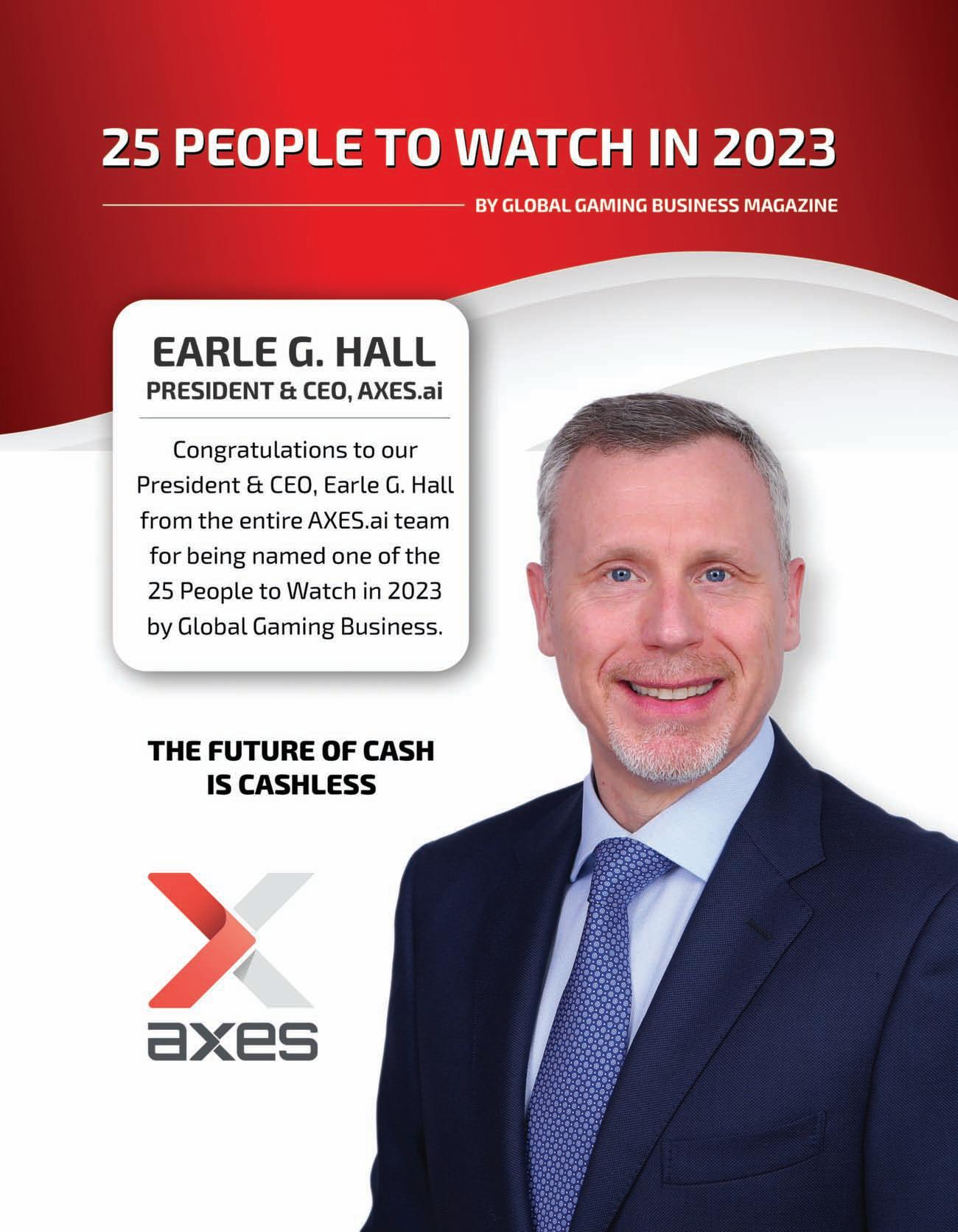
 Anne Marie Caulfield, Director, Gambling Regulatory Authority of Ireland
Anne Marie Caulfield, Director, Gambling Regulatory Authority of Ireland
After many years of delay, debate and disagreement, the government of Ireland has finally embarked on a process to update gambling legislation that has not been substantially changed since the 1950s. This comprehensive project was included in the “Programme for Government” arrangement sanctioned by the island nation’s three main political parties in 2020 and is to include the creation of a regulator to oversee the entire domestic online and land-based gambling scene.
The new Gambling Regulatory Authority of Ireland watchdog is expected to begin life sometime next year as part of a larger commitment under the forthcoming Gambling Regulation Bill to improve the well-being and safety of the public. This fresh body is additionally set to be given powers to supervise all forms of gambling alongside their associated advertising, online and mobile-facing endeavors.
In advance of the new regulator’s launch, the government of Irish Prime Minister Micheál Martin revealed in September that experienced civil servant Anne Marie Caulfield has been selected to serve as the first chief executive for the coming authority. The University College Dublin graduate previously led the country’s Residential Tenancies Board for eight years, and more recently chaired its Capability Review Programme, which is a key action under the planned 2030 Civil Service Reform agenda.
The appointment of Caulfield followed an extensive international search conducted by the country’s Public Appointments Service with her experience moreover running to time on the boards for a number of public bodies including the Heritage Council, the Special EU Programmes Body and the Department of Public Expenditure and Reform. The career of the incoming figure additionally encompassed handling this latter organization’s structural funds, cohesion and north-south cooperation duties, where she oversaw the administration of some $840 million and helped to lead the North-South Ministerial Council.
Caulfield calls her appointment to lead the coming Gambling Regulatory Authority of Ireland “a great privilege,” and says she now intends to work towards implementing the “effective and efficient regulation” of a sector that is annually thought to be worth approximately $8.4 billion.

“The Gaming Regulatory Authority of Ireland must be built on a foundation of robust legislation, and I welcome the progress to date of the draft Gambling Regulation Bill,” she says. “I look forward to developing a close working relationship with all of the stakeholders in the sector, gambling regulators elsewhere in the European Union and with Department of Justice officials.”
—Alan Campbell
Kevin Lowry has worked at Connecticut’s Mohegan Sun casino for more than a quarter century, ever since graduating Marietta College with a degree in business management. In an industry known for turnover at every level, such a record is cause for celebration.

“What has kept me here is the culture of our organization and the people that I have worked for and worked with over my career,” Lowry says.
A native of Groton, Connecticut, Lowry had a short 20-minute jaunt from home to Mohegan Sun. The close proximity piqued his interest in applying.
“I consider myself lucky that Mohegan Sun was being built near where I grew up. In all honesty, I never imagined when I was hired here that I would still be here 26-plus years later.”
Currently assistant general manager, Lowry is involved with almost every aspect of the property: gaming operations, finance, retail and materials management, tenant relations, and even the CT Sun (the WNBA team).
“Each day can be vastly different than the previous day, which makes coming to work enjoyable,” he says.
In all those years with Mohegan, Lowry cites the pandemic as the most difficult period.
“Without a doubt, the period from March to June 2020 when we had to figure out how to close this facility, and then reopen in an entirely new world with Covid restrictions, safety protocols, and everything else to consider with the pandemic,” he explains.
With the exception of one year, Lowry has spent all his time in the flagship property. He moved from Connecticut to Pennsylvania’s Mohegan Sun Pocono in December 2008 as CFO.

“It materialized rather quickly once I found out there would be an opening,” he says. “Executives Jeff Hartmann and Bobby Soper asked if I would be interested in taking the position, and I jumped at the chance. I believe they were both looking for someone with an analytical background and thankfully they looked internally, and I was fortunate enough to be offered the position.”
At his request, Lowry returned to Connecticut a year later.
“Both Hartmann and CEO Mitchell Etess were instrumental throughout my career, and I owe much of where I am today to the two of them,” Lowry says. As for Soper, CEO of the Pocono property at the time, “what I take most from my time working with Bobby is his ability to build relationships and how to treat people.”
Other mentors that guided Lowry’s career to date include:
Gina Ladocsi, vice president of finance early in his career. “She provided me the exposure to upper management. That exposure gave me a better understanding of what an executive has to manage.”
Gary Van Hettinga, CFO. “He brought a different perspective to the table, and I learned more about this industry from him than probably any other person.”
Ray Pineault, CEO of Mohegan Gaming and Entertainment. “He really made me so much better at my job by challenging everything and asking all of the pointed questions.”
Jeff Hamilton, current president of Mohegan Sun Connecticut. “Developing relationships, treating people with respect. I am so much better now at considering that perspective when dealing with any issue after having worked alongside Jeff for so long.”
For Lowry, action speaks louder than words when it comes to his young staffers. “I am not sure I impart words of wisdom, but I hope that they see how I treat people regardless of title. We spend so much time at work, our co-workers become our second family. I try to keep things as lighthearted as possible,” he says.
—Bill Sokolic
Stacey
Aristocrat Gaming has always strived to recruit, advance and retain top talent in the industry. While turnover is inevitable, the company has maintained its top position in the slot market under the leadership of current CEO Hector Fernandez.
Stacey Zeleznik, who joined Aristocrat in February 2022 as senior vice president and chief people & culture officer, thrives in the company culture Fernandez has helped build at Aristocrat.
“At Aristocrat, people and culture are our top priorities and areas of distinction,” Zeleznik says. “So we call ourselves ‘People & Culture’ teams versus human resources. It follows our mantra of our people, our customers, our business.”
The position at Aristocrat provided Zeleznik her first taste of the gaming industry in her human resources career, which spans more than 20 years. She came to Aristocrat from Ohio-based international industrial equipment giant Nordson Corporation, where she headed human resources functions for 19 years.
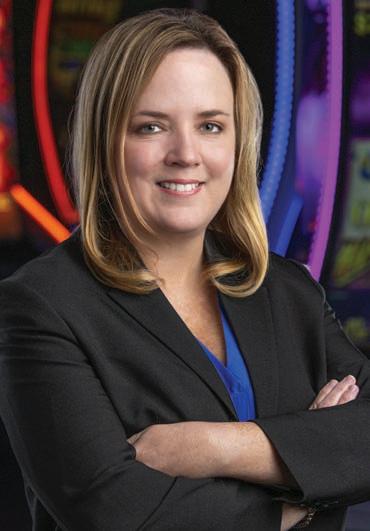
She took to the gaming industry, and the Aristocrat culture, immediately. “The gaming industry is a little more glamorous than where I came from in the Midwest,” she says. “It’s very much a different industry, and very much a different culture.”
As for Aristocrat, Zeleznik says she has enjoyed working with a team that includes the top talent in every discipline—a fact she also attributes to the company culture. “At Aristocrat, we have a fun, exciting, wide range of talented team members, from designers and artists to finance professionals, P&C professionals, sales reps and everything in between,” she says. “It’s very much a fun, people-first culture.
“Right after I joined Aristocrat, a game designer told me, ‘We’re not saving lives here—we make games that entertain people, and we have a lot of fun doing it.’ And that spans up, down and across the organization. We treat our employees well. They’re first and foremost in every decision we make. They, in turn, make sure we treat our customers well. That leads to good business.”
Zeleznik adds that another of Aristocrat’s strengths is a great mix of industry veterans in leadership positions. She singles out executives like Tom O’Brien, Aristocrat’s president, Americas & EMEA, who is in his second stint with Aristocrat in a 21-year career that has included executive posts at Paltronics, IGT, Scientific Games and Interblock; Matt Primmer, the chief product officer for land-based who began in the industry at Shuffle Master in 2008 and has worked for Ainsworth and United Technology Services; and Chris Rowe, director, EMEA & Latam (son of legendary Harrah’s slot VP Bruce Rowe), who has spent his entire 16-year career with Aristocrat.
“We draw on diverse experiences with a healthy mix of company veterans and industry veterans in areas of expertise at all levels of the company,” Zeleznik says. “Hector’s leadership team is a good example of that. The leadership team makes our people, our customers and our business the priorities, and that creates a culture that continues to be the guiding force for retention and recruitment. That’s why people are attracted to Aristocrat, and that’s why people stay.”
Zeleznik says her priority for 2023 will be to continue to cultivate and improve that culture. “We’ll continue to invest in our people moving forward—‘our people, our customers, our business’ as our guiding philosophy—and continuously improving to build great experiences for our employees and increased demand for job seekers that want to work at Aristocrat.”
—Frank Legato
“What has kept me here is the culture of our organization and the people that I have worked for and worked with over my career.”
Brian Green is on a roll.
The 25-year gaming veteran serves as vice president and assistant general manager at Graton Resort & Casino, a luxury property located in California’s Bay Area.
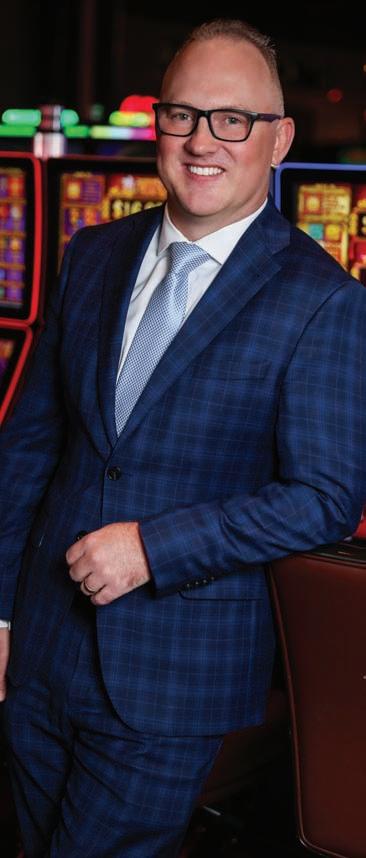
Green oversees the day-to-day operations of the casino resort, including management of over 3,300 slot machines, 131 table games, 20 poker tables, 200 hotel rooms, various food-and-beverage outlets, and 1,900 team members.
Before that, he served as director of slot operations at Graton, where he played an integral role in opening the property’s $850 million, 150,000-square-foot casino.
In 2023, he presides over a hotel expansion project that should be, literally, Green-lighted.

The new plan will add 144,000 square feet to the casino for a 45 percent increase in floor size. The casino expansion also includes a rooftop restaurant. The hotel expansion will add a second, five-story tower with 221 guest rooms and suites located adjacent to the existing tower. The hotel’s swimming pool area also will be expanded.
The expansion will also include a 3,500-seat theater, an additional water tank, a central plant addition, and a new five-level parking garage.
Various levels of the expansion are in the state approval process. Green believes the parking garage will be the first part of the expansion with a second-quarter 2023 groundbreaking.
Green has the best of many worlds for another reason. There is little competition in a heavily populated market. That’s a rare distinction, one that has nearly vanished in the gaming world.
“We are 45 minutes north of the Golden Gate Bridge,” he says, “and we are the closest full-sized casino to the Bay Area. It’s a great thing to know that there are 8 million people in our backyard. That is refreshing, and it changes the way you do things. We can drive more visits from the local market. We are fighting for the lucrative East Bay market with the properties in Sacramento, a couple hours away from us.
“We are located right off the freeway. We are in a great spot.”
The 46-year-old has flourished with principles developed along the way. “The best thing a mentor taught me is to be humble and care about the people around you,” Green indicates. “As a leader, you always want to make sure your

team members have the tools to do their jobs, and you cannot be afraid to roll up your sleeves and do the job with them.”
Green’s advice to future leaders is to offer their services, especially in meetings. “When you do that, you show others that you want to learn more, that you want to care and to grow and be ready for the future,” he says.
One of the most valued lessons, however, is an idea that was self-taught.
“I love walking the floor, talking to guests or team members and listening to their stories,” he asserts. “When I do that with a team member and find out about their families, for instance, when I walk away, it just fills my heart.
“I feel the same way about our guests. They have taken the time out of their normal everyday life to enjoy themselves at our property. When they are here with us, we want them to feel special.”
The longevity and this recognition indicate he has succeeded.
Siobhan Lane, Chief Executive Officer, Gaming, Light & Wonder, Inc.
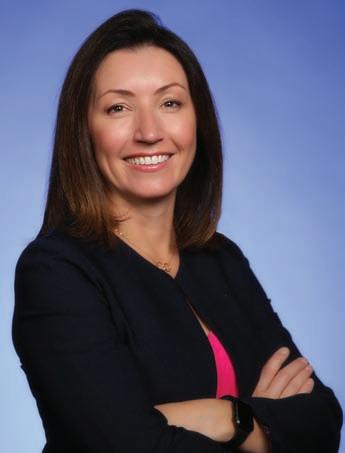
It has been a whirlwind two years at Light & Wonder, Inc., the gaming supplier formerly known as Scientific Games Corporation. At the center of that whirlwind has been Siobhan Lane.
Lane arrived at the former Scientific Games in February 2020 after 12 years at Aristocrat, the last two years as senior vice president, marketing and gaming operations. A month later, a former Aristocrat colleague, Matt Wilson, joined the former Scientific Games as chief executive officer of the Gaming Division, brought in by SG Executive Chairman Jamie Odell, who had been CEO of Aristocrat, along with Executive Vice-Chair Toni Korsanos, another Aristocrat alumnus.
It was a baptism by fire for both Lane and Wilson, as within weeks of their arrival, the Covid-19 crisis hit and the industry shut down. It was the first example of how well the former Aristocrat colleagues handled challenging situations.
“We went straight into crisis management of the pandemic,” Lane recalls, “so it was beneficial in that we knew how to work together. We have complementary strengths, which really helped us in that time of crisis to move quickly and with certainty.”
It would help through the monumental changes to come in the subsequent two years as well. Early in 2021, former SG CEO Barry Cottle announced that the company was to divest its lottery and sports betting businesses to concentrate on producing games for omnichannel distribution. Along with this transformation came a rebranding—early this year, the company rebranded as Light & Wonder, forging a new identity as a leading cross-platform global
games company.
In August, Cottle left Light & Wonder and Wilson was named interim CEO. In October, the company made the new CEO title permanent, and Lane was named as the new CEO of gaming.
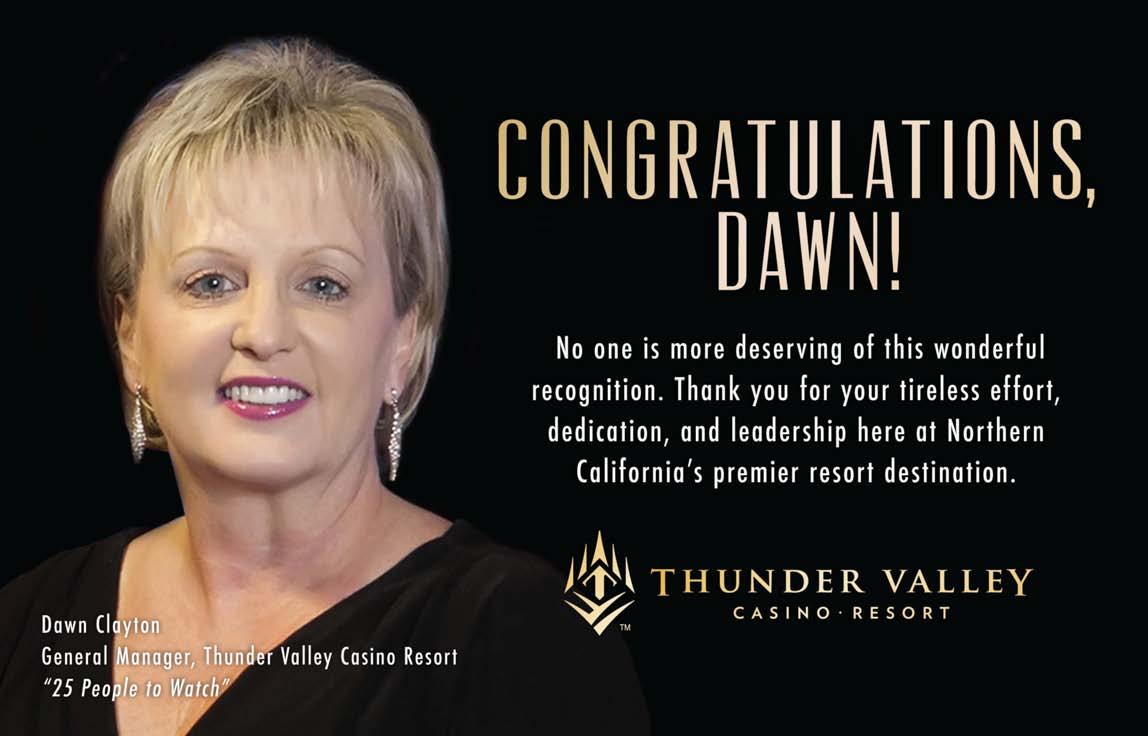
It is a position for which Lane was well-equipped, having been in the thick of Light & Wonder’s transformation.
“We knew coming into the business it was going to be a multi-year effort,” Lane says. “And we set the strategy for the gaming business pretty early on. And then when Jamie and Toni joined the board, we drove the strategy at an enterprise level that included the divestitures of the lottery business and sports business. So we’ve had a pretty clear strategy in the gaming business for a couple of years.”
Those divestitures have cleared Light & Wonder’s path to success as a cross-platform game supplier.
“The old SG had just so much debt on the books they had to think about making an interest payment every quarter, instead of being able to focus on what’s really going to move the needle and grow the company,” says Lane. “Now, with the balance sheet that we have, with all of that debt off the books, we can truly invest. And we know in gaming what makes you successful are the strengths of your products.”
The core of that is game development.
“We consider R&D the engine of our business,” she says, “and we’re hyperfocused on making sure we’re investing in the right product segments, and really optimizing that investment. That’s really been the game changer—being able to focus on gaming, creating great games, creating great products including systems and tables, and then making sure we’re delivering on customer expectations and making them successful.”
That focus doesn’t change what Lane calls the “macroeconomic dynamic” right now, which means inflation, shifts in the labor market, and a pending recession—things she says keeps her and every other industry leader up at night. But she notes that Light & Wonder remains strong because of the great corporate culture that has been created at the top by Odell, herself, Wilson and Korsanos.
“We make sure we reiterate the importance of our teams, that we focus on what we can control,” Lane says. “Now that those divestitures are done, it’s really about having the ability to continue to invest in gaming, which is our largest business unit in Light & Wonder, and continue to invest in making great games and products, and solutions our customers want, and will make them successful.
“Culture certainly starts from the top, but it’s also driven every day from an individual level on our team. We have room to grow, in the industry and in the market, and we have the right team, the right culture, strategy and vision to get us there.”
—Frank LegatoF or the most part, the casino industry has been built on tried-and-true systems and business models that are resistant to change. However, innovative advancements in technology often drive the marketplace forward, and for the past few years, gaming has experienced a revolution of sorts, one dominated by data and analytics. Earle G. Hall, CEO of Axes.ai, has long been one of the pivotal players in this transformation.
Despite the fact that Hall has spent the better part of the last 30 years in various corners of the tech space, he never received much formal education on the subject—instead, he cultivated his own passion and “started programming at 14.” Then, as he got older, he picked things up as he went along. “I was always doing my Microsoft engineering courses,” he says, “but I would always only get the piece I needed.”

This passion was eventually supplemented by humility and discipline, thanks to the Royal Military College of Canada and a nine-year stint as an officer in Canada’s Department of National Defense.

“It doesn’t matter how much of a superstar you are, you’re just a number in the average of the overall team,” Hall says. “It’s funny how the Army taught me that the superstars that were seeking all the attention, they ended up failing. And of course, the most weak, they had trouble keeping up physically or mentally or whatever. But the spread between the superstar and the late-comer, or the person lagging behind the spread, wasn’t that much. And that’s where the notion of teamwork was really burned into my brain, carried on in the Army.”
After he transitioned back into civilian life, however, the gaming industry was far from his sights. Instead, he was “sitting in Quebec City trying to figure out what my next move was,” when suddenly he got a call to review a patent for table game-related technology from a failing company—he quickly found that the patent “had almost no friction” with others in the industry, and it was clear to see that “the project just needed to be reframed and retooled.”
The company in question was DEQ Systems, and because Hall had done such a good job of pointing out its potential, he was soon given the reins, thus catapulting him into an industry he’d never even considered.
Over the next eight years, he came to love gaming, thanks in large part to a series of mentors whose wisdom illuminated the fact that “this is the industry that probably has the most heart that I’ve ever seen.”
By the time 2011 rolled around, Hall was working in Macau when he got another fateful call, this time in reference to a revolutionary new company called Axes.ai. At the time, it was also struggling, partly because it was “10 years ahead of its time, unfortunately.” The potential was clear,

but the timing just wasn’t right, so he opted to accept an advisory role with the board of directors. Then in late 2013, Hall knew that Axes “had all of the right ingredients to make an amazing company,” so he took another leap, accepting the role of president and CEO. Both he and Axes haven’t looked back since.
After a few years of “building out speed, security, redundancy, and resilience” by investing heavily in cloud-based, “serverless and stateless” technology, the advent of the Covid pandemic is “really where Axes came to life,” because its offerings were so well suited for a decentralized, cashless environment.
Looking ahead to 2023, Hall says that he and his team have three main objectives: “marrying all of the cashless components together so that there is no clunky chunkiness, getting the pieces of our data that our customers need in real time to be available all the time in real time,” and emphasizing “digital out of home publicity.”
Through it all, however, Hall understands that his leadership must come from the front.
“I’ll go through copious levels of pain to learn something or to do something because when they need advice, they actually don’t need you to talk,” he says. “They need you to intelligently listen, because most people can figure out their own issues just by talking about them. If you’re looking for a boss sitting with a stapler and with a stamper and with a highlighter, I think that thankfully died during Covid.”
—Jess Marquez
“It doesn’t matter how much of a superstar you are, you’re just a number in the average of the overall team,”
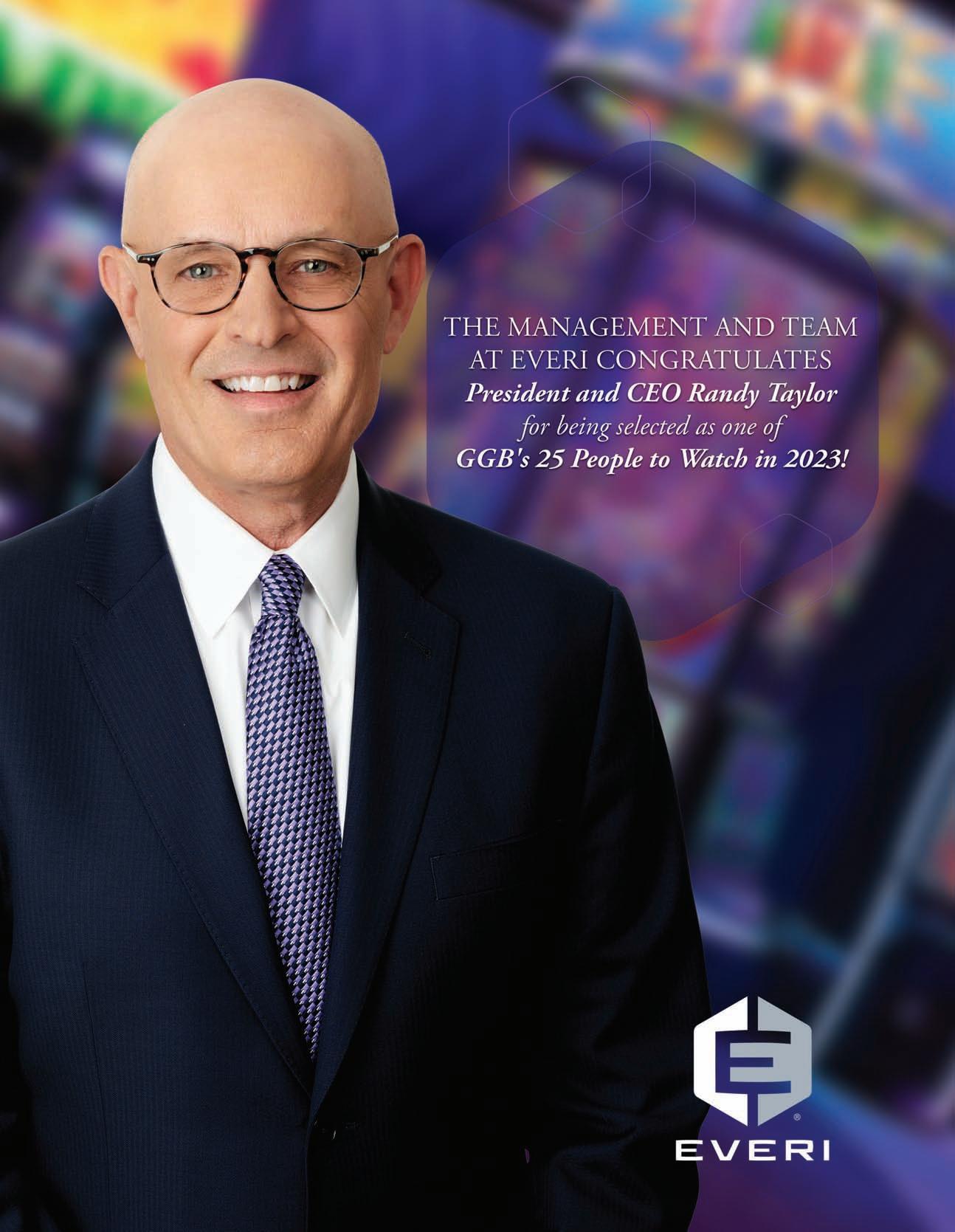
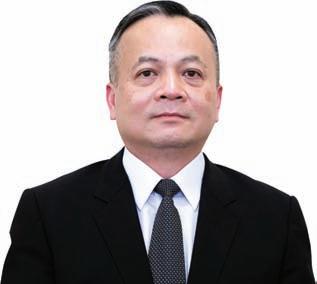
The regulatory system in Macau has been like a Chinese menu, if you’ll pardon the pun. Take one from Column A, two from Column B, etc. The point is, you never knew what you were going to get from regulators. Sometimes they were very strict, other times they seemed to look the other way.
When Adriano Ho took over as director of Macau’s Gaming Inspection and Coordination Bureau (DICJ) after a long reign from previous director Paulo Martins Chan ended in 2020, it was clear many things were going to change. First of all, the renewal of the concessions came with a reform package for the entire gaming industry in Macau, including the regulations.
Unlike Chan, however, who wasn’t shy about stating his views on regulations, Ho has been relatively quiet about his approach to the organization. But then again, Ho’s background in law enforcement wouldn’t indicate such an openness. Prior to becoming DICJ director, Ho was an adviser to the secretary for security. Prior to that position, he was head of the Macao Sub-Bureau of the China National Central Bureau of Interpol from 2004 to 2010. He also led the Judiciary Police Criminal Investigation Department from 2010 to 2012 and was chief of the gaming-related Economic Crimes Investigation Department from 2012 to 2014.
In the gaming reform bill that accompanied the concession renewal for all
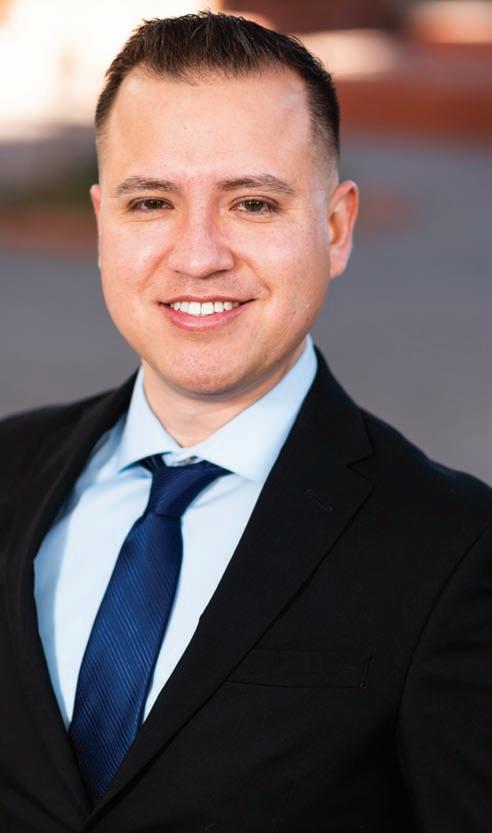
six concessionaires in November, the DICJ will be given an expanded role of the once-dominant junket segment of the industry. Junkets now are going to be regulated much more strictly when it comes to licensing and revenue. Both casinos and the junket operators will now be responsible for all operations and revenue from the junket operations, with more transparency demanded.
In addition, there will be caps on the number of table games and slots, controls over who can hold shares in the gaming companies, and more emphasis on creating non-gaming attractions, although it’s unclear if the DICJ is going to enforce those imperatives.
Ho served as a member of the committee that evaluated the bids of the concessionaires, so his views are becoming increasingly important. Another element that will be strictly watched will be the employment rights of Macau residents. All the concessionaires have been acutely aware of their employees during the ongoing Covid crisis, and Ho’s interest could have played a role.
But it appears the DICJ will play a central role in the implementation and enforcement of the requirements outlined in the agreements, which were due to be signed by the end of 2022. Ho was quite clear in outlining his agency’s role.
“Following the grant of the new concessions, we will closely monitor the gaming concessionaires’ implementation of what they have promised in their bids, which will include the exercising of their social responsibilities for ensuring the gaming industry can be sustained healthily, that local residents’ employment interests are protected, and that they are supporting the diversification of the economy.”
—Patrick Roberts”V. UNLV. LV hip he y t ed b

a, MP zalez Mader
PA

M O T
STUDEN
Cohen THE AND ATION D N P Y, T SOCIE 1957 ED V. UNLV. T VISI SE PLEA

FOUN UNLV THE OUGH S O T ORE

Y Y. T 1957SOCIE / DUU/
If the relationship between the gaming industry and Gaming Laboratories International was a coin, Kelly Myers could identify every flip of it—forwards, backwards and even on its side. GLI’s manager of client solutions is a rare industry find as an individual who understands the vantage point of operators, vendors and regulators.
Myers works closely with tribal and state gaming regulators in the Midwest and consults with tribal and state gaming clients across the U.S. and Canada. The job requires not only leadership and organizational skills, but an outgoing personality. Myers has all three.
Although Myers anticipates industry trends, recognition as one of the 25 People to Watch was one thing she didn’t see coming.
“I was completely shocked and honored by this recognition,” she says. “Individuals that I have known who have received this are outstanding leaders in the industry.”
After two decades in gaming, Myers assists the industry from another vantage point via GLI.
One function of GLI is to help different states adopt standards that protect patrons, like a standard payout range of a game, for instance. Another company sector helps companies who want to enter gaming markets test their products to comply with standards within specific jurisdictions. If a GLI test confirms the standards are

met, companies feel comfortable applying for licenses or introducing new products.
Myers feels at home with GLI, and thus is encouraged to stretch her talents further.
“It’s a joy to be in this environment,” Myers says. “I just love this job; it’s hard to say anything more than that. Our team members were just discussing how we have such a great rapport with GLI. They are amazing. They take care of their employees. They make us feel like we are the company. It makes you buy into it for sure.”
Myers brings a wealth of experience, intel and insights to GLI’s Native American and First Nation regulator and operator clients. She spent 17 years in tribal gaming regulation, helping the casino operations she oversaw to grow by embracing new opportunities while maintaining the highest levels of compliance.
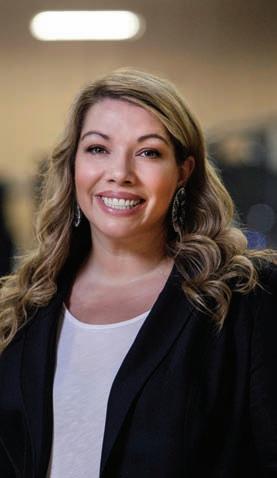
Prior to joining GLI, she was compliance and licensing manager for the Cherokee Nation Gaming Commission. She also served as chairwoman of the Oklahoma Tribal Gaming Regulators Association and of the Iowa Tribe of Oklahoma Gaming Commission. Previously, she was chief operations officer for the Iowa Tribe of Oklahoma Enterprises, and has served as a board member for the National Tribal Gaming Commission Regulators.
The Tahlequah, Oklahoma native travels throughout the Midwest as part of her job. The flexibility allows her to enjoy the company and rising stature of 17-year-old daughter Katelyn, who made it through the early rounds of American Idol a couple of years ago and now sings professionally in Nashville. So Kelly Myers dubs herself a “Mom-A-Ger.” As she looks over her career and her daughter’s musical emergence, Myers expects the hits to keep on coming.
—Dave Bontempo
Legalized gaming has been trying to get a foothold in Brazil for almost 20 years.
But it usually got caught up in the often-nasty world of Brazilian politics, and the most recent round was no exception.
For the first time, the Brazilian Chamber of Deputies approved an omnibus gaming bill in February 2022, but the president, Jair Bolsonaro, promised a veto should the Senate also pass the bill. But in the heat of a presidential campaign, there was no appetite to tackle such a controversial issue, so the bill never arrived on the president’s desk.
Meanwhile, a heated contest between Bolsonaro and former president Luiz Inácio Lula da Silva came down to a cliffhanger. “Lula,” as the challenger is called, came out on top, although there are still many in Bolsonaro’s factions that dispute the results.


There was a hope that the gaming bill would gain traction during the transition, but that has not happened. Nor has the regulation of sports betting—a bill already passed by both houses—been signed by Bolsonaro, so the entire package will land in Lula’s lap when he takes office in January. But what does that mean for gaming? In a previous administration, Lula had rejected gaming in a similar manner to Bolsonaro. But have times changed?
After the recent election, the Senate promised to take up a legal framework for gaming. While Bolsonaro had threatened to veto such a bill, Lula has indicated he will respect the wishes of the Congress. The bill can also become law without the signature of the president.
Brazilian news agency BNLData reported: “We do not know the updated public opinion of Luiz Inácio Lula da Silva. The former president was once a strong supporter of the legalization of gambling, even stating it publicly on several occasions in the 2002 campaign and at the beginning of his government in 2003,” but a corruption scandal ended those chances.

While one might assume the Chamber of Deputies would again pass a version of the bill passed in ’22, observers point out that many conservatives ousted supporters of that bill, and it will be difficult to garner the same support as it had last year. And the Senate also had some conservative winners, so support there is unknown at this time. Most religious groups, an important sector of the Brazilian population, oppose gaming.
But with a sinking economy and a desire to boost tourism, the numbers to be created by a healthy gaming industry can’t be ignored. Supporters of the bill estimate that legalization would generate R$150 billion (US$28.5 billion) in taxable revenue.
Lula will be under pressure to do something to boost the economy, and gaming can produce two things Lula needs desperately—taxes and employment.
—Patrick RobertsIn December, more than two years after voters approved Virginia’s first casino, officials of Hard Rock International and the city of Bristol broke ground on the $400 million complex.
When it opens in mid 2024, Hard Rock Bristol will include a casino and sportsbook, a 300-room hotel, restaurants and bars and a concert venue. In the meantime, a temporary casino is going strong, and took more than $500 million in wagers in its first five months.
Presiding over all this excitement is Hard Rock Bristol President Allie Evangelista, whose career ascent—from hospitality intern to housekeeper to casino manager and executive—is nothing short of inspirational.

Born Allie Heinen in Rio Grande do Sul, Brazil, Evangelista came to the U.S. in 1998 for an internship at Walt Disney World. Despite a degree in travel and tourism, she began at the bottom, making beds, lugging luggage and parking cars, then progressed to a hotel front-desk position. In the meantime, she met Fabio Evangelista, the man who would become her husband. “So I went back to Brazil, packed a suitcase and said goodbye.”
Hotel manager Mark VanBuren, who was about to move on to Ameristar Casino in Missouri, suggested his protégé apply there too. “I had never seen a slot machine in my life,” says Evangelista, who was dazzled by the opportunity, but hesitated.
“I thought it was too good to be true. Why would they want me?” Even so, she adds, “I think you love gaming or it’s not for
you—and for me it was love at first sight. I loved the fast pace, the energy. It was like being at a party. And I saw a chance to grow.”
Over the next 15 years, Evangelista did just that, climbing the ranks from slot operations to table games, from casino operations to human resources, then on to vice president and general manager, crisscrossing the country in the process. Along the way, she earned an MBA and a master’s degree in HR management.
“I always said yes to opportunity,” she says.
As for the new Hard Rock, “It has certainly exceeded every projection we had from day one.” The casino will have the usual mix of music memorabilia, and already displays costumes and guitars from entertainers like Dolly Parton and Taylor Swift. As of last fall, its loyalty club had more than 55,000 members from the immediate vicinity alone, and more from around the country. A 2019 study projects that it could generate $3.7 million in new taxes for the city, helping to fund a new elementary school, hire more firefighters, and buy new police cars.
“I know what this industry has done for me and my family and for different towns across America,” says Evangelista. “I know how it can transform a community.
“It’s so gratifying” to watch the new structure take shape, she says. “I wake up in the morning and I cannot believe my life. It’s challenging and very exciting.”
At opening, the property will employ 1,200 people, mostly locals. And many, like Evangelista, will have to start at the start. What will they need to succeed? “It’s very simple,” she says. “We’re in the people business. You have to want to work with people and make a difference in their lives.”
Evangelista thanks the mentors who recognized her potential: VanBuren, without whose influence she would never have considered gaming; Anthony Sanfilippo of Pinnacle Entertainment, who gave her first job as general manager; and Jon Lucas, CEO of Hard Rock, who tapped her for the role in Virginia. “They believed in me and took a chance on me.”
She also thanks her adopted homeland, where she found so much opportunity. “It’s amazing. I don’t take it for granted, and want to open doors for others.”
—Marjorie Prestondent of the Mirage. I’m really honored to do it, and I’m excited to help lead the team that’s currently there and some of the newcomers that will be walking in on day one.”
The superheated competition of the Las Vegas Strip won’t be anything new to Lupo, who most recently turned Hard Rock Atlantic City into the second-highest revenue earner in that Boardwalk town, after spending almost a decade at the Borgata, the top casino in Atlantic City.
“I personally think it’s great to get different experience and work with different people, and especially coming from the Borgata in Atlantic City, which is one of the most competitive gaming jurisdictions in the country. Then I went to Hard Rock Tampa, and that was one of the most profitable, highest gaming revenue producers in the country, but a much different market, a much different style of organization.”
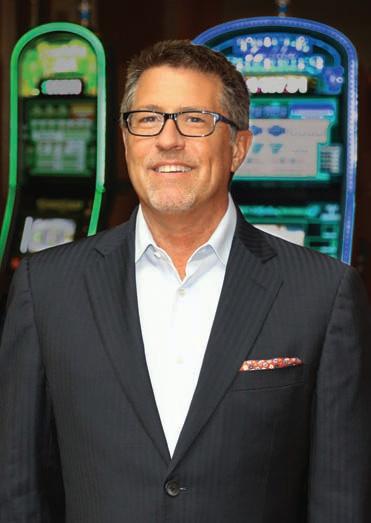
For Joe Lupo, getting a job in Las Vegas is like a homecoming. His family and grandchild all live in Vegas, where he started his career long ago as an employee of Boyd Gaming. But for Lupo, the homecoming won’t be complete until they do the “guitar smash”—Hard Rock’s version of a ribboncutting—on the brand new Hard Rock Las Vegas that he’ll be leading.
That grand opening, however, is several years off, and Lupo’s immediate responsibility is to run the Mirage, which Hard Rock International bought from MGM Resorts last year for more than $1 billion. And that’s just the operations. Real estate investment trust VICI owns the land.
Lupo is already excited about his Las Vegas job at the Mirage.
“It’s going to be a while before Hard Rock Las Vegas really comes into its own,” he says. “The Mirage is such an iconic building, and is so well established. If you walk into it, you know you’re at the Mirage. And so we’re looking to bringing some of the culture of Hard Rock to the place. I want to bring some excitement, and you know me, I’m gonna push the envelope.”
It’s almost a dream come true for Lupo.
“I’m so fortunate to have this opportunity,” he says. “I’ve worked with so many good people over the years from starting at Boyd Gaming, and now with Hard Rock and Jim Allen. I’m the product of working with great people, and so I never thought I’d get this far when I was here at the University of Nevada, Las Vegas, and have the chance to be presi-
Making Hard Rock Atlantic City No. 2 was that much more impressive because he did it during the pandemic.
“It was a tough time coming out of Covid, but we had the biggest increases in gaming revenue of anybody by far in the city. I’m really proud of the efforts that we made, and I think all those experiences have molded me really well, along with working with great people. I think leadership and culture play a real big part in the success of a team. So having been able to work with Jim Allen and the tribe and the individuals that were at those properties and getting those different experiences, I think it put me in a great place.”
Lupo’s challenges of running the Mirage while preparing for the debut of Hard Rock Las Vegas are many and varied. There will be lots of changes, however.
“They’ll definitely be operational changes, although we’re trying to create as much consistency as we can. I have to give a lot of credit to MGM and the Mirage team. They’re running a great property. But there are going to be some technology changes. I want stability for the first 30 to 60 days, and it’s always going to be the Mirage until it changes. It will remain the Mirage, but we’ll try and add some fun. We’ll try and add the Unity (Hard Rock’s new loyalty program) complexity to the rewards program, but we will be more aggressive. From a standpoint of marketing, we’re looking at advertising and marketing changes.
“So there’s an interim period of time before it becomes Hard Rock Las Vegas. But I think there’s opportunity, especially in this market, in that people are looking for something fun and new, and I think we’ll be able to provide that.”
—Roger GrosOneida Nation
For generations, members of Wisconsin’s Oneida Nation struggled with poverty. As recently as the mid20th century, some lived in homes without electricity.
Their fortunes started changing in 1976, thanks to bingo games played in double-wide trailers. Those twice-weekly games were the cornerstone of an empire that now includes three casinos and two smaller gaming halls in Green Bay. Together, they make the Oneidas the third largest employer in the region.
“This is a multimillion-dollar business,” says Louise Cornelius, gaming general manager of the everexpanding enterprise. “If we were in the outside world, we’d be part of the Fortune 500.”
Gaming is like a family business for Cornelius, who grew up on the reservation and began her career as a bingo supervisor in 1985. “I was lucky to work from the ground up and get hands-on experience” in many aspects of the industry, she says, bolstered by degrees in management and business administration and a strong commitment to her people.
She’s held positions in both management and regulation, and served for seven years as chairwoman and executive director of the tribal gaming commission. In the latter role, she says, “I think I was instrumental in assisting a relationship that’s sometimes adversarial— making it a win-win, so we could all be successful.”
In November 2021, the Oneidas celebrated another milestone, opening the Badger State’s first sportsbook. It was an instant hit in the four-season sports community, which alternately roots for the Milwaukee Bucks, the Milwaukee Brewers and the Green Bay Packers.
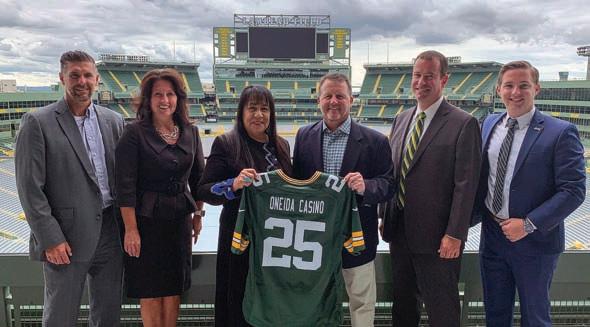
“The sportsbook is doing really well in terms of hold percentage; it’s increased foot traffic as well as revenues,” says Cornelius. Though mobile and online sports betting aren’t yet legal in Wisconsin, a geofenced app lets players make virtual wagers on casino grounds.
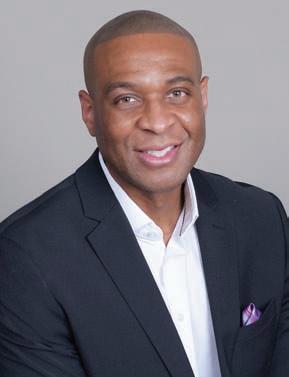
Cornelius anticipates even greater growth in the


new year. By spring, she will propose a multimillion-dollar casino expansion with luxury amenities to appeal to Gold Players Club members. “We’ve got to cater to those high rollers. Hopefully, I’ll get the support to go ahead with that.”
She will also continue the fight against “eightliners,” unregulated video slot terminals that operate in state gas stations, bars and even laundromats and are defended by the state’s powerful Tavern League.
“Wisconsin calls them amusement devices, but these are illegal machines” that unfairly divert business from tribal gaming halls, according to Cornelius. “We’re as highly regulated as a bank because of our assets, and we also compete for that discretionary income. We’re working on a process to address the matter.”
Most of all, she looks forward to leading her staff, and learning from them, with a management style that combines guidance, communication and mutual respect.
“I try to keep that balance, providing direction while coaching and mentoring my staff,” she says. “Our leadership team has a strategy to improve HR management, which means taking care of all our employees. And I always go with the philosophy that says to be successful in your field, pick people that are smarter than you. Of course, our other strategic priority is to always grow gaming revenue.”
As in public Fortune 500 companies, Oneida Nation gaming benefits the “shareholders”—in this case, the tribal community, sustaining education, housing, health care and other essential services.
“Gaming is our No. 1 support, and the money we generate is the key to our success,” says Cornelius. “It’s always about growth.”
Marjorie PrestonKen Golar’s 18-year career in gaming has included executive financial positions at some of the largest operators in the business, including MGM Resorts at the corporate level and The Mirage at the property level. Golar also spent a year on the supplier side at Light & Wonder before accepting his current role as vice president of finance at Grand Casino Mille Lacs & Hinckley.
Golar’s megaresort and supplier experience come to bear in a much different setting than in the past, in the locals-oriented market in Minnesota, where the two Grand casinos work in concert to manage operations at properties less than an hour’s drive apart. Golar is stationed at the Hinckley property, where he works with his counterpart—Ali Khaghani, the finance VP stationed at Mille Lacs—to forge a team approach to finance for the good of the larger operation.
“We’ve got two properties, two leaders, so it’s important to work with my counterpart,” Golar says. “We have different processes, different modeling, so since I’ve come here, we’ve got both properties aligned with Grand Casino standards. My counterpart is here at Hinckley once a month. It’s important to collaborate, support and communicate to get team finance on the same page.”
It helps that his counterpart, Khaghani, is also an alum of MGM Resorts International, having worked both at the corporate level and at the MGM Grand in Las Vegas.
“Working for MGM Resorts, in my opinion the premier company in the gaming entertainment industry, that experience brings the substantial gaming knowledge, expertise and skill set that comes from working for one of best casino operators in the industry,” Golar says.
For his part, Golar is adapting that experience to bring new ideas to the smaller Minnesota market. “You’ve got to be creative, and help the team grow through challenges,” he says. “It’s a great opportunity, coming from a big market like Las Vegas to a small market in Minnesota. Las Vegas benefits from huge visitation as a tourist destination, whereas now, we need to be more cautious when we go about planning in this market. I’m still learning the market, but I’ve got a great support team that values my input, my expertise and my perspective.”
One critical aspect of finance operations Golar has brought to Minnesota is the use of technology to mine data for more efficiency in decision-making. Last July, the casino deployed the QCI business intelligence platform to assist in host, marketing and slot data analysis. Golar says it has made his job easier, and data mining technology will be utilized on a broader basis in the near future.
“We’ve implemented QCI and we’re going through the training process, but it’s already made the process of interpreting data much quicker and easier,” Golar says, “which makes it much easier to support business performance and identify trends.
“Coming from Las Vegas and MGM Resorts, we had the best technology and applications to make utilizing data easier. Now, we don’t have a lot of capital dollars to spend, so we’re going through a process with technology that will help in making better decisions. Being in a new market with a smaller casino, it’s definitely prudent to invest a lot of capital dollars in technology.”
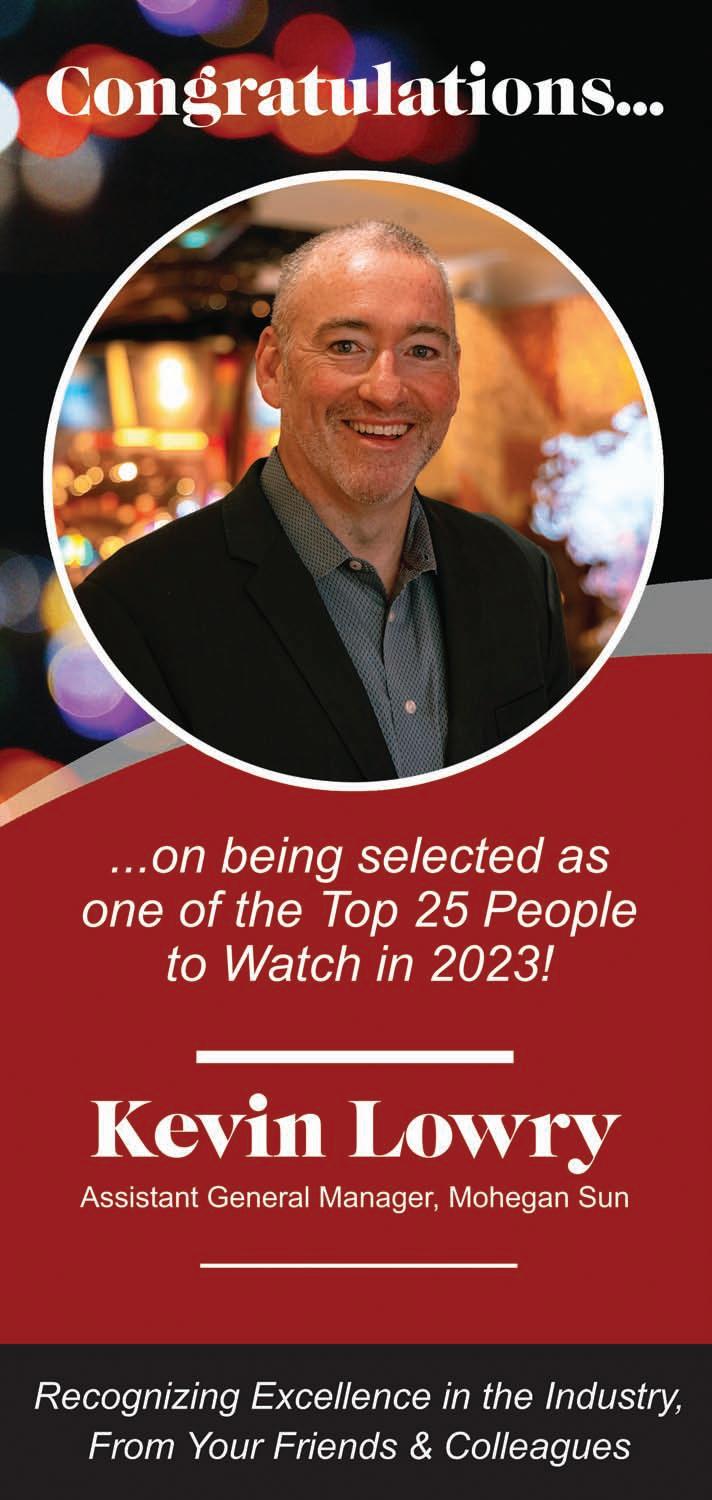
As far as priorities for 2023, Golar says the finance operation for Grand Casino Mille Lacs & Hinckley is a work in progress that is moving toward maturity. He says his job now is to “keep learning, keep being openminded, and keep being a leader—motivate, inspire, work with the team, grow and be productive.
“My job is to grow my team, teach them, and be humble, and we we will be successful.”
—Frank Legato
“Being in a new market with a smaller casino, it’s definitely prudent to invest a lot of capital dollars in technology.”

When Mike Rumbolz was elevated from the board of Everi Holdings to its president and CEO, the company was in dire straights. While the fintech division, the former Global Cash Access, was clearly the leader in that field, the quirky slot manufacturer it had recently acquired, Multimedia Games, didn’t seem to be a good fit.
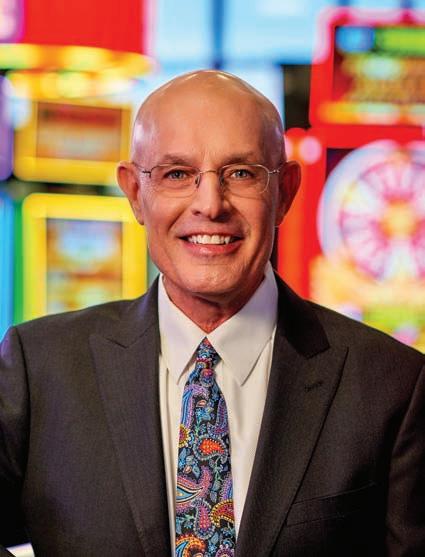
Rumbolz came in and got everyone on the same page. He built a corporate culture that focused on cooperation and involvement of all employees and executives, and within a few years, Everi was living up to its name—offering everything the industry needed in those two spaces. Share price bounced back and Everi was recognized as one of the movers and shakers in the gaming industry.
Rumbolz’s little secret, though, was he wanted to retire even before joining Everi, so he put everything he had into turning around the company. So a few years ago, Rumbolz, who was elected to the American Gaming Association’s Gaming Hall of Fame in October, put an exit plan in place and identified Randy Taylor as his successor.
Taylor had been with Everi for over 10 years, starting on the fintech side and becoming the chief financial officer, and then learning about the games side before being elevated to chief operating officer, where he learned about the operations side of the business.
So when Rumbolz took his final bow as president and CEO to take the position as executive chairman of the board, he passed the baton to Taylor, and the company seemingly hasn’t missed a beat. And that again is a credit to the foundation laid down by Rumbolz.
Taylor says the communications between the divisions is stronger than ever, mostly due to each one having its own leader—Dean A. Ehrlich heads up the games division and Darren D. A. Simmons leads the fintech side.
“Mike’s been my mentor,” says Taylor. “He’s been great for my career. But I feel pretty good with the management team we have here, and we’re set to move forward. And Mike has paved the way for us. I feel good with the people we have and can continue to follow in his footsteps.”
Everi’s success in the fintech market is undisputed. The company owns Central Credit, which has been supplying operators with information about players for more than 50 years.
“It’s basically a clearinghouse between casino operators that are all part of Central Credit that allows the operators to understand what credit’s been provided to an individual at different locations, and really, the worthiness of that individual,” he says. “So it really helps them make good decisions about how much credit to provide to a particular customer.”
As an early supplier of ATMs to the casinos, Everi now has a product line of full-service kiosks that do everything from cashing TITO tickets to accepting payments for previous debts, with a longevity that gives comfort
to operators.
“I think casino operators know us,” he says. “We’ve been around for a long time. We have a great renewal rate because we give a great experience for the patron and efficiency for the casino operator. And that’s really what we base all the services that we pull together on, whether it’s self-service kiosk, whether it’s AML reporting or a loyalty product. We’ve got 17,500 gaming machines out there with a service department that really resonates with our casino operators. And I think our experience really shows through with the amount of customers that we maintain and continue to renew.”
Everi also has had a head start in getting money into the hands of gamblers via cashless transactions. Its CashClub Wallet was launched in 2019 and is in more casinos than any other cashless solution.
“It’s not just a wallet, but it’s something that we really want to make sure can go all across the integrated resort,” Taylor says. “So we have connections to food & beverage and to retail and to showrooms if the operator wants it. It’s really based on when the customer wants to install it.”
On the games side, Everi just completed one of its best G2Es ever.
“We did think this was a tremendous show for us. We showed two new cabinets, and they got a great response. Dean Ehrlich, who directs our games business, has a very specific roadmap. He works with the development team on our normal ‘bread and butter games’ because those games are still popular. But you have to have unique games, and then you have to have new cabinets. So we’re really excited about our games, and I think they got a lot of buzz.”
Everi has been making inroads on the iGaming side, too, with partnerships with almost all legal iGaming sites in the U.S.

“I’m really pleased with how quickly we’ve become one of the providers that anybody who launches a new site wants to be part of,” he says. “We’ve got great mechanical product, we’ve got a great library on the land-based side that we’ve been able to really port over.”
Taylor has goals for the next few years that don’t sound unreasonable.
“On the games side I want see Everi as one of the preferred vendors,” he says. “If there’s an opening, if there’s an expansion or replacement, we should be one of those companies that are a must at that casino, and that’s also on the iGaming side.
“And then on the fintech side, I expect us to continue to be, in my view, the leader in that area. I want our wallet to continue to expand. I want to be the best in class.
“And then I want to see us expand a little bit outside of North America, however much that will be. We’re putting our toe into Australia. So I expect that to be a place where we continue to grow.” —Roger Gros






In 2023, Dawn Clayton will have to clear some shelf space, just for new plaques and awards.
The general manager of Thunder Valley Casino Resort has been recognized as one of California’s top business leaders by Forbes, was recently named Bentley Price Associates’ Best of the Best in Executive Operations, and concurrently joined GGB Magazine’s People to Watch list
Such recognition reflects the esteem in which Clayton is held in her industry and community. But she’s quick to share the applause with the United Auburn Indian Community, which operates the luxury resort in Lincoln, and more than 2,600 “exceptional team members.”
Clayton began her career in 1985, as a craps dealer in Atlantic City. At the time, there were few women in the pits, “and even less in higher-level positions, up to and including C-level leadership positions.
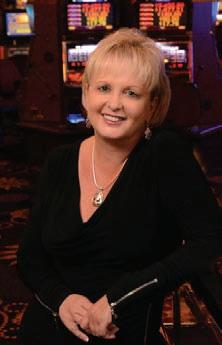
“To say that breaking into the industry on the gaming floor was challenging is an understatement,” she says. “But value reveals itself, and I was committed to working as hard as possible to be recognized and ultimately considered for promotions.”
To make it happen, she worked up to seven days a week, took on jobs that others spurned, and accepted the least desirable shifts as part of her “passion for continual learning.”
Opportunity followed at resorts in West Virginia and Indiana before she joined Thunder Valley, first as vice president of casino operations, then assistant general manager, and finally, general manager.
Under her leadership, the tribal resort has refurbished existing hotel rooms and suites, added more than 100 new accommodations, introduced an ultra-lounge, opened new dining options, and launched new bingo and poker rooms, the latter with payouts as high as $1 million. Each of the projects came in on schedule and within budget; each enhances the luster of the AAA four-diamond resort near Sacramento.
Recalling the obstacles in her own career, Clayton champions women and minorities in the workplace, urging them “to believe in themselves and know that advancement in this industry is possible and achievable.

“Great strides have been made for women in leadership,” she adds, “but there’s much more to do, and I want to play a role in ensuring that they’re able to climb the corporate ladder if they opt to do so. Their voice matters, and statistics prove that diversity of thought and perspective makes an organization much more effective.”
Clayton’s is a 24/7 job, but she makes time for several nonprofits, including the Female Leadership and Mentor Exchange (FLAME), and PRIDE Industries, which creates employment for people with disabilities (an in-house laundry at Thunder Valley is fully staffed by PRIDE recruits).
She encourages anyone who would follow her path “to be a continual learner: determined, resilient, strategic, results-oriented, team-centric and ethical. One of the standards I hold for myself is to conduct myself in such a way that my integrity can never be called into question. I want to be known for creating value for the owners, stakeholders and team members alike. I believe the adage, ‘To whom much is given, much is required.’”
In 2023, Thunder Valley will mark its 20th anniversary and also open a new $100 million concert arena, the Venue, with headliners the Eagles, Bruno Mars and Santana: just two reasons Clayton will be celebrating. She believes the best is yet to come.
“Working for the United Auburn Indian Community alongside the amazing Thunder Valley team has been the highlight of my career,” she says. “The plans we have to add to the footprint in the next three, five, 10 years are just as exciting as the initial 20 years have been.”
Marjorie Preston
By now, it’s no secret that iGaming and mobile sports betting are perhaps the two most important gaming markets to watch moving forward.
As more states continue to come online, every operator is either developing or launching their own platforms, but the major players have separated themselves from the pack. Among the needle-movers is BetMGM, whose CEO, Adam Greenblatt, has seen his company transform completely over the course of his four-year tenure thus far.
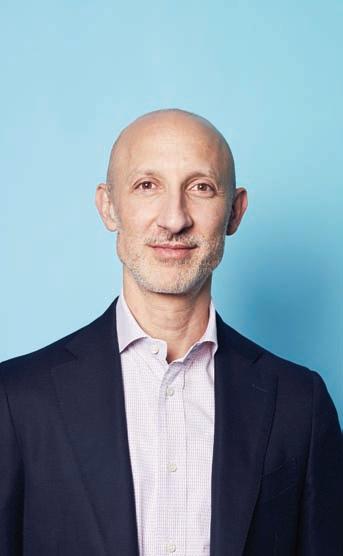
Having cut his teeth as a gaming-focused mergers-and-acquisitions banker for Rothschild, Greenblatt learned early on in his career “what motivates professionals and how decision-making works in business,” which, as he’s moved up the corporate ladder, has “become incredibly important, when you consider things like stakeholder management, asset allocation, setting strategy,” and everything else that C-level duties entail.
Not only that, but the years he spent analyzing the industry from an outside perspective have proved invaluable during his time at BetMGM, because it’s always beneficial to “have history and context of the industry and the journeys of the more mature markets.” This knowledge then allows the company to “speed up decision-making and to avoid repeating some of the errors of the past.”
Despite the fact Greenblatt has only been at the helm since late 2018, it’s been a busy journey, one that “feels like those Star Trek scenes where the spaceship goes into hyperspeed and the stars
start flashing past.” He says that his first major test was “winning the acceptance and trust of MGM Resorts” and establishing himself “as a credible leader.”
BetMGM is a joint venture of MGM and London-based Entain Holdings—Greenblatt came from the international side, and naturally, it took a little time for everyone to coalesce, but he feels that “the relationships couldn’t be better today.” Employee feedback is a crucial part of the company’s outlook, and Greenblatt says the results from the most recent poll indicated that 93 percent of staff would recommend the company to others.
Expansion is a critical component for digital operators such as BetMGM, and that’s no simple task when it comes to compliance, as markets vary widely when it comes to iGaming and sports betting.
“What we appreciate very deeply at BetMGM is that gaming licenses are a privilege, not a right,” says Greenblatt. “And so we organize ourselves around a compliance-first mentality. We have to get it right. We want to do things by the book. And I think that’s very, very important to ensure sustainability of the business and the relevance, therefore, of BetMGM.”
With a recent launch in Ontario, the company now operates in 24 states and 25 jurisdictions, in over 20 different countries, but the process and dedication remains the same, “because every state is difficult and new,” Greenblatt says.
While its sports betting arm remains robust, BetMGM has also become “the far and away market leader in iGaming,” which has not expanded nearly as quickly in the U.S. as it has internationally. The reason for this, says Greenblatt, is “a more complex stakeholder environment,” and also an “outdated” fear that iGaming expansion “would spell the end” of the land-based industry. Greenblatt, who considers himself “a free marketeer,” is steadfast in his belief that “protectionism over time doesn’t sustain,” and only serves to drive bettors to unregulated markets, which then affects the industry as a whole.
As for 2023, the company is looking ahead to early sports betting launches in Ohio and Massachusetts, as well as a digital offering in Puerto Rico sometime during the course of the year. Additionally, Greenblatt is excited about the “unification of progressive jackpots” and the opportunity to “really bring omnichannel to life.”
“We’ve got some, very exciting, very cool cross-channel games and concepts coming through our iGaming business, things like dual-play where events that are taking place in MGM’s physical environment or broadcast and playable in a digital environment, only at BetMGM, interesting new concepts that create a degree of excitement and differentiation in both channels,” he says.
“Today, the biggest jackpots in online gaming in the U.S. are already available right now. What we want to do is connect it with progressive jackpots in MGM Resorts’ land-based world to create state lottery-sized jackpot potential, again, only available at BetMGM. And it’s enabled by the fact that MGM is the superpower that it is, and in the online gaming space, BetMGM is that too. That’s what we’re quite excited about.”
—Jess Marquez
Ronald Gordon, Vice President of Casino Operations, The Cosmopolitan of Las Vegas
When Ronald Gordon settled in Shreveport, Louisiana in the early ’90s following an eight-year military career, he had no idea what the future had in store. However, when casino gambling came to the state and operators started to come around looking for staff, he took the plunge and started a journey that, over the course of nearly 30 years, has taken him all over the country.
After spending six years at the three-story Harrah’s Casino riverboat in Shreveport, Gordon made his way to Greektown Casino-Hotel (now Hollywood Casino at Greektown) in Detroit, where he quickly learned an important lesson: “how to deal with the weather.”
Over the next 13 years, he rose through the ranks in casino operations, eventually leaving as senior director of table games. After a two-year stint with JACK Entertainment in Ohio, Gordon migrated to the mid-Atlantic, where he “helped to open up one of the premier properties in the entire region, at MGM National Harbor” in Oxon Hill, Maryland.
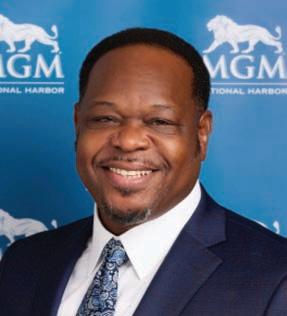
By early 2019, it was clear that Gordon had cemented himself as one of the premier gaming executives in the country, and he spent the subsequent three years as director of casino operations, a coveted position in any market. Thus, the only place left to go was the big leagues of the Las Vegas Strip, and in September, Gordon finally got the call he had prepared over 20 years for, when he came on board as vice president of casino operations for the Cosmopolitan of Las Vegas.
For Gordon, the chance to break into the gaming capital of the U.S. was one that came with a lot of excitement, but also a lot of gratitude and humility for all the lessons he’d learned from his regional stops.
“Las Vegas is everything that it’s built up to be,” says Gordon. “I believe that every step in my journey has prepared me for this moment. I go back to my starting in Louisiana and then going into Detroit. Detroit was a different type of market. National Harbor then set me up another step... And I think that that preparation is everything.
“And hey, I’m here. Glamour, glitz and lights. Vegas is everything that it’s built up to be—very, very exciting.”
Now that he has had some time to settle into the new role, his first goal for 2023 is to “engulf myself into the culture” and “build relationships,” because as he says, “the culture here (at the Cosmo), you can cut it with a knife. It’s so thick, it’s so solid. It’s real.”
And then of course, a little business never hurt, either.
“I’m looking at generating revenue,” he says. “What can we do to generate a little bit more revenue, to create a little more fun for our guests to come into this building? To make them want to come back. So that’s always in the forefront of my mind. And, then partner with my team here to make sure that happens.”
Given his experience in a large number of markets around the U.S., Gordon says the most important thing for those just starting out in gaming to remember is to “learn the intricacies of where you’re at and be the expert at your business.” Then, as you look towards the next opportunity, you can “take that to your next place and then give back to your team.”
—Jess Marquez
Running a tribal gaming organization comes with a lot of unique challenges—one of the biggest is governmental relations. Navigating through the morass of gaming compacts, state regulations and federal entities requires a diverse set of skills and experiences, perhaps even more so than that of commercial operators. Few people understand these intricacies better than Kevin Nephew, president and CEO of Seneca Gaming Corporation (SGC).
Prior to transitioning to SGC in 2014, Nephew spent over 20 years in high-level finance roles for the state of New York, which is where he developed a key mode of thinking, one that has stuck with him ever since: “How do you make things better, faster and smarter?” Throughout his time with the state, he worked in numerous financial capacities, including roles in the Office of Technology, Department of Tax and Finance and the Division of the Budget.
These experiences allowed Nephew to “learn a lot about governmental workings,” and he proudly contributed to “initiatives where we were able to save millions of dollars for New York state.” Working in government also allowed him to “become a student of leadership,” and to see what kind of impact decisions can have on all parts of an organization.
Before he was named president and CEO of SGC in October 2020, he served as vice president of organization improvement & development, where he developed a continuous improvement program that has since become a pillar of the organization, with over 1,000 employees having studied under it.
In addition to the skills and knowledge the program provides, it has, according to Nephew, saved the company “over $1 million in efficiencies” since it was implemented.
“I’ve come to realize there’s no true black-and-white definition of leadership,” says Nephew. “When we went through continuous improvement, I realized that while it really looked at the processes of making better, faster, smarter, it develops leaders and leadership within your organization. One of the beliefs we have culturally is that within an organization and within a society, everyone is the same height.”
As an enrolled member of the Seneca Nation’s Wolf Clan, Nephew has the unique honor of being the first Seneca Nation member to lead the tribe’s gaming arm, which is an opportunity he doesn’t take for granted. Even though he built a successful career with the state, there came a time—one fateful morning, in fact—where he “woke up and said, ‘you know, I really need to come back and I really need to give back to my people.’” That said, he certainly didn’t expect to be in such an influential position just a few years later, but he attributes that meteoric success to “great teachers and great mentors” throughout the organization.
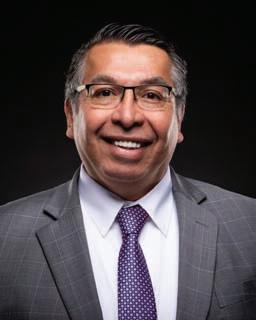
In 2023, SGC will look to keep pace in a New York gaming landscape that is constantly evolving and expanding. Instead of only looking outward, however, Nephew maintains that it’s equally important that the company continues to “look internally to make sure we’re making our investments into our processes,” whether it be in gaming, hospitality or “the guest experience itself overall.”
Nephew says another one of his biggest priorities is to ensure that SGC invests in cutting-edge technology, namely cybersecurity systems, so that “we make sure that our IT infrastructure remains safe” next year and beyond.
“As we go into ’23, it’s about developing our leaders, developing the leadership, but that goes beyond just the center of people,” he says. “It’s all 3,000 of our team members… We also are looking towards more community involvement. It’s interesting, as a corporate structure, we focus on our gaming, but we also realize we have an investment in Western New York. The Seneca people have always been part of Western New York. We’ll always be part of Western New York.”
—Jess Marquez

When David Horn decided to take a front desk position at Palace Station in 1994, it’s hard to imagine that he knew just how big of an impact that decision would have on his life moving forward. He would go on to become general manager of the property, and now, he’s primed to take the reins as vice president and general manager for Station’s latest project, Durango Casino and Resort.
In his 20-plus years with the company, Horn has worked in nearly every facet of casino operations, from guest services to shift management and even executivelevel game analysis. At this stage in his career, he looks back fondly on where the journey has taken him.
“My journey with Station Casinos has been nothing short of amazing,” says Horn. “Having started when I was 23, I have literally grown up with this company. When I reflect back on my journey in the company it gives me great perspective. I have had the unique opportunity to work in so many different roles, which gives me the perspective of our front-line team
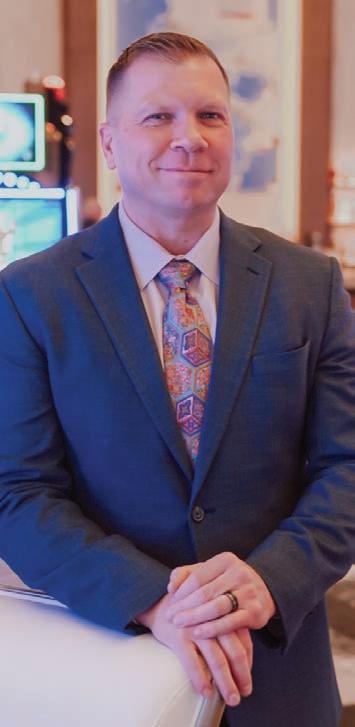
members all the way up to the executive level. I’m thankful for the institutional knowledge that comes with the years spent in our company, and along with that comes a sound knowledge of our customer base as well.”
Unlike most gaming executives, however, Horn is somewhat unique in that he is a passionate table game expert, having spent over five years as Station’s corporate vice president of table games. In today’s industry, tables don’t get a lot of love when compared to slots and sports betting, but Horn maintains that “above all, guests are still attracted to the mystique and draw of playing a table with a friendly dealer smiling on the other side of the table.”
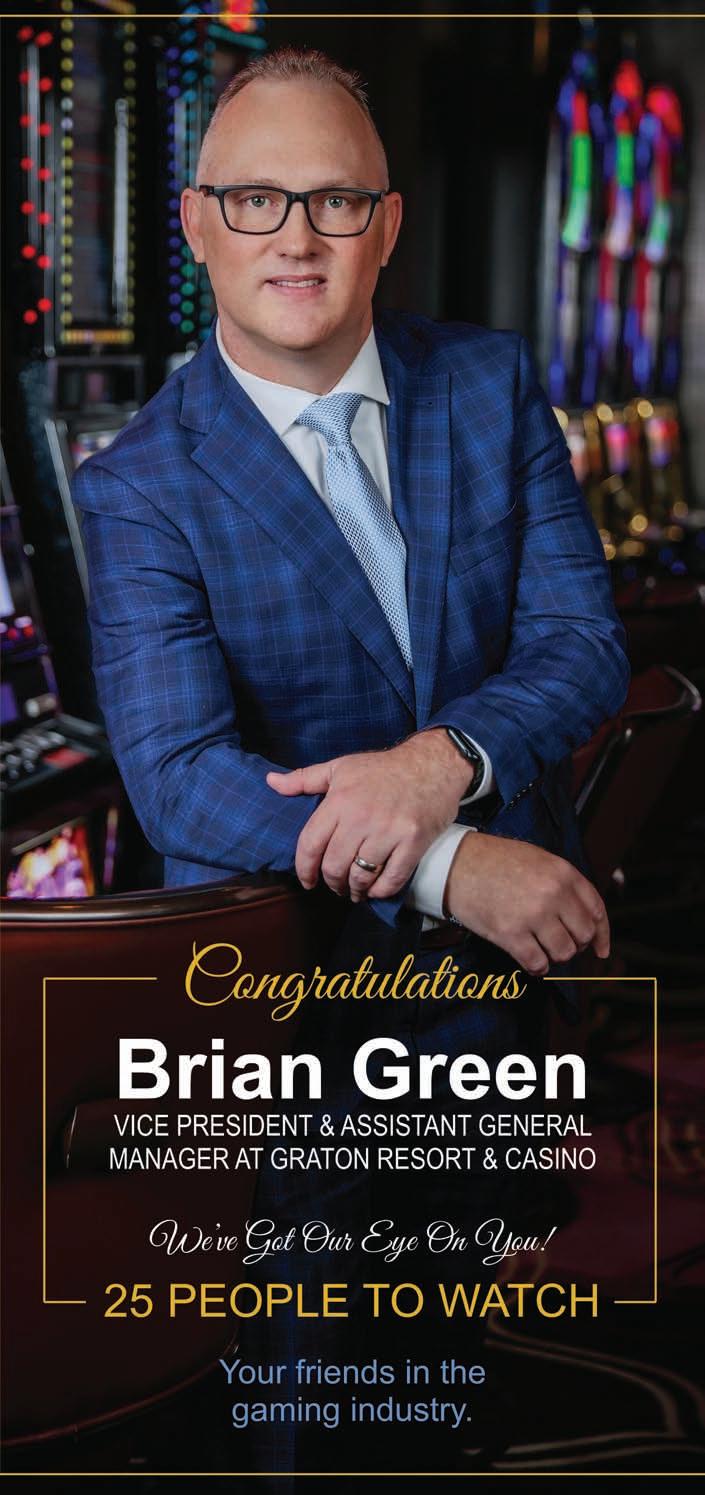
Not only that, but he feels that the “introduction of electronic table games and so many new innovations in the space” has allowed tables to stay “as relevant as ever” in an industry whose technology is evolving at warp speed.
Of all the operators that Horn could have chosen to build his career with, Station stands out from the crowd with its unique process of buying and selling land as well as its total dominance of the locals market in Las Vegas.
By now, Horn says, Station has become “embedded into the fabric of the (Las Vegas) community,” and its longtime patrons continue to come back again and again “because of the relationship they have built with our team members,” which represents a “unique bond that helps to provide a level of personalized service and experience.”
In 2023 and beyond, Horn will need to rely on that experience and that passion to help guide Station’s opening of Durango Casino and Resort, a highly anticipated development slated to open sometime in the second half of the year in the southwest part of town, off the 215 Beltway and Durango Drive. The preparation is stressful, but if anyone has the expertise needed to debut a new property, it’s Horn and the rest of the Station team.
“As I’m sure you can imagine, opening a new property is a tremendous undertaking, but we have a solid team coming together to make Durango something truly unique in the (Las Vegas) Valley that we know locals and visitors from out of town are going to love,” he says. “During pre-opening, I’m focused on all our new partners, procurement, timelines and of course building an amazing team, creating a property culture and introducing the next great brand to Las Vegas. After we open, I will probably take a minute to breathe, and then continue to do what we do, which is to ensure that we are delivering on an exceptional level for our guests and team members.”
—Jess Marquez
A


fter working in the casino advertising field for most of her career, Stephanie Goodman should have known a little more about responsible gaming. But she didn’t.
“Shame on me,” she says. “I used to think the solution was easy. Just don’t go to a casino. But I was ignorant.”
So when she was appointed the executive director of the Problem Gambling Center, it was time to get an education on problem gambling.
“I’ve learned so much. I realize that this is a legitimate DSM-5 addiction,” she says. “It lives in the same part of the brain as drugs and alcohol. And then I see our clients, working with these amazing people and our counselors, and the passion they have to solve this problem. It’s really incredible to be a part of this. So my background in gaming advertising definitely opens up some unique doors in that I’m able to talk to the industry because I used to be industry. I love that aspect.”
Her previous job also gave her a leg up. “Before that, I worked as the chief of staff for our mayor Oscar Goodman in Las Vegas. That was just an incredible position. Talk about cutting your teeth with one of the smartest and toughest guys I think that’s ever been.”
The center was rebranded to honor Doctor Robert Hunter after his unfortunate death in 2018.
“Dr. Hunter is a legend,” says Goodman. “What he did for problem gambling and all of the inroads he made in this state to really show the best practices is amazing. He worked with the pioneers who were able to identify gambling as a true DSM-5 addiction. So he did so much incredible work.”
The center doesn’t need to advertise for clients; they get there via word of mouth and it’s usually their last chance. They are immediately placed into a program designed to get to the root of the problem.
“The program is a mixture of cognitive behavioral therapy, group therapy, and then teaching our clients about the science of the brain so that they understand this isn’t just them. We tell them they are not weak. This is a biological disorder within their brain.
“We have an intensive outpatient program. We see individuals one-on-one. We try to make it work for the client. We just want to get them in here, because once they get in here, we’ll figure out a way to get them the help they need.”
While she admires Gamblers Anonymous (GA) and other groups that offer help, she says the center tries to drill down and get the individual to realize that they can change.
“Our program really is rewiring your brain and using that cognitive behavioral therapy to really start getting you to think differently about how you react. Typically, you have a thought and then there’s an action. Well, we’ll make you think about seven more things before you make that action so that you can stop yourself from getting there. So I feel like our program is vital to get you to that space where you can be in recovery. And then GA is such a great way to continue on so that you have that support moving forward.
“You are committed. It’s a six-week commitment, and you are really committed when you walk out of here. It’s amazing the metamorphosis that takes place with our clients from day one to the end of week six. It is a literal day-and-night experience if the person is ready for this change.”
—Roger Gros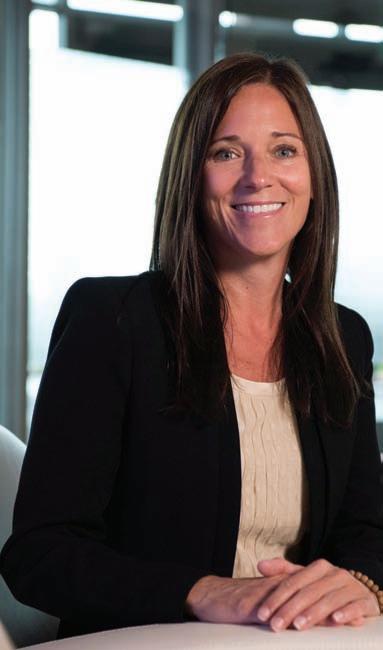
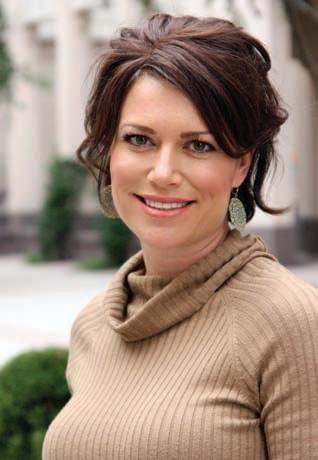
Rachel Barber has lived her favorite life lesson.
Long before she’d become head of technology for the gaming division of IGT, a position she’s held since 2015, Barber embarked on a unique path.
“Over 25 years ago, a mentor shared a quote with me from Guy Kawasaki, and he said, ‘Challenge the known and embrace the unknown,’” she recalls. “I have lived by this rule for my entire career, and it has given me the courage to step out of my comfort zone and take chances. I believe that my confidence in taking risks has paved the way for success.”
The fearless philosophy took the Portsmouth, Rhode Island native to the latest stop in this journey, the awards realm. Barber has climbed the ladder of quality industry professionals facing and conquering all the technology challenges that lay in her path.
In her latest challenge, IGT will continue its cashless rollout in 2023, among other objectives.
“We believe that we have the strongest cashless gaming offering in the market, and we look forward to providing this exciting innovation to more and more casino customers who continue to express substantial interest,” Barber asserts. “For example, recently, IGT
agreed to a multi-year partnership with Station Casinos to supply our Resort Wallet and IGTPay cashless gaming solutions to Station’s six primary Las Vegas properties.
“We look forward to building more partnerships like this in the future. I am also very passionate about deploying more cloud-based solutions and identifying unique solutions that leverage artificial intelligence and machine learning to provide meaningful insights and opportunities for players and operators.”
At IGT, Barber leads a global team focused on strategic initiatives related to technology, product innovation and R&D. In any given year, the team manages several hundred projects that span across application modernization, new hardware deployments like the award-winning PeakBarTop with sports bet-
ting, and new systems products such as FloorNet and AVENTO.
Barber considers leading the company’s technology experts and engineers one of her highest achievements. The group has enabled IGT to make tremendous strides in cashless gaming, including the award-winning Resort Wallet, a part of IGT’s Advantage casino management solutions portfolio.
“IGT has advanced innovation across our entire product and solutions line, and we were able to share that with customers from all over the world at G2E,” she says. “For example, our flagship cashless wagering solution, Resort Wallet, can be complemented with the IGTPay module to enable external account funding from a range of sources, such as bank and credit accounts. This is a meaningful advancement, as it propels the player experience and creates operational efficiencies for our customers.”
Barber believes that the player and casino operator interest in cashless, as well as the ability to advance the player experience by leveraging big data, are exciting new trends in the gaming industry.
She will be happy to embrace it, as a team-driven leader, just like her mentor suggested.
EastGeneral Manager, Rivers Casino Philadelphia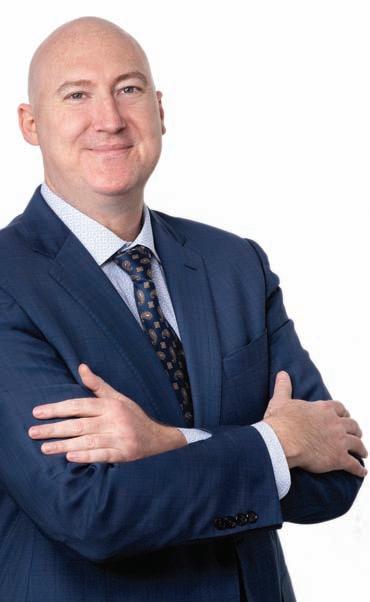
ears ago, when Justin Moore was working as a server in a small Mexican restaurant in St. George, Utah, he started to think that maybe he’d have more luck—and more tips— across the border in Nevada. Shortly after coming to a casino coffee shop in Mesquite, he quickly realized he’d made the right decision, and from there it was off to Las Vegas. Nearly 20 years later, Moore is now the general manager at Rivers Casino Philadelphia, and his passion for hospitality remains stronger than ever.
Moore first broke into the industry with Station Casinos on the food and beverage side, spending eight years as beverage director for Boulder Station before moving into casino operations, which, as he says, was “a pivotal moment in my life and career.”
After progressing through three separate executive-level slot roles for Station, where he was responsible for overseeing more than 1,500 machines, Moore was named vice president and assistant general manager at Green Valley Ranch in 2014, where he got a sense of what it’s like to manage a complex property.
After three years in Henderson, he did something that runs opposite to most gaming executives—he left Las Vegas and headed east to join Rush Street Gaming in 2017. The move was “driven by our family decision to be closer to our relatives in Massachusetts,” but it also opened up new markets and new experiences for Moore, first in New York as general manager of Rivers Casino & Resort Schenectady and eventually to Philadelphia in April of last year.
Despite the changes in scenery, he’s come to learn that the same principles for success apply to all markets, big or small.
“I’ve come to realize that no matter what market I’m working in, guests in local or regional markets all want the same thing: a great entertainment destination that offers value, fun, and a great guest service experience,” Moore says. “I’ve noticed subtle differences each market demands and prefers. In upstate New York, guests really value community outdoor events. Philly loves great jazz concerts and swag. Las Vegas locals will never miss the chance to take advantage of a good point multiplier.”
Since taking the reins at Rivers Philadelphia, Moore and his team have “placed a strong emphasis on entertainment, fantastic weekend promotions and an enhanced rewards program.” The casino’s marketing program has been his “No. 1 focus” since coming on board, as he looks to provide “exciting entertainment that will drive new guests to our property.”
With regards to the casino itself, they’ve also “added great new games, completed several changes to the gaming floor, and remodeled our high-limit room.” Moore is excited to bring a new Interblock Pulse Arena to the floor in 2023, which will make Rivers the first property in the state to feature the product.
For 2023, improved amenities will also be a big focus for Rivers Philadelphia, as the property will unveil three new restaurants. The highlight, according to Moore, “will be Martorano’s Prime, an American-Italian steakhouse concept by celebrity cook and South Philly native Steve Martorano.” A new pizza restaurant and a Dunkin’ Donuts coffee shop are also slated to debut sometime during the year. —Jess Marquez
—Dave Bontempo
“Over 25 years ago, a mentor shared a quote with me from Guy Kawasaki, and he said, ‘Challenge the known and embrace the unknown,’ I have lived by this rule for my entire career, and it has given me the courage to step out of my comfort zone and take chances. I believe that my confidence in taking risks has paved the way for success.”
dition and organizational skills go hand in hand with quality of life and entrepreneurial inspiration.”
The ability of Casinos Austria AG to fulfil its growth dreams had already been given a massive boost in 2020 when European lottery giant Sazka Group, which was later renamed Allwyn, bought the 17.19 percent stake in the firm previously held by Novomatic AG. This deal took the Prague-headquartered enterprise’s aggregate interest in the casino operator to north of 55 percent with the state-run Osterreichische Beteiligungs AG (OBAG) sovereign wealth fund maintaining its own 33 percent investment.


Erwin van Lambaart was named as the new chief executive officer for global casino operator Casinos Austria AG in April 2022 following some six years as the head of Dutch counterpart Holland Casino. The 59year-old took over from long-serving predecessor Bettina Glatz-Kremsner, and is now responsible for leading a company that runs 36 casinos in 10 nations, a large network of WINWIN-branded video lottery parlors, the win2day iGaming firm and lottery provider Austrian Lotteries.
Following his appointment, the father of two adult sons relocated from his native Netherlands to Vienna to begin overseeing an organization that was continuing to recover from the devastating impacts of the coronavirus pandemic. His immediate goal was to continue the steady implementation of “a reorganization concept” that had been earlier designed to increase efficiencies and further improve an annual consolidated net profit that sequentially swelled by more than 4,000 percent last year to top $138 million.
The seasoned professional proclaimed that this new path will additionally assist Casinos Austria AG in establishing the “basis for a successful future” while allowing it to become “more focused on the entertainment value and the experiences of our guests and customers.” Van Lambaart asserts that he is also looking forward to his employer’s launch next year of a refreshed responsible gaming program that will look to protect players “even further” and give it “many more opportunities to be even more innovative and guest-centric.”
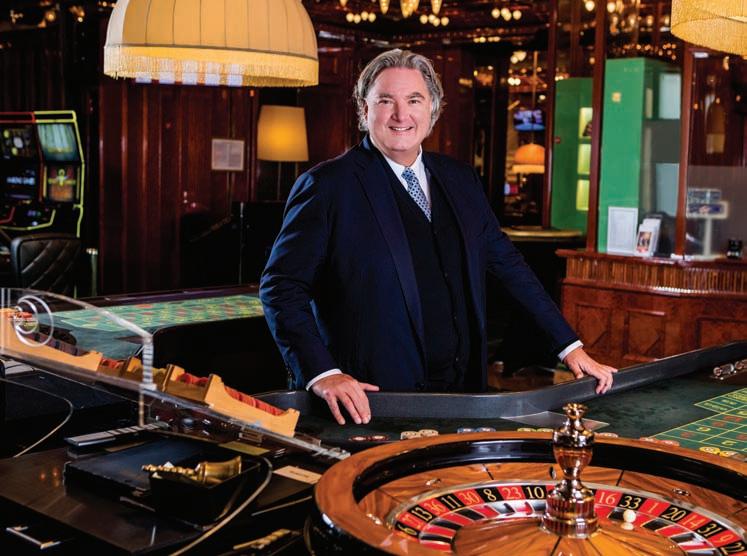
“Casinos Austria AG has a very strong worldwide reputation as a leader in responsible gaming, and a gambling company offering a wide range of high-quality products across a portfolio encompassing lotteries, online, casinos, sports betting and video lottery terminals in Austria, and an additional 24 casinos and video lottery terminal operations in nine different countries outside of Austria,” he says. “I have always liked working internationally, and Austria is a beautiful country in the heart of Europe where tra-
Van Lambaart describes his company’s latest majority shareholder as “a leading European company” that cooperates in sharing “best practices between countries when applicable” as part of an effort “to try to make each other better.”
The veteran figure, who additionally worked in the international entertainment industry for 14 years via stints with firms including Endemol, Stage Entertainment International and Niehe Media, also pronounced that the new ownership structure of Casinos Austria AG is “excellent” because it involves “a very dynamic and private majority owner” working in cooperation with the state via OBAG to engender “a higher degree of long-term stability and doing what is good for Austria.
“By Austrian law, the board for Casinos Austria AG must be independent, and it needs to do what is best for the company and for all the stakeholders, including the shareholders,” he says. “We all now work for the same goal—creating a strong, stable and successful Casinos Austria AG.”
Things could soon get even better for Casinos Austria AG after the firm’s Casinos Austria International subsidiary was named as the preferred operating partner for the $3.5 billion casino resort Nagasaki Prefecture is looking to build at the Huis Ten Bosch theme park near the community of Sasebo in Japan. This project is well on its way to becoming a reality, and is now awaiting approval from a panel of federal selectors.
Regarding this envisioned venue, van Lambaart describes the selection of Casinos Austria International as an honor that could result in Nagasaki Prefecture hosting Japan’s inaugural Las Vegas-style casino resort as soon as 2027. He furthermore asserts that this project is to be joined over the coming months and years by a raft of “new developments and innovations” encompassing more online investments, the launch of advanced products, an acceleration of digitalization and the further development of management and talent.
“The background to this is our excellent reputation, which we enjoy worldwide, but the processes in Japan are very complex, lengthy and not yet complete,” he says. “It really is a long-term plan with many steps and processes to follow. It is the philosophy of Casinos Austria AG to always give the best, and we will do that in Japan, too.”
—Alan Campbell

 By Jess Marquez
By Jess Marquez
For years, artificial intelligence (AI) was a nebulous concept, a far-off vision that typically carried negative connotations. The idea that intelligence could be formed outside the boundaries of the human mind was often met with skepticism and condescension, and often portrayed in its worst contexts, such as robots with Gatling gun arms and computers hell-bent on overtaking their physical counterparts.
And yet, slowly but surely, it’s become ubiquitous. As a society, it’s how we make informed decisions and solve difficult problems, whether it be in government, in retail, or now, in gaming, thanks to the innovation brought forth by the increasing number of AI-centric companies and specialists.
Every aspect of day-to-day operations, including casino floor layout, oddsmaking, payment systems and processing, loyalty and rewards and guest booking services have been transformed with the help of AI, and so long as operators continue to see improvements year-over-year, those in and around the gaming industry can expect AI to continue its ongoing revolution, one that has been largely quiet but consistent.
“What I’m seeing is people are adopting a level of artificial intelligence without really saying, ‘I’m getting into AI, I’m going to implement AI,’ yet they’re using the benefits of AI. Like computer vision, person identification, bad guy identification... It’s just a ubiquitous part of so many technology platforms.”
—Andrew Cardno, Co-founder and Chief Technology Officer, Quick Custom Intelligence (QCI)
For operators, digital offerings such as iGaming and mobile sports betting are new and exciting, but for the most part, they are already built and designed to seamlessly integrate with AI systems. The impact analytics has had on the land-based industry, by contrast, represents a more impressive showing of its true abilities.

Quick Custom Intelligence (QCI) has long been at the forefront of this evolution, helping casinos to transform their player data from numbers on a screen to real-world actions and solutions. Co-founder and Chief Technology Officer Andrew Cardno has seen the evolution of AI firsthand over the past 30 years, and by now, the technology has become so commonplace that it’s nearly impossible to avoid.
“What I’m seeing is people are adopting a level of artificial intelligence without really saying, ‘I’m getting into AI, I’m going to implement AI,’ yet they’re using the benefits of AI,” Cardno says. “Like computer vision, person identification, bad guy identification... It’s just a ubiquitous part of so many technology platforms. So, what we like to do is produce things that just distill down really, really hard questions into numbers that can be consumed or analysis that can be consumed.”
Platforms such as QCI emphasize the importance of connecting the right players to the right products, which is a classic example of a hard problem that AI can help solve, or at least improve over time. Whether it’s slots, table games or sportsbooks, Cardno maintains that operators should find ways to “optimize their products in such a way that the customers find the products they want and the layout they want, where they expect them.” By tracking and analyzing the player data as it comes in, this process becomes less daunting and more creative.
Sometimes casinos can feel like unicorns, com-

pletely separate from other, more traditional businesses, but they still rely on basic sales principles. When a customer buys products on Amazon, for instance, it establishes a pattern that AI then decodes and accelerates. The same principles can then be applied to land-based gaming, which seemed impossible in the not-too-distant past.
By accepting these principles and adopting the proper systems to complement them, Cardno says, operators can then “understand, optimize and make decisions around (their) gaming offerings with four P’s, not three: price, product, place, promotion.”
Commercial industries understood these concepts years ago, but as with most trends, gaming companies have been reluctant to fully embrace AI for a number of reasons. Two of the biggest are smaller sample sizes and bigger stakes; the brick-and-mortar casino industry has never been “broken” per se,
so why would operators risk large amounts of capital investing in systems they don’t fully understand?
Similarly, these technologies thrive when they are absolutely saturated and overflowing with data, and most casinos can’t supply that level of input. Thus, it’s taken a lot of arm-pulling and look-sees for gaming-focused AI companies to get to where they are now—in other words, they’ve had to show their work.
“Everything in gaming seems like it takes 10 years or 15 years longer than it does in other industries, because there’s this inherent sense of ‘I already have something that I know works pretty well,’” says David Patent, CEO of the data curation platform VizExplorer. “We started selling a slot
recommendation engine about a year and a half ago. There was a lot of interest in it, but there was a big hesitation because people still wanted to know, ‘How do I know that this is actually right?’ And it was only when we were able to introduce a reporting tool where you could look side-by-side, you can see, ‘Here are the recommendations, and by the way, here are the numbers on paper that will help back it up.’”
The lack of data points relative to analytical behemoths like Starbucks and Netflix can make gaming AI systems seems sluggish and infantile, but Patent is confident that advancements in technology for the land-based sector, namely “real-time bonusing on machines,” can help build up a “real-time data feed that you can harness and start doing interventions very quickly.” From an operator’s perspective, the quicker you can accumulate and analyze your player information, the easier it is to accept the investment needed to implement AI technology.
Even though adoption has been slow, the impact has been sizable, because once operators make the commitment to trust what the technology is telling them, it’s nearly impossible to rely on old-time tactics again. And, in many ways, it’s not the technology that’s informing those decisions; rather, it’s the data from what their players are telling them, and players will always be the key component to any land-based outfit.

So, if players are still the most important factor in the success of AI systems in gaming, it makes sense that they would emphasize loyalty and rewards programs. After all, attracting new players will always be difficult, but convincing them to stay should not be.
As Patent explains, loyalty programs are “definitely seeing much more sophistication, segmentation that’s looking at behaviors as opposed to just demographics.” The advent of things like “omnichannel marketing and offers that are redeemed from your smartphone” have reduced a lot of friction and led to “a lot more customer-friendly offers that are loaded onto your card,” which represents a “boost in technology with huge, huge potential.”
Earle G. Hall, CEO of Axes.ai, is bullish on all applications of AI in gaming, but marketing and rewards is where he truly sees beautiful growth potential.
“Rewards and promotions are supposed to cost us nothing,” says Hall. “They’re part of the overall gross gaming revenue. AI’s job is to learn who

Even though adoption has been slow, the impact has been sizable, because once operators make the commitment to trust what the technology is telling them, it’s nearly impossible to rely on old-time tactics again. And, in many ways, it’s not the technology that’s informing those decisions; rather, it’s the data from what their players are telling them, and players will always be the key component to any land-based outfit.
“The easier you make it for customers to consume your product, the more they’re going to consume, and that’s just the truth.”
—David Patent, CEO, VizExplorer
the customer is better and faster than any human can. Once you learn who the person is from their past behavior, the math, the AI, the mathematical algorithm, its job is to predict the natural and normal behavior for the future, so that we can influence. And what is the tool of excellence for influencing the future? It’s loyalty rewards.”
When optimized to their full potential, advanced AI systems can evolve to the point where they understand the customer base so well that they seem almost omniscient, capable of charting the future with alarming accuracy. Hall says that once operators understand the benefit of harnessing this power, they can then “use a loyalty rewards program to influence it so the customer is more satisfied and the casino is more profitable.” When you expand those abilities across multiple properties, states and jurisdictions, the influence only becomes stronger, and smarter.
Operators big and small are plagued by three questions, according to Hall: “How do I get (players) in, how do I get them to stay longer and please tell me why they left.” If managed and tracked properly, effective loyalty systems powered by AI can help address all three and store data for each, which then contributes to better targeted campaigns and ultimately, more effective conversion rates.
It’s loyalty rewards.” —Earle G. Hall, CEO, Axes.ai
Of course, this is old news in other industries, but casinos have inherent challenges that create roadblocks for the widespread adoption of such technologies, such as cash, ATMs and in-person sign-ups and redemption. However, technology involving AI has proven to be extremely effective in alleviating these pressure points, for both businesses and consumers.
“The easier you make it for customers to consume your product, the more they’re going to consume, and that’s just the truth,” says Patent. “Look at fast food restaurants, right? It’s all about reducing friction, so that you don’t have to go through these hoops. I’d have to get it from the game, pull out my card, put it in, hope that I remember my PIN and that the machine isn’t out of bills and that I didn’t already withdraw today, because when I go through an ATM it limits me to $500 a day or whatever. There’s all these hurdles. Even if you do try to make that decision, it’s just on your phone and you don’t have to leave, and you can just move it. Why wouldn’t you do that?”
If brick-and-mortar represents the current iteration of AI capabilities, then surely the future is online, decentralized and cloud-based. Operators have long salivated over the prospects of widespread iGaming and
mobile sports betting possibilities, and that is where data systems can truly experience exponential growth. In a land-based system, it often takes physical action to build up those coveted data points: a player needs to go to the property in question and sit down at a slot or place a sports bet for the systems to build up enough information to work properly.
Conversely, Hall points out that “in the online world and in the (mobile) sports betting world, there is nothing holding AI back,” due to the accessibility and convenience of online-based offerings—the sheer number of transactions taking place has thus paved the way for AI to become “the dominant technology factor and influencer in the speed of growth” of the two markets, and if companies want to keep pace with the field, they must make “the quantum leap to big data and cloud.”

For Patent, the marriage between AI and iGaming specifically represents a potential hotbed for innovation, because “that’s where it makes the most sense.” The fact that players can “spin the wheel or get a hand of blackjack every few seconds” means the data stream can be built at warp speed, bringing the gaming industry squarely into the 21st century of AI technology.
All of that being said, however, the brainpower behind AI systems is world-class, expensive and hard to find. As one can probably imagine, topnotch data scientists are a hot commodity for businesses of all kinds, and gaming may not necessarily be their first choice. Because of this limited supply, operators will find it difficult, if not impossible to do it in-house, especially if they don’t have the wherewithal to put the right people in the right places.
Instead, the proven skills and expertise of teams like QCI, VizExplorer and Axes will be in high demand in the years to come, as more companies turn toward AI solutions for their biggest and most complex obstacles.
“I think we’re going to see AI just become an integral part of everything, because it’s how we’re doing computers today,” Cardno says. “It’s how we’re doing computer chips today. It’s how we’re solving hard problems today. It’s how the human interface works today. It is an integral part. So, already, it’s busy happening, and it will just be quiet. I think it’s going to be the quiet AI revolution in gaming rather than, ‘Oh, I’ve implemented my own AI team,’ because that’s not going to happen. It would be very hard for a gaming operation to be competitive and recruit the talent to build an AI product for themselves and then maintain it. That level of talent pretty much picks the jobs today.”
“AI’s job is to learn who the customer is better and faster than any human can. Once you learn who the person is from their past behavior, the math, the AI, the mathematical algorithm, its job is to predict the natural and normal behavior for the future, so that we can influence. And what is the tool of excellence for influencing the future?

























In 2021, Americans wagered $53 billion at casinos and sportsbooks, beating the 2019 record by 21 percent and setting a new benchmark for what is now an almost-nationwide gaming industry. Come Super Bowl Sunday, U.S. sports fans could bet a whopping $7.61 billion on a single game.
Win or lose, for most people, betting is a fun, harmless diversion. Sometimes it will leave them lighter in the wallet, but the loss is momentary, without lasting impact.
Then there’s a small percentage of the population for whom gambling is chronic, an irresistible compulsion with potentially disastrous effects on finances, family relationships and employment.
If those gamblers choose to quit, they can find help in support groups, therapy, and in some cases, inpatient rehab. The website of the National Institutes of Health says the most successful therapeutic protocols are cognitive-behavioral therapy (CBT) and “motivational interviewing,” a goal-directed therapy to get past the denial that keeps gamblers stuck in their behavior.

“Very few of us went from zero to 100 miles an hour in our addictive disorders,” says Ted Hartwell, consultant to the Nevada Council on Problem Gambling, and a recovering gambling addict. “We ‘practiced’ in a sense over time, developing rationalizations around those behaviors. Those things can be unlearned through talk therapy and CBT.”
While the methods have helped untold numbers of gamblers, including Hartwell, they don’t work for everyone, and they don’t reach the vast majority of problem gamblers who, for various reasons, never seek help at all. So research scientists are working to find new treatments to help more people —and new ways to put those solutions within easy reach.
Because the federal government currently doesn’t fund research into gambling disorders, the emphasis has been on treatments for depression and anxiety, which often co-occur in problem gamblers.
Take naltrexone. Originally prescribed to treat alcohol abuse and then drug abuse, the narcotic agonist has shown promise as an off-label treatment for compulsive overeaters and compulsive gamblers. It works by blocking the
“positive” effects of these substances and behaviors, in effect removing the kick or high a user gets when indulging.
“The same reward system is at work, so things that seem to work for alcohol and drugs might work for gambling,” says Christine Reilly, research director at the International Center for Responsible Gaming (ICRG), which funded the original research into naltrexone. “An estimated 75 percent of people with gambling disorder have preexisting conditions like anxiety, depression or substance use, so it’s very difficult to attack the gambling problem unless you deal with the comorbid disorder.”
Another medication that could help: ketamine, approved in 2019 by the federal Food and Drug Administration (FDA). The antidepressant is fast-acting and relieves symptoms in hours instead of weeks or longer.
“If you have to wait six weeks for an antidepressant to start working, that’s too long,” says Reilly. “We’re very concerned about people who are at risk for suicide, and have to move more quickly for people who may be in crisis.”
Ketamine’s long-term efficacy is still unknown, which raises the questions: “If people need to keep going back, how expensive will it be? Will insurers pay for it? We don’t know,” says Reilly. “But if it shows promise for depression, anxiety and other addictions, some scientists will be coming to us for money to test some of these things. And we’re totally open to any innovative approach to treatment.”
Likewise, psilocybin, with active ingredients from “magic mushrooms,” is being studied as a possible treatment for depression, drug abuse and post-traumatic stress disorder, and also could help people with gambling disorder.
“We do have medications that reduce some of the urges and intensity of the cravings” associated with gambling disorder, says Timothy Fong, MD, associate clinical professor of psychiatry at the University of California, Los Angeles. “We’re constantly looking at things that could make a difference.
“The real question is, why don’t we try these things out? Well, clinical trials are expensive and time-consuming, and we just don’t have the research support infrastructure (for gambling disorder) that we have for other diseases. That doesn’t mean there aren’t new treatments that could work. It means we haven’t been able to prove they work.”
People who use psilocybin, for example, “don’t feel the need, the urge, the itch to escape through drugs or addiction,” reports Fong, who’s studied gambling disorder for 20 years. “They don’t get triggered to the point where they’re constantly thinking about gambling. They can tolerate stress better, and don’t automatically seek gambling as a way of soothing themselves.”
There’s a hitch. At the federal level, psilocybin, like MDMA, LSD and heroin, is a Schedule I controlled substance. But like cannabis, which falls into the same category, its potential medical value may eventually get it to the marketplace, at least on the state level (only Oregon has decriminalized psilocybin mushrooms and legalized them for therapeutic use). For now, for most Americans, that solution is out of reach.
With no magic bullet for problem gambling, experts recommend a “cocktail” approach—a tailored mix of therapy, medication and peer support. Taken together, they may give gamblers a greater understanding of their condition and a level of symptom relief that gets them closer to recovery.
Hartwell agrees that the best longer-term outcomes are associated with a combination of treatments: CBT or motivational interviewing along with “some type of sustained maintenance program afterwards, like a 12-step or other recovery group therapy. The intensive outpatient program I went through has a weekly aftercare meeting that, 15 years-plus later, I occasionally check in with,” he says.
While researchers hunt for new treatments, Fong advocates making traditional methods more widely available online and via teletherapy, and training more therapists to detect the signs and symptoms of gambling disorder.
Online gambling increased during the pandemic, and so did the kind of services offered by Kindbridge Behavioral Health, which specializes in the virtual treatment of compulsive gambling. It can help many gamblers by removing the internal and external obstacles to treatment.
“Just the thought of getting out of bed, getting dressed, going to the doctor’s office, finding a parking space—sometimes it’s just too much” for someone likely grappling with depression as well as gambling addiction, says Reilly. “Whereas with telehealth, you just get to your computer, turn it on, and you do your session.”
“You can be anywhere in America and get an online therapist” through services like Kindbridge, agrees Fong. “You don’t have to get on a waiting list. You can access care much more quickly than even five years ago. Another thing we’re really looking at is how to build out digital apps and digital health products to help people manage their gambling.”
He points to Gamban, a software blocker that prevents people from accessing gambling websites on all their devices. “You may say, is that treatment
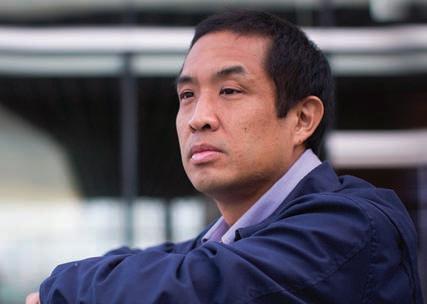
or just putting up a fence? But anything that lengthens the time before a person actually starts gambling is a good thing and could be considered a part of treatment.”
One day, he says, there may be apps, akin to fitness trackers and smartphone-compatible medical devices, that recognize when a person is feeling the urge to gamble and even notifies them if they’re getting too close to a physical casino. “We’re not there yet, but that’s where we’re headed.”
Peer support will always be an important part of that treatment cocktail. Gamblers Anonymous meetings, faith-based and otherwise, let sufferers see that recovery is possible, and that they’re not alone in their struggle. The online support group Gamblers, Family and Friends in Recovery (GFFR), which launched during the pandemic, offers 400 Zoom meetings a week, 24 hours a day.
Then there’s the concept of “sober companions,” which originated among the Hollywood elite and now is becoming more mainstream, if not widespread.
“These are men and women who actually help you execute your recovery plan,” says Fong. “I have a patient who’s struggling with a local casino. Every week she gets free play offers and enticements to go play. She can’t cancel her player’s card—she’s tried; it’s just too hard emotionally. So a recovery companion would actually go with her to the casino, set up a time to meet with a host and ensure that her account is shut down.”
Sober companions also support the client in replacing destructive habits with healthy ones: exercising, hobbies, learning new skills, “all the things that are part and parcel of recovery that often are really hard to do on your own,” says Fong. “It’s like a residential treatment program without walls.
“Addiction takes a village to recover from. These sober companions are kind of like that village, but it’s not something that insurance will pay for.” In addition, sober companions aren’t licensed or regulated.
A website called Your First Step to Change, part of the Cambridge Health Division on Addictions, funded in part by the ICRG, is an example of a “brief intervention.” By recognizing the ambivalence of gamblers who may not be fully committed to treatment, but are considering it, “maybe it can help more people,” says Reilly. “We need to do a better job of putting a lot of self-help interventions on the internet.”
According to the site, which offers tools in five languages, visitors can evaluate their addiction-related behavior and “develop change strategies, should they decide that change is the best course.”
One innovative approach is transcranial magnetic stimulation (TMS), also FDA-approved for treatment-resistant depression, and possibly indicated for gambling disorder too.
“We don’t have the research support infrastructure for gambling disorder that we have for other diseases. That doesn’t mean there aren’t new treatments that could work. It means we haven’t been able to prove they work.”
—Timothy Fong, MD, Associate Clinical Professor of Psychiatry, University of California, Los Angeles
During a series of up to 30 TMS sessions, an electromagnetic coil is placed against the patient’s scalp. The coil then painlessly delivers a magnetic pulse that stimulates parts of the brain that regulate mood. The patient is awake during the procedure, and the side effects (headaches, muscle tension) are typically minor and of short duration. The benefits are sometimes felt after just a few sessions.
According to the Mayo Clinic, many TMS patients “experience an increase in mood, energy and appetite, while also experiencing a reduction in anxiety. A reported 83 percent of people who undergo TMS experience improvements, and 62 percent achieve complete remission from their depression.”
“We do TMS for smoking cessation, cocaine addiction, things like that,” says Fong. “Because we view gambling disorder as an addictive disorder, it stands to reason that treatments that work for those conditions may also work for gambling.”
Perhaps the gold standard for unremitting depression is electroconvulsive therapy (ECT), once known as electroshock therapy. ECT has an unfortunate reputation; the term alone conjures images of unwilling patients strapped to gurneys, electrodes attached to their skulls like Frankenstein. Most people don’t willingly sign up for the treatment, despite its track record of success.
Meanwhile, it’s encouraging to Hartwell that an estimated 30 percent of people, “both in the substance realm and in the gambling realm,” find a way to recover on their own, without treatment or outside intervention.
“They have built-in resiliency factors or protective factors that allow them to do that. Beyond that, there’s a spectrum of individuals who may go to 12-step meetings and that’s all they need, and maybe they don’t do that forever. Some even choose to return to some type of controlled gambling.
“There’s evidence for a kind of fluidity, from at-risk and problem gambling back to controlled gambling. A lot of people see (gambling disorder) as this chronic and progressive illness for everyone, and that doesn’t seem to be the case.”
Hartwell chooses “to stay abstinent today. When I start to get a little bit intrigued or have what I call feelings of nostalgia for when I used to play poker, I see that as a warning sign. It’s enough for me not to take that risk.”
Of course, the tried-and-true modalities are as relevant as ever; it’s just a matter of making them available to those in need.
“By getting more therapists from different backgrounds up to speed and updated about what gambling addiction is and is not, that’s how we expand treatment options,” says Fong. “It’s not coming up with a new treatment style. It’s coming up with more ways to get gamblers into existing treatment styles.” When that happens, he says, “suddenly you have more client choice.
“It’s never going to be one thing, just a simple pill or like a 60minute thing you do with a therapist. It’s more about having options throughout the day and night to help combat whatever signs and symptoms of gambling show up, when they show up.”
And they show up regularly. In a recent Google search for 1-800GAMBLER, the website of the Council on Compulsive Gambling of New Jersey, the target site came in second to an ad for “New Jersey’s No. 1 online sportsbook: BetParx.”
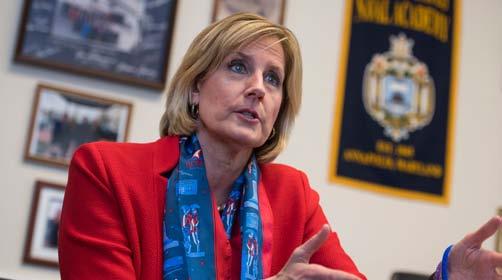
Though the federal government reaps some of the tax benefits from gambling, it currently offers no funding for research, treatment or public awareness about gambling disorder, compared to the billions it spends on substance use disorders, including dependence on alcohol, tobacco and drugs.
U.S. Rep. Claudia Tenney (R, New York) supports legislation that would change that. Through the proposed Gambling Addiction Recovery, Investment and Treatment Act (GRIT), the federal government would levy an excise tax of 0.25 percent on all money wagered on sports in the U.S., then set aside half. Seventy-five percent of the pot would go to states for gambling disorder prevention and treatment; the rest would be used for research.
According to the National Council on Problem Gambling, the funds would provide “vital support to state health agencies and nonprofits left on their own to address gambling problems,” and “allow investment in best practices and comprehensive research, which is only possible at the national level.”
However, reports say the bill makes casinos alone liable for the tax, excluding lotteries, sportsbooks or racetracks. If that’s the case, the legislation is a non-starter, says Alan Feldman, former casino executive and an expert on responsible gaming at the International Gaming Institute of the University of Nevada, Las Vegas.
“Problem gambling policy is a shared responsibility. To add an excise tax to just one segment of the industry is ridiculous, and not reflective of how and why problem gamblers are who they are,” says Feldman.
“There’s a common misperception among regulators—around the country, around the world—that without casinos, there is no problem gambling. But as a rule, problem gamblers tend to wager on three to four different kinds of gambling activities— parimutuels, the lottery, slot machines and table games. It’s a problem when it’s a problem.”
Feldman might support a bill that shares the tax burden among all gambling outlets. “The federal government is woefully behind on this topic. It should have been funding research years and years ago, because certain kinds of research can only happen with federal money.”
He adds that current research studies are based on too little data, which “won’t provide the level of accuracy and clarity” needed to draw solid conclusions about gambling disorder, its causes and potential treatments. “There are certain things you can do mathematically to validate the research, but the error rate in small studies is higher.”
A representative from Tenney’s office noted that the bill has not yet been introduced, is still in its “very early” stages, and is open to revision based on comments from stakeholders in and out of the gaming industry.
Meanwhile, recovering problem gambler Ted Hartwell supports legislation to make federal funding available to the scientific community. “As gambling becomes more accessible and at our fingertips, and our phones become our gambling devices, we need to be very proactive, both from a legislative standpoint and a public awareness standpoint, of the potential impact and collateral damage for those of us who experience problems in this area, and provide resources to address this public health issue.
“We need to get folks from across the aisle to make this successful.”

Andrea Arrigo kicked off her career as an analyst for an ad agency in Lisle, Illinois, and was promoted a year later to a senior analyst position. Her bachelor’s degree in business administration from the University of North Carolina at Wilmington afforded her a healthy variety of ways to advance in the business world, and after her venture in media and advertising, it was a job offer from a casino that pointed her towards a career in casino gaming.
Accepting the offer, she became a financial analyst at Harrah’s Joliet Casino & Hotel. This position then led to the change that would have the biggest impact to date on her career, her relocation to Las Vegas. She was offered two positions simultaneously in Las Vegas, and she accepted the more challenging of the two, predicting that a more difficult job would also bring less competition, allowing her to advance to a higher role after mastering her current one. Her prediction was right, and after absorbing every bit of new knowledge that she could during her first six months at Caesars Entertainment, she was promoted to a management position in less than a year’s time.
Arrigo transferred to various casino management positions in the course of her early gaming career and certainly found that managing people was not without its challenges. With a background in producing work product herself, she discovered that getting used to delegating work to team members instead of taking it on directly was an adjustment.
Even more difficult was accustoming herself to taking disciplinary action with team members, and she knew many a sleepless night in those formative years. But in time, she developed strong and direct communications with her team members in which clear expectations were set, finding that this practice made the process easier for both sides. Arrigo also worked on breaking the habit of pressuring herself to have answers to every question posed to her.
“Having all the answers is not always possi-
ble,” she says. “It’s better to instead focus on being prepared to find answers. Being resourceful is extremely valuable.”
Fortunate to form strong relationships with many of her direct managers and other senior managers throughout her career, Arrigo relied on them as mentors who she could call with career questions. She also sought mentorship from her peers at times, recognizing that their unique professional experiences and skill sets were something she could draw from.
Now as director of database marketing at Palms Casino Resort, she looks back fondly at the experience of opening this property, citing it as her most challenging and rewarding professional experience so far. The most compelling stage of this process for her was forming a team and watching them make contributions together to achieve common goals. Proud of her team’s achievements, she states, “I believe my team is a reflection of my leadership. When they succeed, I succeed.”
Arrigo offers sage advice for today’s young professionals looking to move up in the gaming industry. To her, leadership is all about people, so building strong relationships with team members, peers and leaders alike is crucial to success. She credits her leadership accomplishments to the fact that she understands both her team and what their roles entail.

To future leaders, she advises, “While moving up the corporate ladder quickly has many advantages, be sure to also take the time to learn as much as you can along the way. Be curious, ask questions, and be open to learning from those who have different experiences than you.” —Marie Casias is manager, marketing and administration for The Innovation Group.
When Dan Hannigan-Daley joined Draft Kings in 2015, the company had fewer than 200 employees and had yet to launch a U.S. sportsbook. When he left in 2021, over 3,000 people had joined the firm, overseeing sportsbooks in multiple states. Hannigan-Daley, internally known as “DHD,” was at the forefront of this expansion and the first person to work on sports betting at DraftKings full time, guiding sportsbook strategy, product, technology and marketing.

Asked about his proudest career accomplishment to date, he says, “Without a doubt, it would be the accomplishments during my time at DraftKings, particularly our launching of the DraftKings Sportsbook on August 1, 2018, being first to market in the newly opened New Jersey market and really signaling that DraftKings was going to be a market leader in this new space. It was a massive team effort and one I was grateful to have had a leadership role in.”
Raised in the Toronto area, Hannigan-Daley has always been a sports fanatic, both as a fan and as an athlete. He attained degrees in sports management from Brock University, where he played varsity soccer and Junior B Hockey, and in sports psychology from the University of East London, landing a job with BD Stadia, where he took bets and eventually ran stadium betting operations for several London-based clubs in the English Premier League.
Asked what traits offset his initial lack of experience, he says, “I think a really important factor, skill set or trait is simply the ability to work hard, go that extra mile, and more succinctly, caring and wanting to succeed. Without the care factor and desire to drive sports forward for myself, there is no chance I’d be where I am now.”
Now Hannigan-Daley is the CEO of Sports
Info Solutions (SIS), which collects, analyzes and distributes rich sporting data to help professional sports teams across the NFL, MLB and NBA make better decisions on and off the field of play. Since Hannigan-Daley’s entrance, SIS has expanded the scope of its data to include the sports betting ecosystem. Using this data, sports betting syndicates gain edges, odds providers sharpen their models, and sportsbooks acquire custom feeds to power their products. They’ve partnered with organizations like the Canadian Elite Basketball League, Northwoods Baseball League and others to help them enable wagering on their events, driving fan engagement and increased commercial opportunities.
Hannigan-Daley’s journey from bet-taker to CEO was aided by several important mentors.
“My parents are, of course, huge mentors of mine,” he says. “They were both entrepreneurs who worked together, and showed me the value of working hard, being flexible and having fun. I carry those traits and that belief with me every day. Career-wise, folks like John Lee from BD Sport, James and Greg from BCLC, or Geoff Scott at DraftKings were fantastic mentors I now consider to be great friends.”
As an emerging leader in the industry, Hannigan-Daley describes his approach to helping other young professionals achieve his level of success, saying, “I try to mirror a lot of what great leaders I’ve seen are able to do. Provide autonomy, but guidance. Give challenges, but also support. Be a good listener and understand that people’s goals and motivations are different.”
Hannigan-Daley is looking forward to the next 12 to 18 months of his career.
“For sure, the next evolution of Sports Info Solutions,” he says. “I’ve now been with the organization for 18 months and we’ve seen mass amounts of changes, and I believe are now really on the cusp for some major moves to occur, which excites me. We’ve got an incredible team and set of partners, and a general ambition that is really starting to take shape and will be wonderful to experience in the coming months as the foundational work pays off.”
—Jack Goodin, The Innovation Group

Growing up in Las Vegas, Brooke Fiumara did not think about gaming as a profession. Her goal during those formative years vacillated between the fashion world and performing arts.
Turns out Fiumara passed over both professions in favor of the gaming industry. “I have always been equal parts creative and analytical. Ultimately my career led me to my current role of getting to use both sides of my brain daily,” she says.
That current role is co-founder and co-CEO of data company OPTX.
While still a student at the University of Nevada, Las Vegas, Fiumara worked as a receptionist at a spa in a Station casino. With diploma in hand, she was able to seamlessly transfer to the marketing department, her first step in the industry.
“But what kept me in the business was the fact that marketing in casinos is unlike any other industry,” she says. “As a marketer in gaming, you are responsible for multiple little businesses within your one company, from restaurant to hotel to retail to spa to gaming to entertainment. I was never bored.”
Marketing also paved the way for OPTX. Fiumara realized that in hospitality, the fundamental action on consumer behavior required the data and the tools to execute what did not exist.
“And that’s where OPTX was born, out of the deep understanding of the gaps in technology in the gaming industry.”
The same gaps existed whether at Station, Red Rock or Warner Gaming, where Fiumara spent several years in a marketing capacity.
It was important to find a team for OPTX that could bring technology and innovation to close those gaps.
“Solving yesterday’s problems was good, but anticipating the future challenges in the industry and creating a product that could not only keep up with but lead innovation in the industry was critical,” she says.
The pieces came together slowly over time.
“But we truly have the best team in this space, bringing forward new ways of looking at data and technology that have never been done before,” Fiumara says.
Covid struck in March 2020. For Fiumara, the pandemic presented OPTX the opportunity to build a great product that was ready to go by the time casinos reopened their doors.
“When most companies were doing furloughs, we were recruiting the best and brightest data engineers,” she explains.
Fiumara names Bill Warner, CEO of Warner Gaming, as an invaluable mentor.
“I worked for Bill as his chief marketing officer and learned so much about how to operate a business,” she says. “He has demonstrated through his actions what it means to build a meaningful and trustworthy business. He is my first call for advice on those tough business decisions.”
Mark Dunkenson, the CEO of JACK Entertainment, is another mentor.
“Very early in my career, Mark saw my potential and challenged me to take roles I didn’t feel I was ready for,” says Fiumara, who loves to travel with her family. “Without his lessons and advocacy, I would not be where I am today.”
Brimming with confidence, Fiumara expects in the next five years, OPTX will be the leading platform for artificial intelligence and automation of action on data across multiple verticals in the gaming industry.
“We will have also stepped out into other related verticals outside of the gaming industry,” she says. “OPTX truly is just getting started.”
Fiumara acknowledges she doesn’t always make the right decisions.
“But I have no regrets. As the leader of an agile software company, I am making decisions all day long,” she says. “After each wrong choice, I assess how we got there, learn from it and pivot if necessary.”
—Bill Sokolic
AGS has launched a new table game similar to Three Card Poker, but with a twist that gives players an extra chance at a payoff. Players are dealt three cards, then compete with the dealer heads-up to make the best three-card poker hand. With a natural pair of 8s or better—called Natural Pair Plus—all wagers are resolved. If the dealer’s hand doesn’t achieve 8s or better, a fourth card is dealt to all players who have not achieved the Natural Pair Plus, and players have the opportunity to “catch” a card that improves their hand.
Players whose hand is better than the dealer’s are paid 2-to-1 for 8s or better, 4-to-1 for a flush, 6-to-1 for a straight, 30-to-1 for three of a kind, 40-to-1 for a straight flush, and 100-to-1 for a royal flush.
There also is an “X-tra Bonus” side bet that gives winning players a bonus payment of even money for any natural hand or “caught” flush, 2-to-1 for a caught straight, 10-to-1 for a caught three of a kind, 20-to1 for a caught straight flush or 50-to-1 for a caught royal flush.
AGS’ award-winning STAXprogressive platform adds a five-level “must-hit-by” progressive side bet that offers players the chance to win quick-hitting progressive prizes for both natural and catch hands.
This is a unique game on Everi’s Empire Flex cabinet. There are no reels. The base game is a picking game in which the player selects from a field of gift boxes to reveal potential credit awards, additional boxes, or coins that travel upward to fill one of three bonus pots.

The game is available exclusively in the penny denomination, but it features a huge range of bets. The player selects Purple Box Bets, Green Box Bets, Orange Box Bets or Red Box Bets.
The selection guides the color of the gift boxes in the picking game, and each contains a range of potential wagers—selecting Purple Box Bets places the selection of wagers in a range of 40 credits to 75 credits. Selecting Green places the wagers at 100 credits to 300 credits; Orange, 500 credits to 1,000 credits; and Red, 2,500 credits to the game’s max bet of 9,900 credits—$99.
Filling one of the pots at the top of the screen triggers one of three bonuses. In the Woosh Bonus, a wheel appears, its slices carrying credit amounts governed by

Manufacturer: AGS
Format: Live table game
Max Bet: Set by casino
Denomination: Set by casino
Top Award: Progressive; customizable reset
Theoretical Hold: Base Game:
Pay Table 1 - 2.99% Pay Table 2 - 2.37%
Natural Pair Plus: Pay Table 1 – 7.75% Pay Table 2 – 5.94% Pay Table 3 – 7.20% Pay Table 4 – 9.19%
STAX Progressive: Pay Table 1 – 16.45%
Manufacturer: Everi Holdings
Platform: Empire Flex
Format: Picking game
Max Bet: 9,900
Denomination: .01
Top Award: Progressive; $5,000 reset
Hit Frequency: Approximately 40%
Theoretical Hold: 6%
the box color. In the Blast Bonus, a 15-by-8 grid of numbers appears. Some numbers disappear and others lock in place for a cumulative bonus. In the Pop Bonus, a grid appears with flashing numbers. The player hits a button to stop the flashing on five spaces, to award credit prizes, additional stops and/or all the prizes in the row or column in which an arrow appears.

Participate in a unique training opportunity designed by and for casino marketers. A Single Track, Shared Experience means you don’t have to choose which sessions to attend.

We keep the group small to create the highest level of participation and provide hands-on work to put all your great ideas into focus and actionable plans.
See what they're saying about Boot Camp at www.casinomarketingbootcamp.com
This new game family consists of two inaugural titles, Duo Fu Duo Cai Grand Ingotcha (pictured) and Dragons. Both are five-reel, 243-ways-to-win video slots featured on the Kascada Dual Screen cabinet.

The Ingotcha version features a persistent wild feature in the base game. Wilds are held in position for two spins, a count that returns to two as more wild symbols land and lock in position. When no wilds land in two spins, the player is paid and the wilds are released.
Also on the Ingotcha title, six or more bonus and/or wild or Wild Gold symbols trigger a holdand-re-spin feature. Coins lock in place with cashon-reels amounts for three spins, with the spin count returning to three with each additional coin. The bonus ends when three spins yield no coins or all 15 reel spots display coins, which awards the top Fortune Jackpot, a near-area progressive resetting at $25,000.
On the Dragon title, wild symbols remain on
Manufacturer: Light & Wonder
Platform: Kascada Dual Screen Format: Five-reel, 243-ways-to-win video slot
Max Bet: 1,000 Denomination: .01, .02, .05
Top Award: Progressive; $25,000 reset Hit Frequency: 33.97% Theoretical Hold: 5.83%-12.82%
the reels and move up one row on subsequent spins until disappearing from the screen. This title also features a free-spin event in which the player picks the volatility by choosing the number of free games and wild symbols.
Both inaugural titles include the Golden Jackpot Feature, in which the player picks from a field to reveal “Fu Babies” corresponding to one of four main progressive jackpots.
This new game family on Aristocrat’s MarsX Dual cabinet includes base games Phoenix & Dragon and Tiger & Dragon. The base games are in Aristocrat’s Reel Power scatter-pay format with a 3-4-5-4-3 reel setup, which yields 2,400 possible ways to win on each spin. Winning combinations pay left-to-right and right-to-left.

The games are available in a player-selectable multi-denomination setup; players choose from .01, .02 and .05 denominations.
Manufacturer: Aristocrat Gaming Platform: MarsX Dual Format: Five-reel, 2,400-ways-to-win video slot Max Bet: 880 Denomination: .01, .02, .05 (multi-denom) Top Award: Progressive; $10,000 reset Hit Frequency: Approximately 30% Theoretical Hold: 3.8%-9.98%
The game includes two metamorphic pots that fill to trigger the Aristocrat Hold & Spin bonus event. The re-spin event includes double-sided cashon-reels symbols. In other words, each cash symbol that locks in place contains either one credit award or two credit amounts in a yin-yang configuration.
The Hold & Spin bonus progresses the same as similar Aristocrat games—the cash-on-reels coin symbols lock in place and the other reels re-spin. Landing at least one coin symbol returns the spin count to three, and the bonus proceeds until three spins yield no coins. The feature can award one of four progressive jackpots, resetting at $10 (Mini), $25 (Minor), $500 (Major) and $10,000 (Grand) on the penny version of
the game. The Mini, Minor and Major jackpots scale up with increases in denomination.
Players can trigger the two pots simultaneously during the base game or the Hold & Spin feature. Three bonus symbols on the middle reels trigger eight free games.



It’s a new year, but I’ve been mulling over the amusing stories that came out in the past few months. There were a lot of them in our casino universe. To wit:
A headline on the Fox29 Las Vegas website caught my eye. It said:
“Las Vegas Pigs Once Again Dining on Casino Scraps.”
Immediately, I went down the list of Las Vegas sports teams: Las Vegas Raiders. Vegas Golden Knights. The Las Vegas Pigs? I thought maybe it was a team in a competitive eating league. But why are they eating scraps?
No, these are real pigs on farms near Las Vegas. Several Strip megaresorts evidently have always sent food scraps from their restaurants to the pig farms to feed the swine. Then the pandemic hit, and the farmers were struggling to feed their pigs while the casinos were closed.
Happily, Fox29 says Porky is back to normal now, since the industry is back up and running. The oinkers are gleefully oinking, grunting and rolling around in filth while eating Bobby Flay steaks and Guy Fieri chops. (Looking at the video of the pigs, I think I saw some of them in those restaurants. They were wearing Hawaiian shirts, but I’m pretty sure it was them.)
Moving on, authorities in Colorado and Wyoming have approved a new sports wagering activity—betting on mini-golf. It turns out that sportsbooks will offer wagers on contests of the U.S. ProMiniGolf Association. That’s right, the USPMGA. They even have their own “Masters” tournament, in Myrtle Beach, South Carolina. Professional mini-golf players can’t be full-time like real golfers, because the money’s just not there yet.
Officials of the USPMGA bristle at that term “real golfers,” by the way, one griping to SportsHandle that “nobody thinks mini-golf is a real sport.”
I’m trying. Honest. I’m imagining a hushed-voice announcer right now, narrating a USPMGA match, whispering, “Phil Mickelson for par, as he tries to find the hole before the front of the fake building comes crashing down with sounds of thunder... Oh, the thunder sound distracted him!”
“Tiger Woods for the birdie... Ohhh, he just missed the front of the bridge that leads to the cave where the hole is! He’ll have to settle for par... Wait, did he hit the clown’s mouth, Tony? Oh, he did! It’s a bogey! The clown is laughing, and Tiger’s down three strokes!”
“That metal loop-de-loop may cost him the match!”
I have more, but I’ll spare you. Suffice it to say that any sport where stars show up with cigarettes hanging out of their mouths and have beer breaks is OK in my book. (It’s why I love bowling.)
I’m waiting for sportsbooks that let you bet on cornhole. Because there’s an American Cornhole Association. The ACA. I looked it up.
Next, you gotta love Oscar Goodman. The former mayor of Las Vegas showed up a few weeks ago with his wife Carolyn, the current mayor of Las Vegas, for the unveiling of the second statue of the former mayor. Created by artist Brian Hanlon, who also sculpted the first Goodman statue at Oscar’s Steakhouse in the Plaza, it portrays Goodman atop a granite stand, grinning and holding a martini. It’s the perfect image for its location, the Historic Fifth Street School, which, appropriately, is on Fourth Street.
Schoolchildren can now arrive at school gazing at a true role model, booze in hand. Too bad Hanlon didn’t add Goodman’s notorious client Tony “The Ant” Spilotro like he did for the Oscar’s Steakhouse statue.

According to the Las Vegas Review-Journal, the Goodmans arrived at the unveiling in characteristic style— they “rumbled to the presentation while riding in the back of the familiar pink 1955 Cadillac convertible driven by Elvis impressionist Jesse Garon.”
I don’t know about you, but I want to be like Oscar when I grow up—chauffeured by Elvis to events where statues of me will be unveiled. (I hope they get the mustache
Finally, famous pastry chef Dominique Ansel has introduced the “Cronut” at his eponymous shop inside Caesars Palace. It’s a combination of the croissant and the donut he invented at his bakery in New York City. It’s made with laminated dough, fried in grapeseed oil then rolled in sugar, filled with cream and topped with glaze.
Ansel comes up with a new flavor for his Cronut every month. For December, it was Mandarin Orange & Dark Chocolate, filled with cherry ganache and creamy cappuccino ganache.
I want one. Like, now. I don’t care if it kills me.
Incidentally, I understand the Cronut is the official pastry of the U.S. ProMiniGolf Association. And Oscar Goodman.
More
just a
resource guide, Tribal Government Gaming features editorial coverage of cutting-edge issues such as tribal sovereignty, Indian gaming regulation, economic diversification, nationbuilding, compacts and more.
Tribal Government Gaming reaches key decisionmakers in the Indian gaming and traditional casino industries, including operators, regulators, manufacturers and vendors.
Tribal Government Gaming is a highly visible publication with a circulation of 20,000, including bonus distribution at NIGA in March 2023, OIGA in August 2023, G2E in October 2023 and other appropriate trade shows and conferences.
As an annual publication, Tribal Government Gaming will offer a one-year shelf life providing increased frequency and recall for advertisers. Sponsorship opportunities are available for increased marketing awareness.
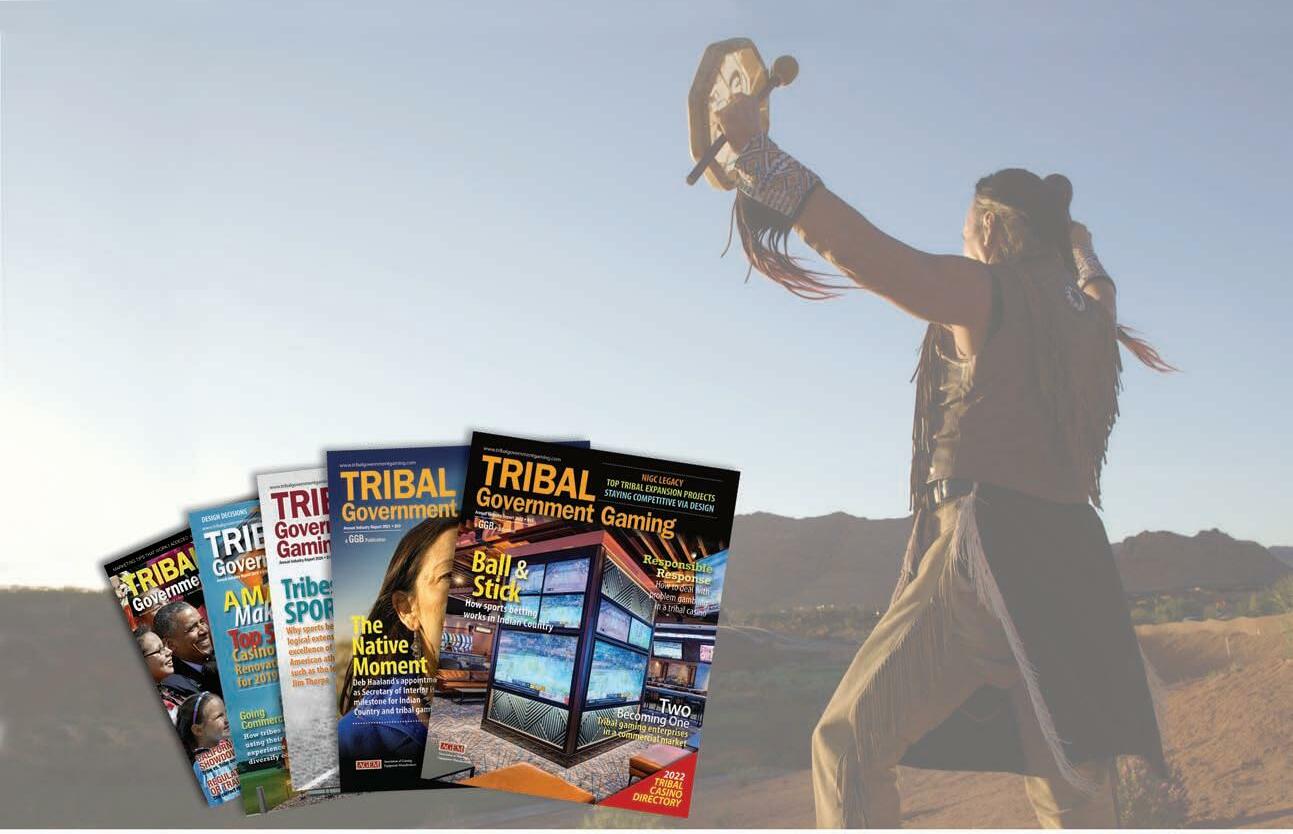
The Flexia Cashless Solution is driving an enhanced customer experience by facilitating a single digital wallet that may be utilized property-wide for gaming, retail, F&B, hotel and other amenities throughout the casino resort. Providing convenience, speed and integration with multiple systems and partners, Flexia enhances the bottom line and improves customer satisfaction.
Flexia’s go-to-market strategy is to develop strategic partnerships and close collaboration with the leading casino management system providers, including Aristocrat, Axes, CasinoTrac and Win Systems, as well as two more significant partnerships currently in the final stage of negotiations.
Coupled with the flexibility and technical innovations of the Flexia platform, these alliances reduce implementation time by providing a solution already tailored to the requirements of each CMS, allowing Flexia to focus on the specific needs of the casino—as the preferred cashless solution of the CMS rather than as competition.
Consumers demand convenience and ease when they create their new cashless accounts, while operators want a process which leverages existing re-
PRODUCT: DPX-S451 Gaming Platform
MANUFACTURER: Advantech-InnocoreAdvantech-Innocore, a global leader in gaming systems, has released the DPX-S451 gaming platform, the latest in the line of the DPX-S Series range of gaming platforms. The DPXS451 is the 12th generation of the S series product range, and continues the field-proven design evolution to enhance the performance and output options for slot machines, casino games and betting terminal vendors.
Using the AMD Ryzen Embedded R2000 processor, which combines the “Zen+” x86 core architecture with high-performance AMD Radeon graphics, the DPX-S451 platform provides enhanced and optimized computing power, unrivaled graphical performance and an overall increase of performance measures of over 33 percent against previous generations based on AMD R2000 Embedded Processors.
The system provides ECC and non-ECC RAM up to 32GB DDR4-3200, support of up to four displays, and a PCIe x16 v3.0 slot to support an additional
lationship data to streamline the flow across all customer touchpoints. Flexia’s InstaPlay Registration module solves both challenges by enabling real-time player enrollment in its cashless solution while simultaneously and seamlessly onboarding players across multiple casino platforms in a single, automated process.
Players scan a QR code to complete a simple online registration process. InstaPlay collects the customer data, performs instant KYC and fraud checks, and populates the casino’s CMS and loyalty system with the customer’s data. InstaPlay also issues a cobranded multi-account Flexia Prepaid MasterCard as a virtual (in app) and/or physical card, enabling players to use funds in their Flexia MasterCard account outside of the casino.
Players can easily load funds to the Flexia App from bank accounts, credit cards and debit cards, and transfer funds among the Flexia MasterCard account, casino wagering accounts and their favorite games. They can also view transactions, manage their profile, and receive in-app promotions and communications.

The Flexia solution helps operators drive additional player engagement and incentivize loyalty. Linking the Flexia MasterCard account to the casino’s loyalty system lets players earn casino loyalty points, and real-time tracking of player spend—both inside and outside the casino—provides valuable data on player preferences to the marketing team, which can be used for targeted, in-app promotions.
For more information, visit flexiapayments.com.
graphic card. A full set of I/O designed specifically for gaming devices is included, and the system is compatible with Advantech-Innocore’s software solutions for security, media validation, SAS and diagnostics.
The DPX-S451 is also backwards-compatible with other S series products, and is backed by the reliability, longevity and support that Advantech-Innocore is known for. The DPX-S451 is a high-performance board, featuring enhanced processing power and supporting best-in-class integrated GPU, but priced at a cost-effective level.
The DPX-S Series products provide highly integrated industrial singleboard computers and systems with an unrivaled performance range, scalability, long life cycle and low power. Both AMD and Intel platforms are offered, and each one features a full set of I/O, COMs, and security, developed specifically to meet the requirements of the regulated gaming industry.
For more information, visit advantech-innocore.com/hardware/dpx-s.


Apollo Global Management, the private equity firm that was formerly the parent company of gaming supplier PlayAGS, has liquidated its 22 percent stake in the now-public supplier, commonly referred to as AGS.
Apollo was the largest shareholder in AGS, which has grown to one of the industry’s major suppliers of slots and table-game technology.
AGS announced on November 14 that it was selling the 8.2 million shares controlled by Apollo, with the proceeds to go to the equity firm. It did not provide a reason. The following day, AGS shares plunged by 13.39 percent on volume that was more than 20 times the daily average.
“The announcement follows a Q3 earnings report that, while seemingly right down the middle, was met with a 21 percent decline in the shares the following day,” wrote Stifel analyst Jeffrey Stantial in a report to clients. “AGS has partially recovered, though still -11 percent,” said Stantial. “We have yet to hear of anything credible justifying the sell-off from a fundamentals perspective, though the timing of the secondary sale shortly thereafter could potentially draw scrutiny.”
Stantial did, however, note Apollo’s sale removes a “longstanding overhang” from AGS stock, which often traded at deep discounts relative to peers due to the private equity firm’s position in the shares. The analyst added Apollo’s sale was likely more “mechanical” than anything else, as the financial company has been involved with AGS for a decade and its remaining stake was small.
Apollo previously owned Caesars Entertainment but sold the holdings in 2019. Apollo paid $2.25 billion for the operations of the Venetian, Palazzo and Venetian Expo in February as part of a $6.25 billion purchase from Las Vegas Sands Corp. Real estate investment trust VICI paid $4 billion for the land and buildings.
In December, Konami Gaming announced that its Konetic mobile app has been honored for excellence in digital media. A Gold Winner at this year’s MarCom Awards, it was chosen from a pool of 6,000 entries across 43 countries.
Powered by Konami’s award-winning Synkros casino management system, Konetic gives teams a robust mobile tool to perform a variety of job tasks on the gaming floor including dispatching, jackpot processing, ticket-in/ticket-out (TITO) redemptions, progressive sign monitoring and more.
Konetic is currently live at initial launch locations, with expanding installations having been scheduled through the end of the year.
“Konetic equips casino floor personnel and technicians with rapid mobile alerts from anywhere on the property, so teams have comprehensive ability to respond, with full benefit of managed assignments, status updates, and reporting,” said Tom Jingoli, Konami executive vice president and chief operating officer.
Backed by near real-time communication with Synkros, Konetic drives data to and from casino staff in moments, so they can respond to on-thefloor needs with optimal service and efficiency. The app is available for iOS and Android, and leverages a mobile device’s built-in camera for all barcode and ticket scanning.

Casino properties have the option to enable and disable differing app modules according to their business needs.
BetMGM donated a $180,000 grant to the International Center for Responsible Gambling. The grant, announced November 22, is earmarked to study the
relationship between advertising and problem gambling.
“Findings from this evidence-based research study will allow us to better identify potential risks and guide best practices for the gaming industry,” said ICRG President Arthur Paikowsky in a statement.

BetMGM Senior Manager of Responsible Gaming Richard Taylor said such analysis is important in an effort to create programs to deal with such problems, according to CDC Gaming Reports.
“This groundbreaking research will not only provide valuable learnings to BetMGM but will also serve as a guide for the industry and key stakeholders,” Taylor said.
Since its inception in 1996, the ICRG has overseen or published a number of studies on problem gambling.

Resorts World Las Vegas and Sightline have launched second-generation cashless technology at the multibillion-dollar complex. Resorts World, a Genting property, opened in June 2021, the first allnew resort to open on the Strip since the Cosmopolitan, more than a decade earlier.
The update includes remote identity verification and enrollment for loyalty and payments, biometric authentication and a single “digital wallet” user experience.
Before remote identity verification, in Nevada a patron could not use his or her account for cashless gaming until an ID was verified on property by a resort staff member. Resorts World Las Vegas is the first casino in Nevada to enable its guests to enroll, verify and fund from anywhere around the world in as little as a few minutes.
The ability for gaming operators to utilize remote identity verification was spearheaded by Sightline after it successfully petitioned the Nevada Gaming Commission to change the state’s gaming regulations.
Resorts World Las Vegas made history when it first opened in June 2021 as the Las Vegas Strip’s first casino to enable its guests to pay for anything onsite through their mobile device, including slot machines, table games, retail shops and entertainment.
 By Dave Bontempo
By Dave Bontempo
Here are two of the most loaded words in the gaming-hospitality realm: hotel software.
Systems enabling the real-time coordination of large customer data blocks and infinitely small details remain a vital sector across increasingly blended hotel casino operations. For many properties, mastering this dynamic is an operating prerequisite. For others, it is the springboard for an edge.
The short description of hotel software is that it allows hotel owners or managers to streamline their administrative tasks while cutting costs and increasing bookings. Software systems enhance the daily operations of a hotel and improve the overall guest experience.
The deeper, more nuanced view varies by property. Individual operators tailor it to their specific needs, while the collective casino hotel world relies on its overall capability. The data synergy between operators and software enables varied perks like increasing the spa privilege or providing a room upgrade to high-ranking players.
And for all tiers, managers can turn the hotel into an oasis to refresh players before they return to the floor. Pampering is paramount.
Combined hotel casino operations become so important that industry pros seek common ground to glean cutting-edge ideas.
One of their sounding boards is a website called revfine.com.

It is a knowledge platform for the hospitality and travel industry. Professionals use its feedback, strategies and actionable tips to brainstorm and in-
novate. This is a sensible outlet for the industry, discussing hotels of every size.
Here is the backdrop of what industry professionals are looking at, and turning into action, via the website.

From automating distribution tasks to generating financial reports, software applications make everything more efficient. This includes allowing operations to be done when staff are not available to intervene manually, and it enables property-wide data sharing.
Automation also reduces labor costs and increases productivity in other areas, depending on how hotels deploy personnel. Team members freed up to deliver face-to-face customer engagement help properties.
Review management software can boost a hotel’s reputation, saving on marketing costs, while channel managers can save on costs linked to distribution. Revenue increases can be traced to hotel software. The revenue management systems can allow operators to optimize pricing and distribution, using past and current data to accurately forecast demand. The information is available at one’s fingertips, enabling quick, timely decisions.
Marketing intelligence software, meanwhile, helps operators customize offers based on customer data, while distribution channel managers can allow operators to manage availability and visibility across online distribution channels. Improved customer experience can be obtained through mobile hotel check-in and check-out systems.
Across the hospitality industry, properties use insights like these. How they do it is based on their needs.
Who needs hotel software more than a growing company? Graton Resort and Casino in Rohnert Park, California needs effective streamlining like never before, because its officials are thinking big.
The property just north of San Francisco has ambitious plans to expand its gaming floor, and add an entertainment theater, rooftop restaurant and a second hotel tower.
The overall expansion will add 144,000 square feet to the casino for a 45 percent increase in floor size.
The hotel addition will comprise a five-story tower with 221 guest rooms and suites located adjacent to the existing tower. The hotel’s swimming pool area also will be expanded, and the project includes a 3,500-seat theater, a new parking garage and other additions. The garage is expected to become the first portion of the expansion, with groundbreaking projected for the second quarter of 2023.
These are the best of times for the resort, a forward move that only occurs every few years in any property.
Graton could not be more well-positioned. It is ideally located 45 minutes north of San Francisco, nurtured by a heavily populated feeder market of 8 million people in the nearby area. It is not burdened by nearby competition, vying mostly with Sacramento properties to the east for a vast gaming empire.
All the property must do is master the logistics of growth. In a twist of the famous Field of Dreams movie phrase “If you build it, they will come,” Graton’s could be “They are already coming. Let’s build it.”
Hotel software plays a vital role in that.
Jonathan Proffitt, the hotel manager for Graton Resort and Casino, touts the benefit of software integrating his large property.
Rooms, restaurants, spas, the pool, entertainment and gambling come under one umbrella, which needs to be compartmentalized.
“We have been built as an amenity to provide relaxation for the guests who are gambling,” Proffitt says. “It’s a nice place for guests to get away from the craziness of the blackjack table or stop hitting the spin button for a while,” he adds, laughing. “With the hotel you can go take a shower, watch TV, relax, hit the spa or maybe go to the pool for a couple of hours.”
Proffitt says customers can call guest services, find out where they are placed in the system and obtain a reservation in as little as 30 seconds. When the hotel completes its work on an app in the near future, the process will become even faster.
“We are able to tell who qualifies for a discount room and who can get a free room, and we can also tell customers when we have opening and when we are sold out already, so we can work with them to find something that works,” he asserts.
“There is a lot of science behind that. We send out marketing offers every month. We know who has been playing, who has not been playing as strongly and how we can set up our tiers to give great deals to our customers. The different benefits can extend beyond rooms and room rates. There are suite upgrades, plus extended check-in and check-out privileges.”
Proffitt has experienced the need for centralized room operations from two perspectives. One came several years ago at Red Rock in the jammed and competitive Las Vegas market. The property fell back on demographics, heavy sales and the help of third-party sites like Expedia and Travelocity to drive revenue.

Although those entities spike traffic, they command a fee. They also can’t inspire loyalty the way a homegrown, individually tailored hotel management plan can.
The second example is here. As customers flood Graton, the facility feverishly upgrades to meet demand. QR codes enable customers to bypass the check-in line, place their phone in front of the door and enter the room, Proffitt says. Similar touch-point efficiency involves reservations at the steakhouse and spa.
Proffitt acknowledges the need for numerous hotel-software functions. He prefers to have them in one place.
Graton’s vendor of choice is Agilysys, which provides rGuestbook.
Graton uses rGuestbook for a gamut of services including calendars, updated website pictures and changing verbiage to describe customer upgrades. Proffitt touts the Agilysys support team that offers extensive availability and teaches his staff how to utilize the product.
“Connectivity is key,” Proffitt says. “In this day and age, with a resort our size, many segments tie in with each other a lot. If we can hone in on a product that brings it all together, that’s important for us.
“You are always looking to develop something that is faster, more effective
at retention. We have a big return clientele that really likes what we have here.”
Proffitt says the casino has players who come there once or twice every month. He considers it a major advantage for the hotel to know what room number, type and location each customer prefers. Some want to be near the elevator. Some seek a room with a pool view. Others want relative seclusion at the end of a hall.
“We have that information, and the players feel good about it,” Proffitt says. “A customer can figure ‘I don’t even have to ask for anything; they know what I want.’”
The Agilysys rGuest Book has been a strong product throughout the industry. It is a commission-free, easy-to-use reservation system that’s designed to move guests easily through the booking process. Operators are able to book a single room, or multiple rooms at once while attractively presenting all of the promotions and options a property has to offer.
The product advertises real-time results and availability, enabling operators to sell every room. Guests receive a single confirmation, without the confusion associated with multiple confirmations from outside the PMS. The product also aids in immediate deposits.
Service enhancements are automatically suggested, including fresh flowers, a bottle of wine or spa treatments when operators integrate with the Agilysys Spa solution.
Graton has illustrated that Agilysys is a valued catalyst for success. But it’s not the only one.
Cendyn became a strong player in this space after its 2019 acquisition of hospitality heavyweight Rainmaker. The cloud-based software and services provider had been developing integrated technology platforms that drove sales and marketing in the hospitality industry.
In Rainmaker, it obtained a hotel revenue and profit optimization cloud.
The combined company has a powerful imprint on the industry.
In early December, it announced that the Maho Group has selected Cendyn to power CRM, revenue management and business intelligence at two St. Maarten resorts, the Sonesta Maho Beach Resort, Casino & Spa and Sonesta Ocean Point Resort.
The Maho Group intends to use Cendyn’s CRM and RMS solutions. With Cendyn’s revenue management platforms, Guestrev and Grouprev, the Maho Group will evaluate its properties’ mix of revenue and profit centers at every touchpoint in both locations.
Based on the value of every casino player in their individual segments, Guestrev will provide a demand forecast and optimized price recommendations to maximize the Maho Group’s revenue. Utilizing Revintel, the Maho Group will be able to accelerate growth through faster and easier access to the properties’ data and analytics, driven by PowerBI.
This puts another feather in the cap of the company, which offers several ways for hoteliers to utilize its technology.
In the marketing realm, Cendyn offers several products. EInsight CRM provides enterprise marketing automation and guest intelligence. eLoyalty builds long-term relationships.
FleXI is an asset in upselling. Website design and Starling, its customer data platform, also figure into the mix.
In the reservations sector, Cendyn champions Pegasus CRS, which optimizes demand across global distribution channels. This features a scalable reservation system with intelligent rate and inventory management tools.

A booking engine, call center, CRS BIA Analytics and a conversion rate optimization via Rate Match also contribute to this area.
The revenue area includes revenue management, optimization and group
revenue tools. The sales element includes tools involved in proposal rapid response, interactive menus, B2B sales automation and the Pegasus Corporate Sales program.
Duetto advertises itself as being able to empower revenue teams to deploy and scale profitable strategies through real-time data integrations and automation.
Some of its major components in this realm are the open-pricing benefit via GameChanger, real-time forecasting with ScoreBoard and group business optimization through BlockBuster.
Prominent officials have noticed. The Software as a Service (SaaS) provider received the Gold Award for Best Productivity-Enhancement Technology at the 2022 GGB Gaming & Technology Awards. The winners of the 21st edition of gaming’s most respected technology awards were announced by Global Gaming Business magazine at G2E 2022.
Receiving the award for Duetto was Tim Kennedy, senior sales director, casino accounts. “It is an absolute honor to receive this award from Global Gaming Business magazine,” Kennedy said. “This is the perfect end for Duetto in a successful year.”
Officials at Duetto have long outlined a difficult casino balancing act. Many casino hotels struggle to find the right balance between comp and cash guests. They either over-comp or under-comp. With limited insight and manual processes, some casino hotels often fill up with lower-value guests or go down with empty rooms on peak nights.
Duetto’s modern revenue strategy platform helps casino hotels “balance the house” to drive optimal profitability. “Our solutions allow casino hotels to price and yield all channels, segments room types and offers independently, enabling efficient and precise rate management,” Kennedy says.
“In addition, by incorporating patron worth data into pricing decisions, casino hotels can ensure they are filling their hotel rooms with the most profitable guests and making the appropriate reinvestment decisions.”
Duetto’s casino clients see on average a 7.6 percent uplift in the first six months of running revenue on Duetto, the company asserts. Recently, one tribal casino hotel reported a 36 percent year-on-year increase in occupied rooms and a 27 percent year-on-year increase in theoretical contribution by their top-tier players.
And there are more stories like this. Throughout the industry, operators lean more heavily on outfits like Agilysys, Cendyn and Duetto. Instant data, accessibility to guests and knowledge of one’s own property create a powerful presentation.
This will remain important, especially when markets fall or when competition rises.
Great Canadian Entertainment (GCE) has announced that current CEO Anthony Rodio is retiring. The company’s board of directors has appointed Matthew Anfinson, who currently serves as chief operating officer, to succeed Rodio. GCE has also appointed Jordan Banks, a highly respected Canadian business leader, as its first executive chairperson.
“We are also pleased to name Matthew as CEO, whom we are excited to have lead Great Canadian in its next chapter,” said Alex van Hoek, chairperson of the board of GCE and partner at Apollo.
“Matthew is a North American leader in our industry with a deep understanding of the business. He has been responsible for driving top-line growth across all 25 of our properties and has held leadership roles in operations, marketing and analytics.”
Prior to joining GCE, Anfinson served as senior vice president of operations at Caesars Entertainment Corp. in Las Vegas, where he was responsible for creating impactful revenue growth strategies for all 56 Caesars properties globally. Previously, Anfinson held key leadership roles for Harrah’s Midwestern U.S. markets.

The Osage Nation Gaming Enterprise Board (ONGEB) has announced that Byron Bighorse is stepping down after nearly a decade as CEO of Osage Casinos. In a company release, no reason was provided for his departure.
Kimberly Pearson has been named as Bighorse’s successor, becoming the first woman to lead the company, which oversees a total of seven properties.
Bighorse had been with Osage since 2006, and had served as CEO since late 2014. In a statement, he said that the recent decision “has not come lightly, but it is ultimately the best path forward for Osage Casinos and my family.”
Pearson, who most recently served as COO for Osage, first joined the company back in 2008. She is also a member of the Osage Nation.

In a statement, ONGEB Chairman Geoff
Hager said, “Mrs. Pearson has played a critical role in the success of the enterprise over the last several years, and as the first female CEO, it is a tremendous point of pride for us and we look forward to continued momentum under the leadership of Mrs. Pearson. Our board’s priority has always been—and will continue to be—to provide critical funding for the Osage Nation.”



MGM Resorts International has announced the promotion of Allison Smith Mitchell to vice president of regional human resources business partnerships. In her new role based at Beau Rivage in Biloxi, Mississippi, she will oversee regional HR operations while also providing strategic direction and leadership.
Mitchell will partner with the HR Center of Excellence to establish short- and long-term people strategies and goals for MGM’s regional properties, while also championing company culture and the employee value proposition.
Mitchell most recently served as vice president of HR for Beau Rivage and Gold Strike Tunica. She has more than 27 years of HR experience within the gaming and hospitality industry, having spent 10 of those years with Caesars/Park Place and Harrah’s Entertainment in New Orleans before moving to Biloxi a year after Hurricane Katrina to reopen Beau Rivage in 2006.
Bally’s Corporation has announced that Kim Barker Lee has joined the company as executive vice president and chief legal officer. In that capacity, Lee will oversee Bally’s legal and public affairs teams, supporting the company’s global strategic initiatives.
Lee brings more than 25 years of legal and business expertise to Bally’s, including knowledge of lottery, gaming and governmental law, as well as experience with public-private partnerships, public finance transactions, corporate governance and regulatory matters.
Lee most recently served as International Game Technology’s inaugural global vice president of diversity and inclusion, to which she was appointed after serving as general counsel and vice president,
legal and regulatory affairs for Northstar Lottery Group, an IGT affiliate.
Lee was named a Top 100 Diversity Officer by the National Diversity Council in 2020 and 2021, and one of Global Gaming Business’ 25 People to Watch for 2020.
Rush Street Gaming has announced that human resources executive Dawn Reynolds Pettit has joined its corporate team as senior vice president of human resources. Pettit is a 20-plus-year casino veteran and human resources industry leader.
Pettit most recently served as regional vice president of human resources for Hard Rock International, overseeing multiple properties in states including Virginia, Illinois and Indiana. Previously, she was regional vice president of human resources with Caesars Entertainment for 19 years at Horseshoe Hammond.
She will be based in Rush Street’s Chicago headquarters, leading efforts to standardize and scale best practices in workforce development across the company’s growing portfolio of casinos in four states.
AGEM . . . . . . . . . . . . . . . . . . . . . . . . . . . . . . . .57
AGS . . . . . . . . . . . . . . . . . . . . . . . . . . . . . . . . . .7
Aristocrat Gaming . . . . . . . . . . . . . . . . . . . . . .68
Axes.ai . . . . . . . . . . . . . . . . . . . . . . . . . . . . . . .27
Kevin Lowry . . . . . . . . . . . . . . . . . . . . . . . . . . .33
Brian Green . . . . . . . . . . . . . . . . . . . . . . . . . . . .39
Clarion ICE . . . . . . . . . . . . . . . . . . . . . . . . . . . .47
Eclipse Gaming Systems . . . . . . . . . . . . . . . . . .17
Everi . . . . . . . . . . . . . . . . . . . . . . . . . . . . . . .2, 21
Fantini Research . . . . . . . . . . . . . . . . . . . . . . . .63
Fox Rothschild LLP . . . . . . . . . . . . . . . . . . . . . .29
Gaming Laboratories International . . . . . . . . . .11
Global Gaming Business . . . . . . . . . . . . . . . . . .59
Good Giant (Red Square Agency) . . . . . . . . . . . .5
HBG Design . . . . . . . . . . . . . . . . . . . . . . . . . . .67
J Carcamo & Associates . . . . . . . . . . . . . . . . . .55
Reed Expo(RX) . . . . . . . . . . . . . . . . . . . . . . . . .51
RPM Advertising . . . . . . . . . . . . . . . . . . . . . . . .25
Scientific Games . . . . . . . . . . . . . . . . . . . . . .9, 35
UNLV Division of Philanthropy . . . . . . . . . . . . .28
World Game Protection . . . . . . . . . . . . . . . . . .43

Legalizing sports betting in Indiana was one of the smoothest and most efficient processes in all the states. A reasonable tax rate, fees and regulations have proven to be a success story in the state. Senator Jon Ford steered that process through the state Senate and now he’s looking to do the same with iGaming. He spoke with GGB Publisher Roger Gros at the winter conference for the National Council of Legislators from Gaming States (NCLGS) at Resorts World in Las Vegas in December. To hear and view a full version of this interview, where Ford talks about land-based gaming in his state, visit GGB Podcasts on GGBMagazine.com.
GGB: Indiana had a very successful launch of sports betting, particularly when you view the debuts in other states. Why was it so smooth in Indiana?
Jon Ford: I think one of the big reasons was conferences by NCLGS, where a lot of our legislators like myself got educated. And then we spent a lot of time on educating the General Assembly. We even brought the University of Nevada, Las Vegas out to Indiana to hold a class. So, the key was educational.
Did you model it after any specific state?
We took bits and pieces from a lot of different states, and definitely looked at New Jersey, especially for the regulating side.
(Division of Gaming Enforcement Director) Dave Rebuck in New Jersey is very open to counseling other states in terms of their regulations. They had it pretty much nailed right from the start.
They’ve had years of experience, so why not go to the best place that was operating at the top of the game?
What were some of your challenges in getting the bill passed?
Probably the biggest one was, did we really need to do this now? Was there that many people betting on sports? To me, that was kind of a silly argument because everybody’s been betting on sports for a long time, and we knew it was going on. There was also some controversy with the leagues at the time because it was so new. I think the leagues felt they should get a piece of the gaming dollars. So navigating that was an issue. And finally, obviously, Indiana is a very conservative state, and overcoming some of the religious objections was also a hurdle.
What were some of the compromises you had to make? You have a very reasonable tax rate. The fees were also pretty reasonable to get a license. But obviously there were other people that had wanted to raise it as high as possible.
The argument for me for keeping the rates low was we really wanted to get rid of the illegal market. So we believed if we keep taxes low and keep the barriers to entry low, that we could draw more of that illegal business into a regulated market.
The licensing process was an important part because we needed the integrity of gaming to be as high as possible, because otherwise people will start believing that the games aren’t fair.
What kinds of stipulations did you put in for responsible gaming to protect people who might have problems with gambling?
Geofencing was really a key piece. Obviously we need to do that to meet federal rules, but then we put in the know-your-customer strategies and age verification to make sure children couldn’t be a part of it. We designated a lot of consumer protections that happen when someone gets licensed.
Are you pleased with the way it kicked off, and the revenue that it is producing for the state?
It’s kind of funny. I get jabbed a little bit by my
colleagues because I stood up there and said we think the illegal market’s $300 million. Well, last year we did about $2.2 billion. I get kidded about it, but it’s a hard number to come by. But yes, we’ve been very happy with the rollout and it’s been a great success.
So your next challenge is taking on online gaming, which has also been very successful in the states where it exists. What are some of the strategies you’re going to use to get that bill passed?
We’ll clearly talk about the illegal gaming and that it’s going on right now in Indiana, and how can we bring that into a regulated market, and putting those consumer protections in place, because one of my fears is that kids are getting online and betting illegally. In a regulated space, testing these products to make sure they’re fair to consumers is a key part. And we know the illegal market is taking higher margins.
A study done by the Indiana Gaming Commission about the impact of online gaming in Indiana showed the state could reap as much as $900 million in taxes on iGaming. Did this give your movement some impetus there?
A little bit, but we’re like a lot of states right now sitting with a large surplus, so we don’t need the money. So that argument isn’t going as well as I thought it would. One of the areas I think we’re going to try to do more on is responsible gaming—putting more money into responsible gaming.
So what’s the plan going forward? Do you have a timeline?
We go into session in January, and Rep. Ethan Manning on the House side, who is chair of public policy, will be filing the bill and will be starting in the House. Our session ends in April, so hopefully by the end of April we’ve got something passed.









